









Cladco Steel Roofing Sheets are suitable for agricultural, industrial and domestic applications, available in up to 17 colours. Speak to our expert Sales team to find out more.

Corrugated, Box Profile, Tile Form and Standing Seam Roofing Sheets Available Cut To Custom Lengths
Polyester Paint, PVC, Pural BT Or Mica BT Coatings

Pictured: 13/3 Corrugated Roof Sheets Nationwide Delivery Or Collection
Andover Branch 55 Reith Way, Andover, Hampshire SP10 3TY Mon-Fri 8am to 5pm, Sat 8am to 1pm
Head Office Beardown Road, Exeter Road
Industrial Estate, Okehampton, Devon EX20 1UA Mon-Fri 8am to 5pm, Sat 8am to 1pm
SOUTH EAST FARMER
Kelsey Media, The Granary, Downs Court Yalding Hill, Yalding, Maidstone, Kent, ME18 6AL 01959 541444
EDITORIAL
Editor: Malcolm Triggs
Email: sef.ed@kelsey.co.uk
Photography: Martin Apps, Countrywide Photographic
ADVERTISING & MARKETING
Jamie McGrorty 01303 233883 jamie.mcgrorty@kelsey.co.uk
GRAPHIC DESIGN
Jo Legg 07306 482166 jo.legg@flair-design.co.uk
MANAGEMENT
DIVISIONAL MANAGING DIRECTOR: Steve Kendall
PUBLISHER: Jamie McGrorty
RETAIL DIRECTOR: Steve Brown
SUBSCRIPTION MARKETING MANAGER: Claire Aspinall
PRINT PRODUCTION MANAGER: Kelly Orriss
DISTRIBUTION
Distribution in Great Britain: Seymour Distribution Limited 2 East Poultry Avenue, London EC1A 9PT Tel: 020 7429 4000
www.seymour.co.uk
Distribution in Northern Ireland and the Republic of Ireland: Newspread Tel: +353 23 886 3850
Kelsey Media 2025 © all rights reserved. Kelsey Media is a trading name of Kelsey Publishing Ltd. Reproduction in whole or in part is forbidden except with permission in writing from the publishers. Note to contributors: articles submitted for consideration by the editor must be the original work of the author and not previously published. Where photographs are included, which are not the property of the contributor, permission to reproduce them must have been obtained from the owner of the copyright. The editor cannot guarantee a personal response to all letters and emails received. The views expressed in the magazine are not necessarily those of the Editor or the Publisher. Kelsey Publishing Ltd accepts no liability for products and services offered by third parties.
Kelsey Media takes your personal data very seriously. For more information on our privacy policy, please visit www.kelsey.co.uk/privacy-policy/ If at any point you have any queries regarding Kelsey’s data policy you can email our Data Protection Officer at dpo@kelsey.co.uk
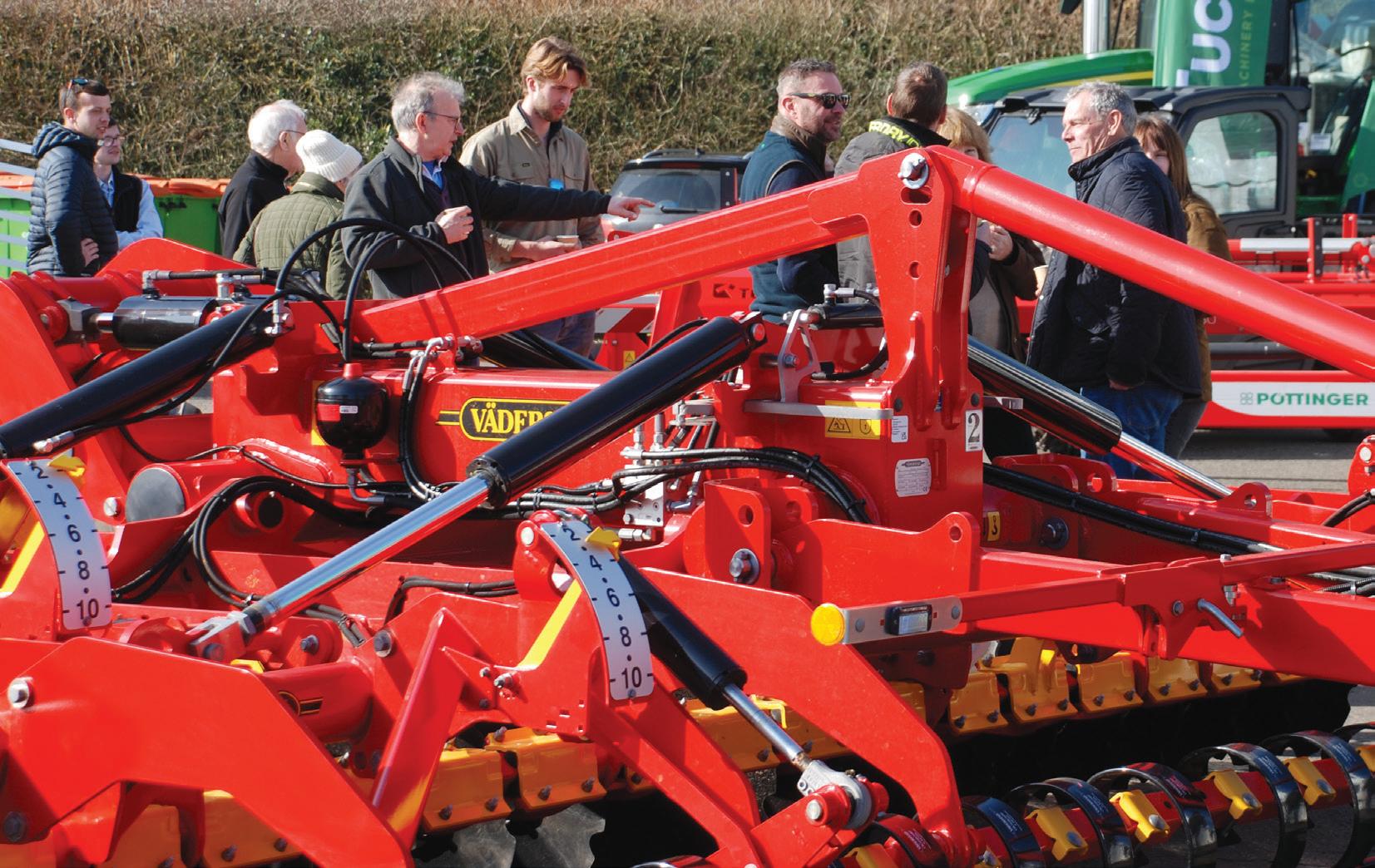

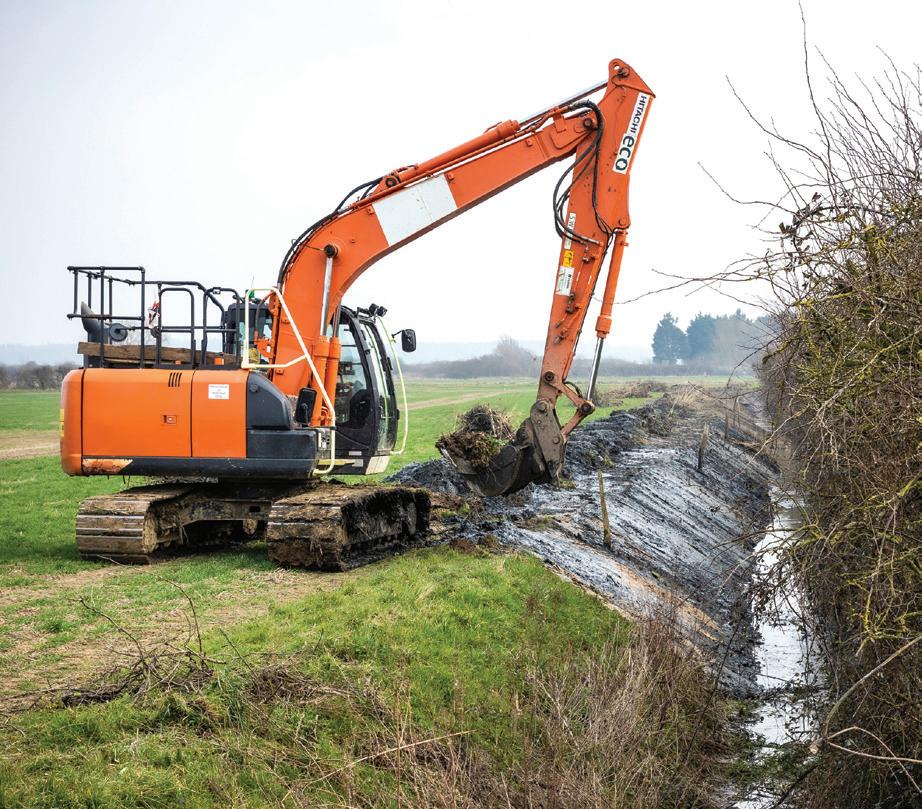
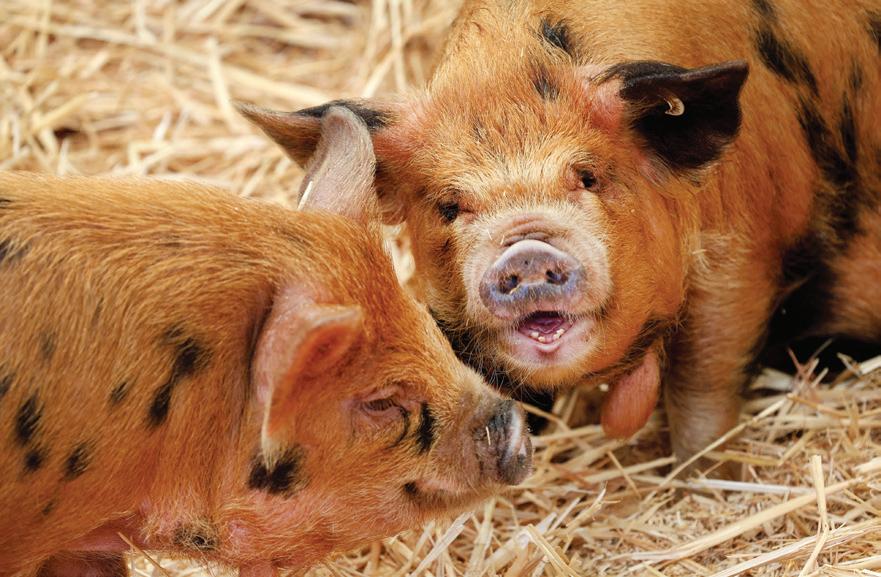
www.kelsey.co.uk
Cover picture: Farmers are angered after DEFRA’s sudden announcement that the Sustainable Farming Incentive (SFI) scheme is no longer accepting new applications for this year, saying this will greatly impact environmental work and farm businesses.
©NFU
Shows are returning across the county with
“Disastrous”, “devastating”, “shattering”, “terrible” and “cruel” were just some of the more polite descriptions by farm industry leaders of the shock decision by DEFRA to close applications to the Sustainable Farming Incentive (SFI) without warning.
The announcement, portrayed as good news by DEFRA, coincided with the release of the NFU’s annual farmer confidence survey which showed farm business confidence had already reached historically low levels, surpassing the record lows set last year.
Even the Environment, Food and Rural Affairs Select Committee (EFRA), a House of Commons select committee not given to outspoken rhetoric, was quick to condemn the warning-free closure of a scheme designed to give farmers a ‘soft landing’ as Basic Payments came to an end.
Chair Alistair Carmichael MP commented: “The sudden announcement yesterday that the Sustainable Farming Incentive (SFI) would cease to take new applications to the scheme, with immediate effect and with no prior warning having been given, is another very regrettable decision by DEFRA. The abrupt halting of new applications to SFI will leave many farmers with no prospect of support to replace direct payments.
“Farmers are already under immense pressure from a perfect storm of adverse conditions. For many farmers, this latest move by the Government will only add to the uncertainty and insecurity of their livelihoods and threaten their financial viability.
“At a time when the Government has deeply fractured its relationship with farmers, this decision on SFI only compounds the impression that the Government either does not have a grasp of the realities that farmers face or is sanguine with the possibility of farms up and down the country going out of business, their land being sold off to other entities and British farmland being lost to farming altogether.”
With other industry bodies pulling no punches in attacking what Country Land and Business Association (CLA) president Victoria Vyvyan described as “reckless beyond belief”, the NFU has since organised a farming roundtable with food security and rural affairs minister Daniel Zeichner to explain what it called “the crushing impact of DEFRA’s decision” and raise the urgent need for transparency from Defra. Farming representatives called on the minister to:
• Unlock the SFI scheme for the thousands of farmers who have begun agreements but are now unable to be paid for the work they have completed
• Provide more information about the future of the SFI scheme
• Build trust in the farming industry by being transparent about the agriculture budget and its allocations
• Undertake impact assessments, looking at what the decision means for the agricultural transition.

NFU President Tom Bradshaw said: “The closure of SFI is a devastating shock for farmers and leaves businesses on a knife edge when they were already struggling with the impact of the changes to inheritance tax.
“We made it clear to the Minister that this decision not only threatens the livelihoods of numerous farmers, especially upland farmers, commoners and tenants, but also undermines the ability of farm businesses to deliver environmental work. We also explained how it has crushed all trust in DEFRA.
“Our recent farm business confidence survey results show that farmer confidence has reached an all-time low. The uncertainty caused by this abrupt policy change will erode any confidence that was left in the farming community.
“For the sake of our domestic food producing businesses, it is vital DEFRA provides urgent clarity on the future of SFI and starts being transparent about its budget, something we’ve been asking for years.”
Earlier, Tom had described the announcement as “another shattering blow to UK farms, delivered yet again with no warning, no understanding of the industry and a complete lack of compassion or care”.
He said the NFU had had “major concerns for years” over DEFRA’s capability to deliver agricultural transition and had “warned time and time again that large parts of the SFI were poorly designed and that the department was consistently failing to deliver it”.
NFU regional board chair for the East of England Alan CliftonHolt, who farms near Romney Marsh in Kent, said: “This is terrible news for thousands of farmers and growers across the South East who were planning to be a part of this year’s SFI scheme.
“Farmers were given no warning whatsoever that applications are closing and the NFU was only informed 30 minutes before Defra announced the news to the media. This is a huge kick in the teeth to our hard-working farmers and growers.
“This is also very bad news for the environment, as much of the planned positive environmental work to boost biodiversity and enhance the countryside may now not go ahead. Without that financial incentive, many farmers and growers who are already facing huge financial pressures – greatly enhanced by the government’s devastating autumn budget – will now need to focus purely on doing what they need to do to ensure their businesses can survive.”
Tom added: “The fact that ministers are actually trumpeting this as good news shows how desperately detached they are from the reality on the ground and how little they understand this industry.” He criticised “bad decisions, misdirection, promises broken, no transparency and yet more financial disaster for farming”.
DEFRA said the Government had committed £5 billion over two years to sustainable farming and nature recovery and had “worked hard to get as many farmers into environmental land management schemes as possible”, adding that the SFI now had “more than 37,000 multi-year live agreements”.
It went on: “With record numbers of farm businesses in farming schemes and the sustainable farming budget successfully allocated, we will stop accepting new applications for SFI from today.
An unimpressed Tom Bradshaw pointed out: “They say the money is spent, but because DEFRA refuses to be transparent we don’t know where it’s been spent, or whether it’s all been spent within this year.” >>
It was the smile on the face of the crocodile that was perhaps most unnerving as DEFRA managed to derail the country’s environmental aspirations and its farming industry with one snap of its jaws.
Closing the doors to Sustainable Farming Incentive applications with no warning, no notice and no regrets was bad enough, but to portray it as a success story was an additional kick in the teeth for hard-working farmers.
“Record farmers in SFI schemes as government successfully allocates sustainable farming budget” was so joyously positive it could have been used as a pre-election slogan, plastered across the mastheads of every left-leaning newspaper and shouted from the rooftops by candidates.
The truth behind the headline is, of course, very different. With many farmers still carefully working through their options, having understood this to be a rolling scheme with no stated end date, DEFRA simply pulled the plug. No-one seems to know how much of the budget has been spent. That wasn’t part of a press release that delivered more spin than Shane Warne.
No-one told the farmers they had to meet a certain deadline or that the money was about to run out. But then no-one knew of plans to make fundamental changes to the inheritance tax system, restrict winter fuel allowance or slash benefits, either.
Before the election, the promise was of support for farming, a chance to restore the countryside and be paid for the work involved as DEFRA and farmers marched hand in hand towards a bright new dawn, the landscape reinvigorated, the soil refreshed, wildlife flourishing and farmers farming.
That dawn now seems further away than ever. Already worrying about the future of their family farm, high input costs and poor grain prices, not to mention trying to second guess our out-of-sync weather, those who missed the boat on SFI will be counting the cost in very real terms.
But to return to the crocodile. Verse two of Lewis Carroll’s poem on the subject tells us: “How cheerfully he seems to grin, how neatly spreads his claws, and welcomes little fishes in, with gently smiling jaws!”
Like Alice, we seem to be having adventures in Wonderland.

EMAIL YOUR VIEWS, LETTERS OR OPINIONS TO: sef.ed@kelsey.co.uk or write to the address on page 3
® MALCOLM TRIGGS - EDITOR
Martin Lines, CEO of the Nature Friendly Farming Network (NFFN):
"While it is good news that so many farmers have been getting into agri-environment schemes, many more have been prevented from accessing SFI due to overly complicated schemes that cannot be stacked together and the Rural Payments Agency (RPA) being slow to process applications and queries.
"With so much focus on SFI to deliver public goods compared to other parts of the Environment Land Management scheme, it has become increasingly difficult for farmers to understand what they should do and where they fit in. Many farmers have been waiting months for the RPA to update applications and enable the annual declaration so that a new application can be stacked on top.”
Country Land and Business Association (CLA) President Victoria Vyvyan: "SFI was the most ambitious, forward thinking and environmentally friendly agricultural policy seen anywhere in the world – it promised a fairer future for farmers and a greener future for the world.
"Labour promised to support it, but at the first available opportunity they have instead scrapped it. Of all the betrayals so far, this is the most cruel. It actively harms nature. It actively harms the environment. And, with war once again raging in Europe, to actively harm our food production is reckless beyond belief."
Kerriann McLackland, head of estates at The Countryside Regeneration Trust :
“This shock announcement is a devastating blow to farmers and land managers everywhere. Those farmers working tirelessly to produce food alongside being custodians and restorers of our countryside have been treated with contempt.
"Sadly, for some, I fear that this may be the final straw that sends some producers to the wall, especially those producing fabulous local food on a relatively small scale. The Government has said it wants to drive growth – no business can grow and thrive when the framework in which they are operating is smashed to pieces with no notice.
“This announcement has further destroyed the trust between farmers and DEFRA.”
Soil Association chief executive Helen Browning: “This damaging move by government seriously risks the viability of the organic sector and threatens the supply of sustainable British food. It has frozen farmers out of the opportunity to meet the rising demand for organic food, which will instead continue to be met by imports.
"The Government is disregarding what shoppers and farmers want, alongside the need to protect nature. This is a new low for sustainable food production in England, which will fall even further behind Scotland and other countries where there are targets to increase organic production.
“We are also very worried that smaller


producers and family farms, particularly fruit and veg growers, have not had enough opportunity to access the scheme and that they will be most impacted by this sudden change.”
National Sheep Association chief executive Phil Stocker: “This latest DEFRA announcement feels disastrous – a word I don’t use lightly. I’m seriously concerned many farms will now face 2025 with an accelerated decline of BPS income – and no access to SFI which for most farmers will be the main plank to replace that money.
“NSA considers the shock move indicates poor scheme design and management and is in disbelief how DEFRA has arrived at this position and not stepped in to manage it earlier.
“For all the co-design and warm words that DEFRA want a different relationship with industry, this will just about destroy all that has been built over the past five years. Coming back from this will be hard.”
Simon Britton, head of agri-consultancy at Knight Frank: “A scheme intended to provide stability during the transition has instead created further uncertainty, raising serious concerns about the government’s approach to agricultural policy.”
DEFRA, which suggested “now is the right time for a reset”, said “a reformed SFI scheme, with a budget to be confirmed in the spending review this summer, will direct funding where there is greatest potential to do more on nature and where there is the least ability to access decent returns from agricultural markets, or other sources of investment, as set out in the land use framework.”
It said details of the revised scheme would be announced this summer, although it is unclear when it will be launched.
Well-known local auctioneer and valuer John Butler died peacefully at home in his beloved Marden on 3 February.
A farmer’s son, he forged a career outside farming, joining Lambert and Symes (later Lambert & Foster) in 1964 and working with landowners and farmers throughout Kent and Sussex.
He was best known as a highly respected auctioneer, presiding over many sales of land and farm machinery, and was renowned for his fruit expertise. In its heyday, the annual Horsmonden Hard Fruit Sale, which he sold at for many years, could see over £500,000 worth of fruit crops on the tree sold from orchards in Kent and Sussex in just one afternoon. John enjoyed the trust of sellers and buyers to assess crops in the orchard accurately, which was key to the success of the sale.
Later in his career, John’s land agency work evolved to dealing with some significant sales of farms and development land which, for
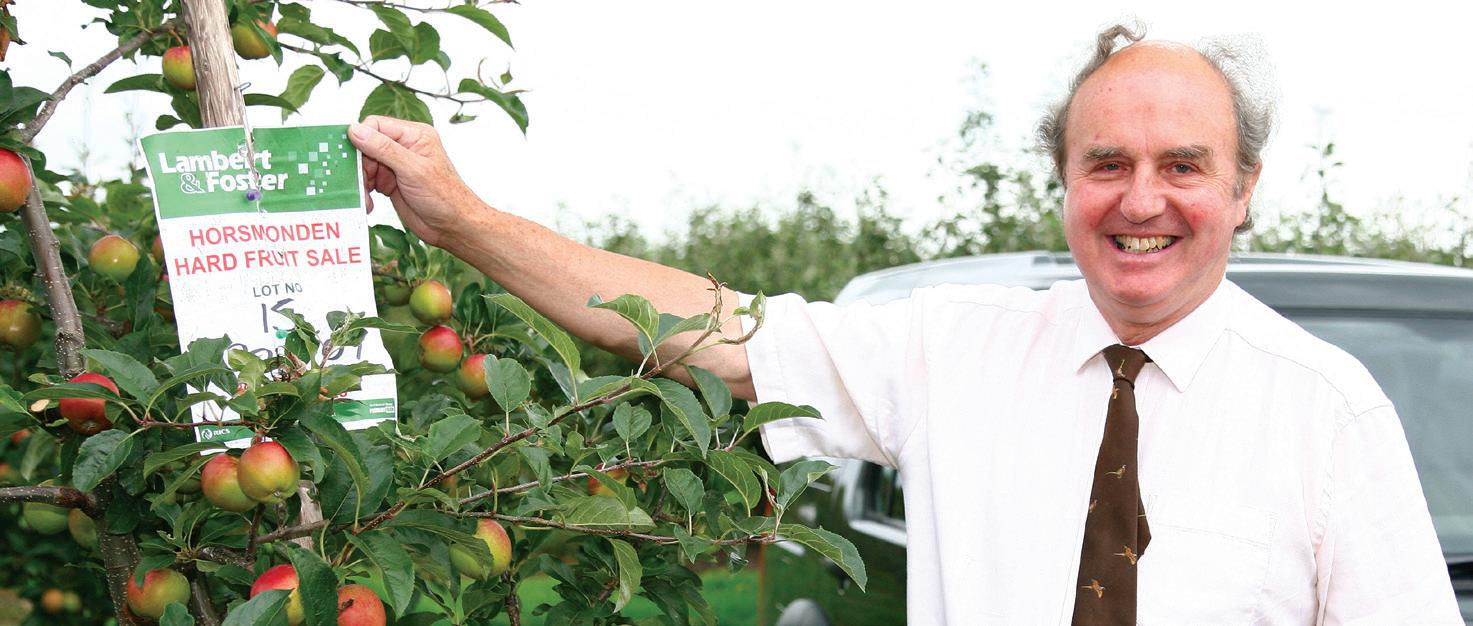
some landowners, were life changing.
John was always willing to pass on his knowledge, spending time with Lambert & Foster’s young graduates, encouraging and teaching them ‘on the job’. He was always loyal and had the clients’ best interests at heart; he could read people well and knew whether to choose ‘stick or carrot’ when solving a problem.
Work was his passion, but he maintained plenty of outside interests and was a keen
member of Marden Tennis Club. He put together an enviable collection of classic cars –MGs were his favourite – which he drove with members of the Maidstone Historic Vehicle Group, which he chaired for 16 years.
John was also a keen musician and part of Wealden Folk, who performed locally for many years. Always excellent company, he will be sorely missed by his colleagues, clients and friends.
Providing peace of mind and bespoke, practical legal advice to generations of farming families. We undertake a wide range of legal work for farmers, rural landowners and businesses including:
• Agricultural & rural property
• Buying/selling a business
• Commercial agreements
• Diversification
• Employment
• Estate administration
• Planning & land promotion
• Property development & construction
• Residential property & conveyancing
• Selling or leasing land
• Sporting rights
• Wills, estate & tax planning

The worrying of sheep by dogs has long been an emotive issue, a constant nagging worry at the back of almost every sheep keeper’s mind. Simply hearing of an incident of sheep worrying will produce the same gut-wrenching feeling for many producers, but the one thing that brings it into laser-sharp focus is an attack on one’s own sheep. Then it becomes personal.
I was unfortunate enough in the middle of February to get the phone call that every sheep keeper dreads. “There are dogs in with your sheep.” At the time I was busy sorting mothering pens in preparation for lambing. The in-lamb ewes were just a couple of minutes away, in theory, but with a lorry craning off a delivery of bricks, the village was in gridlock, and a two-minute journey became 20 minutes, stuck in traffic knowing that there were two dogs in with my ewes, which significantly heightened my anxiety. Fortunately, the person who phoned had
also called the police, and a passing patrol had arrived ahead of me, not only catching the dogs in the act with bodycam video evidence but managing to restrain one of them.
With the older dog restrained, the other, fortunately, didn’t appear to have the energy or confidence to continue the attack on its own. It still had a group cornered and was barking at them, but it ran off when I arrived.
I focused on getting the scattered groups of ewes into a smaller paddock where they were relatively safe, before returning to the four sheep that were down. None had been killed, but all were so badly injured that they had to be shot, which, if anything, made the situation worse; a shocking waste of four, in-lamb, pedigree ewes, one only a teg, each carrying twins, ewes that represented 30-plus years of breeding. A further six, some quite badly injured, required four hours of veterinary attention, with two still requiring attention several weeks later and which may
ultimately also need to be shot.
On the positive side, my thoughts were that at least one of the dogs had been caught. The PCs were brilliant; one spent the best part of an hour on his knees restraining the dog and had called for a van to take the dog away. Eventually a sergeant arrived with van and a chip reader.
I knew the dogs; I had experience of them from an attack some five years previously. Nothing major that time, just a few ears stitched back on, and I said to the sergeant that I did not want the dog returned to its owner. Surprisingly, once the chip had been read and ownership confirmed, I was told that the police have no power of seizure and that it would need to be returned to its owner, which it was almost immediately.
The two dogs were loose again five days later, but once retrieved by their owner were voluntarily euthanised, sad because it is not the fault of the dogs, but necessary.
One obvious thing to come out of this

unfortunate incident has been to highlight just how appallingly inadequate the law is; the worrying of livestock by dogs is something that is part of the daily reality of livestock keepers across the country and the level of protection currently afforded both to livestock and their keepers is in urgent need of review, updating and strengthening.
I fully intend to keep raising the profile of this issue and urge all sheep keepers across the country to do likewise, publicising, with graphic images, if necessary, attacks on local social media sites, reporting all attacks to the police, writing to members of parliament, whatever it takes. Irresponsible dog ownership, allowing dogs to roam free near to livestock or not putting dogs on leads, needs to become socially unacceptable, and penalties for those who choose not to follow the law need to be significantly enhanced.
The Kent Police Rural Task Force has been brilliant and supportive. Justice may frequently not be done, but it is no good shouting at those responsible for enforcement if the law is wrong; they all have to operate within current legislation.
Sergeant Darren Wilshaw told me that the Protection of Livestock Act 1953 has limitations that can hinder investigations. For instance, some modern livestock, such as alpacas and llamas, are not covered. There is no power to seize a dog involved in a serious incident, although a dog can be seized if an owner is not present. There is no power to identify a suspect dog.
Sgt Wilshaw said the Dogs (Protection of Livestock) (Amendment) Bill, now awaiting its committee stage, would give police greater powers, including powers to seize dogs after serious incidents, powers of entry to locate and seize dogs and the ability to take evidence samples from dogs to assist with investigations.
The rural task force has been using forensic capture at livestock incidents for three or four years now, Sgt Wilshaw told me. “This is done with the consent of the dog owner, although we have on one occasion obtained a warrant to take samples. We have had positive results where the suspect dog has been forensically linked to the incident,” he explained.
“A large percentage of cases are dealt with out of court, generally by way of community resolution, whereby we arrange
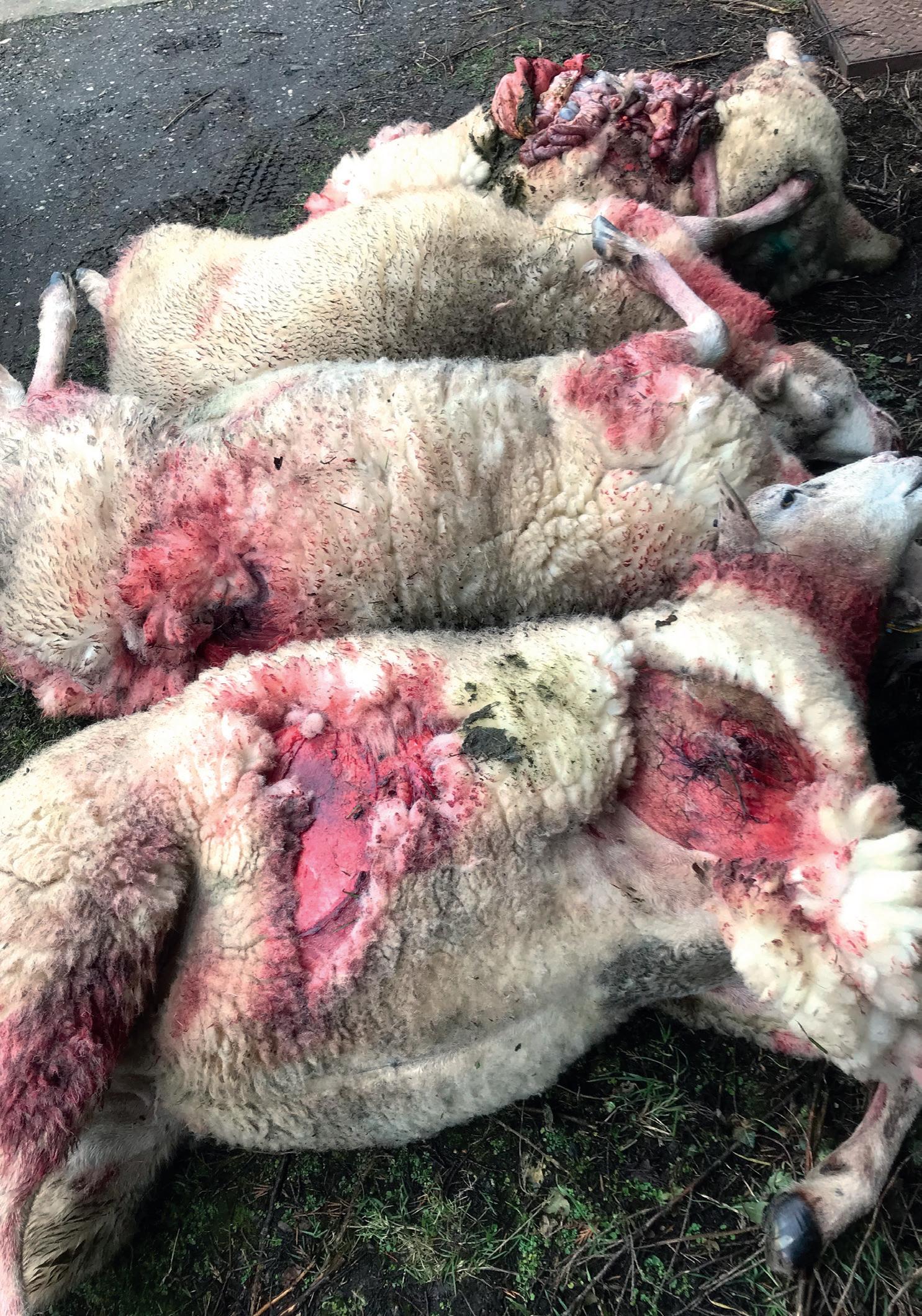
for the dog owner to pay the livestock owner compensation for any loss or damages. In addition, we will always look at preventative measures as well, such as completing a Sheep Proof Your Dog course and improving garden boundary security.
Sgt Wilshaw added that while the NFU figures reported on page 10 showed incidents in the South East had increased, Kent had seen a fall.
He stressed:
• Livestock worrying is a crime and must be reported to the police. Dogs worrying livestock is considered an emergency if it is taking place at the time and there is, or there is likely to be, serious damage to livestock, so dial 999.
• Provide an accurate location. If possible, and in a remote area, arrange to meet officers to guide them to the location.
• Preserve attacked livestock for forensic examination.
• If it is raining or wet, please cover any carcasses with waterproof material to help the police obtain the best evidence.
• Take photographs and video of the attacked livestock and the whole scene as well as detailed close-ups and ear tag numbers. If possible, obtain a veterinary examination.


The NFU, Kent Police and Kent Trading Standards are working together to raise awareness of the issue and urge people to keep their dogs on a lead around livestock.
The latest figures from insurers NFU Mutual show that farm animals in the South East of England worth an estimated £139,000 were severely injured or killed in dog attacks in 2024, up 23% on 2023. This is in contrast to the UK as a whole, which saw almost £1.8m of livestock injured or killed, down 26% compared to 2023.
Kent sheep farmer and NFU member Tobin Bird, who farms near Cranbrook, started his dog training business, Sheep Proof Your Dog, 12 years ago in an effort to tackle the problem.
He said: “These figures are very concerning and there are also many incidents that are not reported, which are not included in the figures.
“People often come to me for dog training after an incident. I was training about 300 dogs a year; that shot up to 500 a year for a period after lockdown. People are often

unaware of what their dogs are capable of and how quickly things can get out of control.
“It is vital that people keep their dog on a lead around livestock. It is also important to check your properties and gardens are secure
when you have dogs.
“I appreciate that most dog owners are responsible, but everyone needs to take responsibility for their pets in order to tackle this very serious issue.”
The NFU is looking for people in the South East and East Anglia with a passion for British food and farming to help inspire the next generation as a Farmers for Schools Ambassador.
The voluntary role involves giving talks in schools to help children understand where their food comes from, learn about the exciting and wide-ranging careers available in agriculture and find out more about the life of a farmer.
A training session is being held at the NFU’s London office on 29 April, with people encouraged to book a place as soon as possible. Ambassadors do not need to be NFU members or even farmers, but they need to be passionate and knowledgeable about British food and farming.
Cambridgeshire arable farmer Luke Abblitt has been an NFU Farmers for Schools Ambassador since the scheme started in 2022 and has given talks to more than 2,000 schoolchildren. After giving a talk at a Lincolnshire school, he said: “The children are always so engaged and I come away from the talks with a massive buzz to know that I work in a great industry and that people are interested in and care about the work we do.”
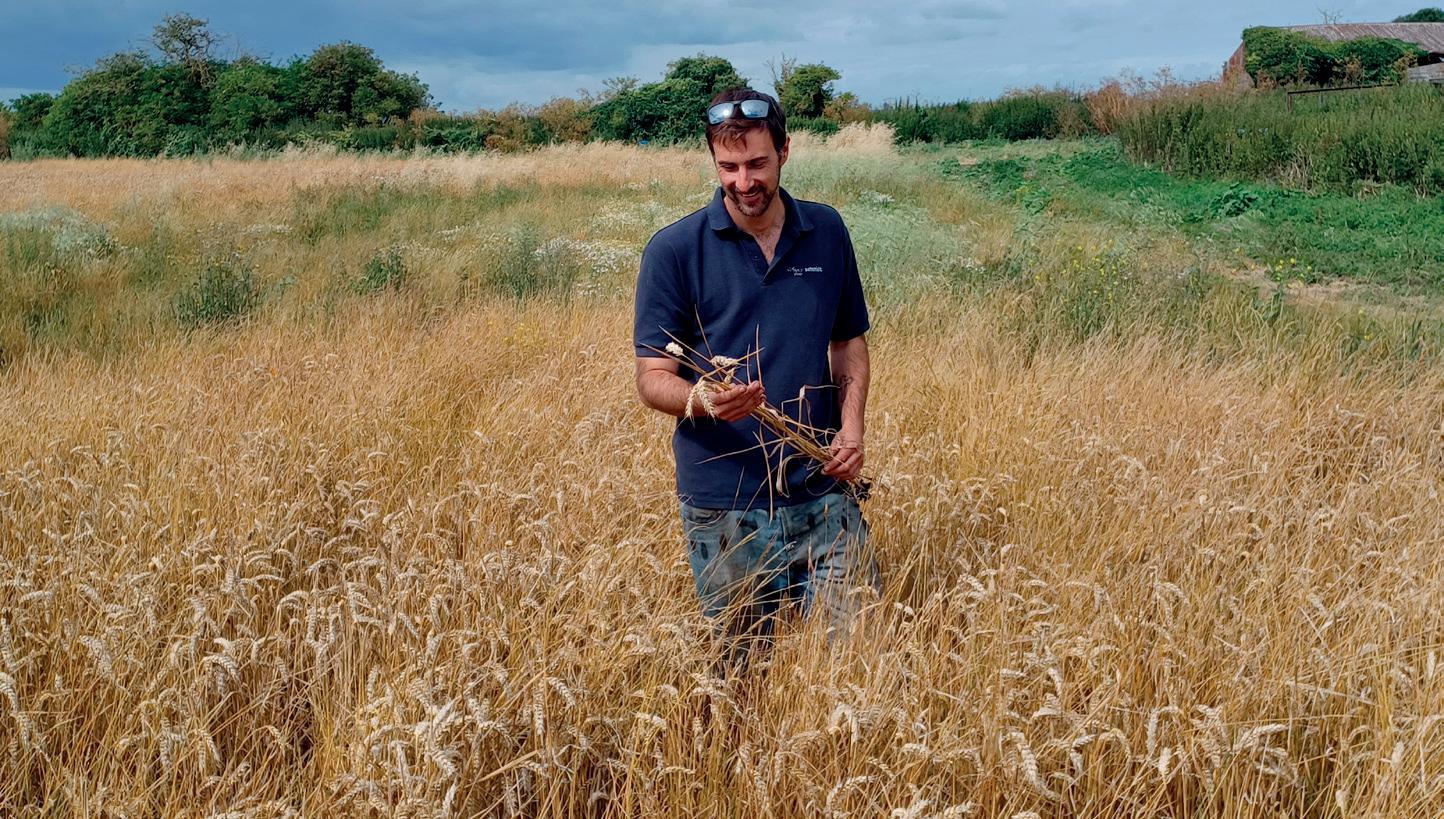
The NFU has trained more than 345 Farmers for Schools Ambassadors since April 2022. To find out more or sign up for the April 29 session, email education@nfu.org.uk or visit www.nfuonline.com/updates-and-information/nfu-farmers-for-schools-programme
A new forum will provide a hands-on update to farmers and landowners seeking to diversify their land portfolios and navigate their way through the opportunities and pitfalls of planning policy and environmental law.
The first Farmers and Landowners Environmental Law and Planning Forum will be hosted by South East planning experts, DHA, Kent-based Gullands Solicitors, and environmental experts Native Ecology. The aim is to update landowners on the opportunities that have emerged following recent changes to national planning policies.
The forum will highlight the commercial opportunities of securing planning permission for renewable energy projects as well as converting existing buildings through permitted development rights and the emerging ‘grey belt’ policy, under the National Planning Policy Framework which was updated in December 2024.
The event will also highlight the implications of the Government’s biodiversity net gain policy which has been in force for almost a year.
Tim Spicer, Director of DHA, said: “Keeping up to date with the latest planning policy is a full-time job. This event is designed to give busy landowners and farmers a practical insight into how recent changes are literally changing the landscape by offering the opportunity to diversity what they do with their land and assets.”
The forum will take place on Thursday, 3 April, from 4.30pm to 7pm, at DHA’s Maidstone office. Landowners interested in attending should email events@gullands.com
Where you’ll work:
This role is based at the College’s Hadlow campus. Your hours: Full-time and Part-time hours considered, 52 weeks per annum Your pay: £33,225 – £42,100 per annum (Full-time equivalent), depending on teaching and other qualifications and experience.
In return, we’ll give you 42 days’ annual leave plus bank holidays (pro rata for part time contracts), and you’ll be enrolled onto the Teachers’ Pension Scheme which also includes life assurance. You’ll also benefit from free onsite parking and have access to a range of onsite facilities including access to an onsite gym, restaurants and coffee shops.
For a full job description and to apply for either of the above roles, please visit North Kent College’s staff vacancies page.
The closing date for applications is Tuesday, 22nd April 2025. Please note, we will be holding interviews the week commencing 28th April 2025.


Dear Sir,
The news that the Government is going to permit the reintroduction of wild beavers in parts of England under a licensing system is welcome.
At the Nature Friendly Farming Network, we support the responsible reintroduction of these animals, with beavers being placed in the right locations with sensible management plans to deal with any unintended consequences.
Beaver releases can have a major, positive impact on water management, biodiversity, and ecosystem restoration. As natural environmental engineers, they help create habitats and improve water quality. They can also benefit farmers by holding water for use during dry periods and wider society by reducing flooding problems. Licensed releases are the right approach to ensure positive outcomes, while unlicensed releases risk negative consequences. A well-structured beaver management plan will ensure lethal control is used only when absolutely necessary, as a last resort after all other management options have been explored.
With the impact of climate change increasingly being felt on farms, we need to prioritise nature-based flooding solutions over costly hard infrastructure and improve water management. Beavers can significantly contribute to these objectives.
Martin Lines
CEO, Nature Friendly Farming Network
Dear sir,
I would like to add my thoughts to the debate on farm tax, which I believe needs to be changed.
There are farms that have not changed hands for over 100 years; they could have been purchased for £3,000 or even £300. The value has nothing to do with farm income. This is an opportunity to get young people farming on their own account.
I would suggest that if someone inherits a farm, and there is no mortgage left to pay, one can presume that it was not the person farming the land who paid for the property but one or more earlier generations. They should pay, say, £50 an acre to the local authority. If we are to have a unity authority in East Sussex, this ‘land tax’ would go a long way to cover the shortfall in finding.
If the owners were to create a new tenancy for all or part of the holding, for a young farmer, they would not pay the land tax but instead receive an agricultural rent.
This would allow new entrants into farming. At the same time, with the cost of equipment and livestock, it’s becoming impossible to start new farming businesses. This also needs support. I suggest
the Government could underwrite any loans they need in this case. We need young farmers, as food security is something our politicians don’t appear to understand.
Rewilding is also taking up good land that should be producing food. Solar farms should be built where salad crops are grown, using see-through solar PV glass panels, which are now available.
You can read more on my thoughts at www.theplanetandpeoplecoalition.co.uk
Laurence
Keeley, Herstmonceux, East Sussex
Dear Sir,
I read with interest the letters in response to mine (“Why do farmers feel they are so entitled?”) in February's issue. Unfortunately, several comments in those letters give the impression that some farmers are out of touch with inheritance tax (IHT) legislation because they have been exempt from paying it for so long. It is important that this misleading information is put right.
David Steed states that my family and I “must have had serious assets to pay the IHT over six months”. Simon states that I paid the tax “at a remarkable speed” so “were obviously asset and cash rich”. This is not so.
Such farmers would do well to check with their financial advisers or refer to the current Finance Act, as they clearly do not understand the deadlines involved or how IHT actually works.
Yes, it is quick to pay it within six months. It was a huge burden and worry and I quite agree that it is a very short time to find several thousands of pounds when recently bereaved.
However, I did not pay the IHT in six months voluntarily. It is required by law that IHT is paid within six months of the date of death. That is what the rest of the country has to pay and those are the deadlines that other people have to obey or there are financial penalties. I would have welcomed ten years in which to pay!
IHT must be paid before the Grant of Probate is issued and a house cannot be sold until the grant is available. It is a chicken and egg situation which requires a loan to be taken out to pay the tax which is then repaid once the house is sold. If there is only the house in the estate, as in my case, then sadly, it has to be sold to settle the tax liability.
I feel these unjust assumptions should be corrected as I am far from both asset and cash rich! Please establish the facts before making judgment.
(Name withheld)
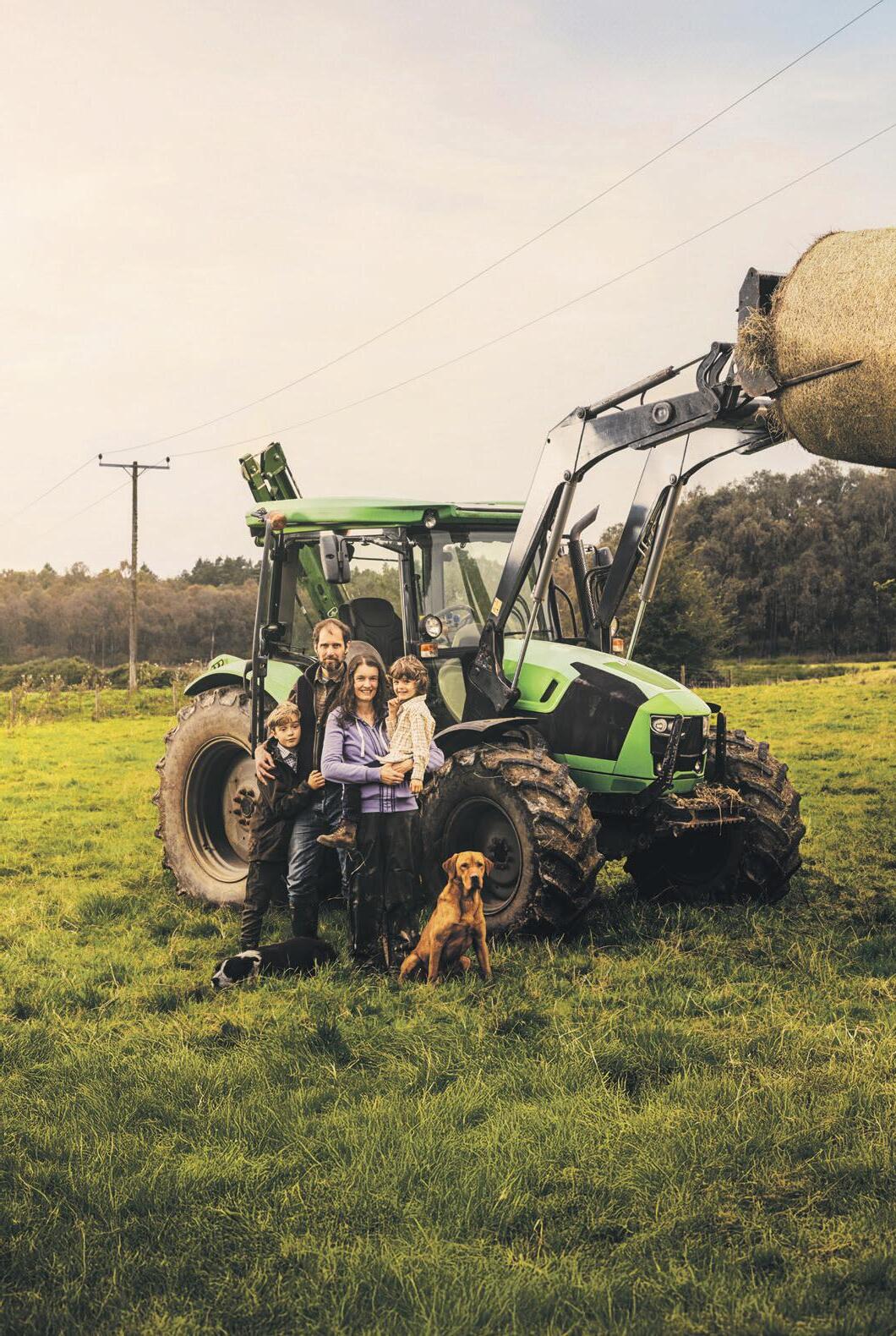



Farmers faced a dilemma when Wednesday 5 March dawned sunny and comparatively warm after weeks of predominantly wet and miserable weather.
While the annual Farm Expo event at the Kent Showground at Detling, now in its sixth year, was offering its usual outstanding showcase of everything the agricultural industry could possibly need, the temptation to get out on the land was no doubt too much for some.
For those who made the trip to the showground, there was plenty to see, with the usual broad range of exhibitors displaying their wares, everything from insurance to solar PV opportunities and from mobile sheep dipping services to combine harvester tyres.
It was once again an outstanding show, combining the opportunity to check out the latest machinery supplies and services with a chance to chat with friends, neighbours, suppliers, customers and fellow professionals.
It may have been the weather, which has in past years seen visitors forced to puddle jump over the mud while wearing umpteen layers of warm clothing but this year allowed some to relax in shirtsleeves – the mood was optimistic, despite the current pressures on farming and farmers.
At the Crawfords Group stand, one of those sited in the external display area, Charing branch sales manager Adrian Denny was one of many enjoying both the sunshine and a steady stream of visitors.
“It’s another good show and it’s been a good chance to network and chat to existing customers and potential new ones,” he said. “It’s been interesting to see that the customers I have spoken to have all been positive.
Crawfords’ impressive display, which won the Best Agricultural Machinery Stand sponsored by South East Farmer, featured a number of high-end tractors, including Massey Ferguson’s 425hp 9S, the Valtra S416 and the Fendt 600 Vario series, a four-cylinder range that tops out at 220hp.
“I think footfall may have been down a bit because of the weather, with some farmers out doing spring cultivations, but it’s still been a busy show and we’ve had lots of interest,” said Adrian.
Also on the Crawfords stand was machinery from the likes of Manitou, Amazone, Lemken, Heva, Isuzu, Can-Am and Indespension trailers, a new franchise offered by the dealership.
Steve Pack, from Steve Pack Agricultural Services, also said he had enjoyed “a busy morning” dealing with a steady stream of enquiries and catching up with existing customers. “This is always a good show
and is held at just the right time of year,” he commented.
Steve was highlighting a range of liming and fertiliser products, including Envirocal, a quick acting and highly reactive lime alternative containing many trace elements which is cheaper than standard lime because it is a by-product of sugar refining.
Also outside following a successful show ‘debut’ inside the exhibition hall last year was Kent Towing Solutions, which had invested in twice as much space this year after finding Farm Expo 2024 an ideal way to showcase the company's wide range of trailers across brands including Erdé, Indespension, Tentbox, Nugent and Tickners.
“Last year showed us the benefit of getting our name out there, meeting potential customers and showcasing our products,” said sales manager Tyler Cox. “We’ve been equally pleased with how well the show has gone for us this year.”
Having been coming to the show for the past four years, Lister Wilder’s Ashford, Kentbased agricultural sales manager Jay Broster shared the upbeat view of Farm Expo’s ability to showcase products as well as offering a

chance to relax, chat and network. He also liked the new layout, which put the external stands in a more accessible location.
“I’ve seen lots of existing and potential new customers,” commented Jay, who said the Kubota tractors on the Lister Wilder stand were increasingly being seen as a good value alternative to some of the bigger brand names on the market.
Inside, VIP guest Olly Harrison, a video blogger when he isn’t looking after his 1,500acre cereal farm on the outskirts of Liverpool, paid tribute to Farm Expo and said he hadn’t appreciated the scale of the event.
Olly became a YouTube success story by accident, after the BBC asked him to provide his own footage of an interview during the pandemic, when Covid-19 rules meant their reporter couldn’t film him. He now uploads farming-based material to his social media channels “most days” and has been a prominent campaigner against the Government’s current plans to change the inheritance tax rules.
“It’s a friendly show, with lots to see,” he said. “I also like the fact that you can get around most of it in an hour or so if you need to, or you can spend all day here if you have the time.”
Olly also helped judge the winning trade stands, with the awards going to:
• Best Agricultural Machinery Stand Crawfords Group
• Best New Trade Stand
UK Farm Gates
• Best Trade Stand
Burden Bros Construction
• Most Informative Stand
Kent Wildlife Hub
Visitors to the show could also buy clothing and tools, chat to agencies including the Rural Payments Agency and UK Power Networks, and talk to banks, insurers, planning consultants, agronomists, agricultural charities, land agents and surveyors, amongst many other professionals.
Tom Wilson, associate director with the BTF Partnership, interviewed towards the end of the afternoon, summed up the positive nature of the busy, one-day event. “It’s a great way to bring people together in uncertain times,” he said. “I’ve been here since 8.30am and I’ve only spent three minutes away from the stand.”




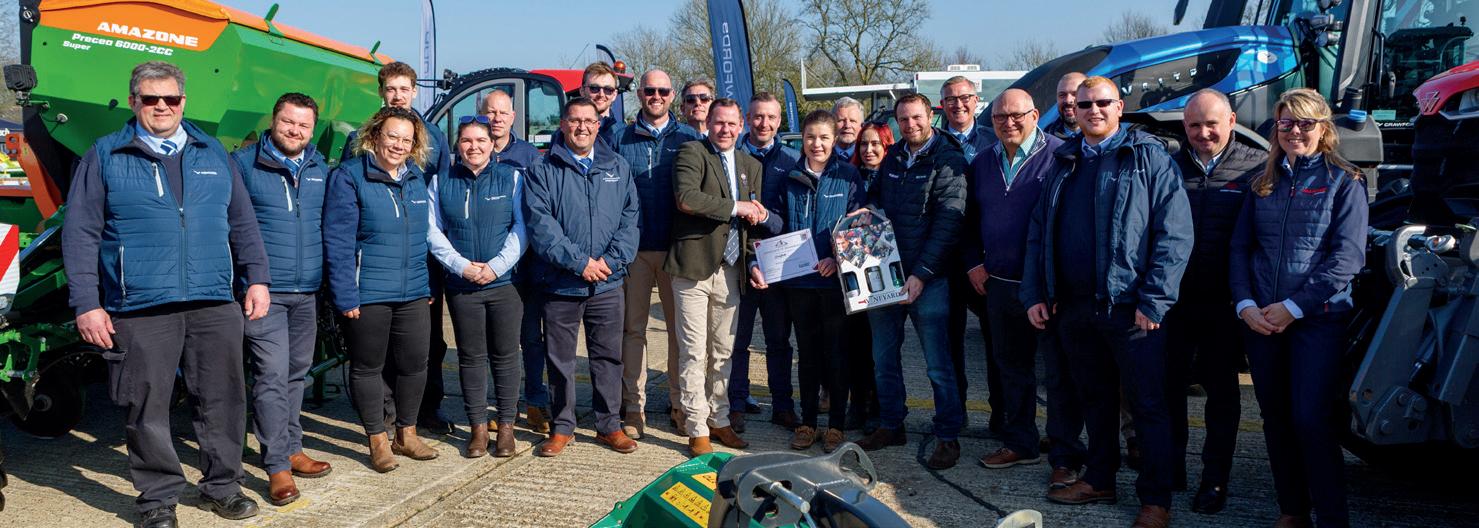
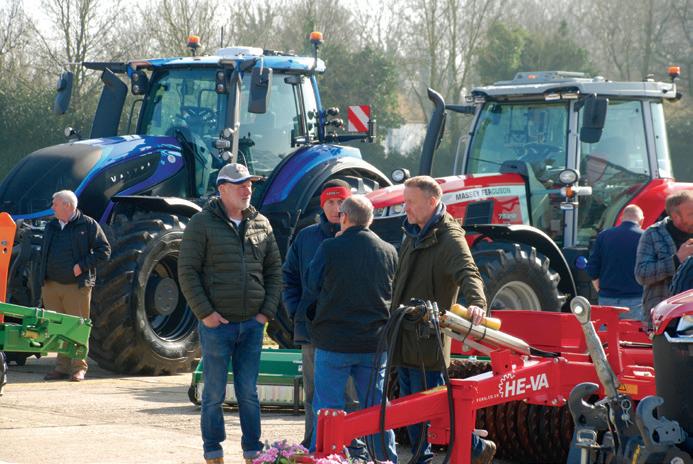

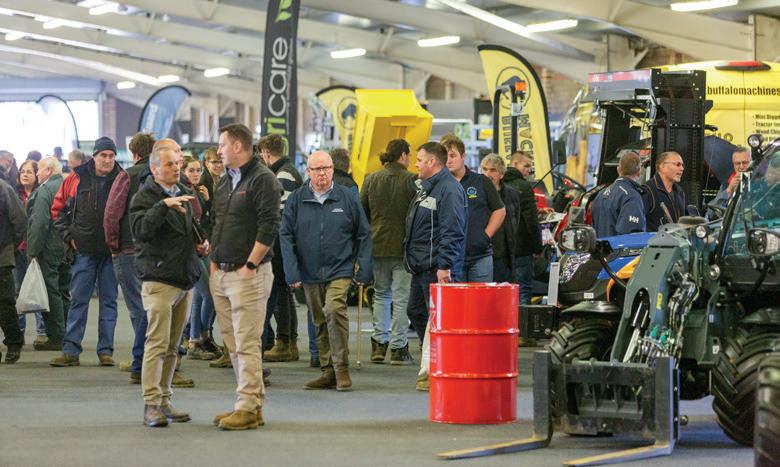

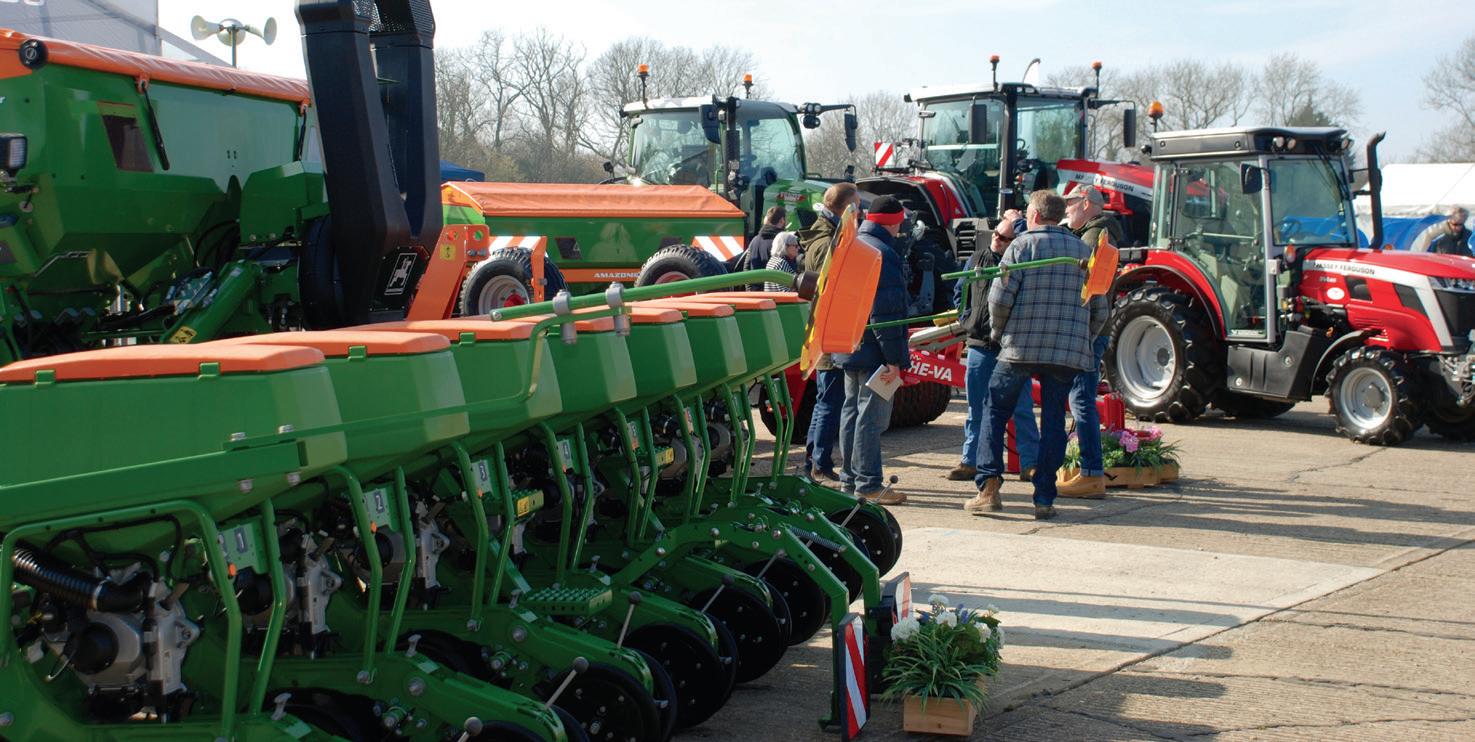
The January issue of South East Farmer contained four rather dyspeptic contributions about the Government’s recent budget (the editorial, yours truly, Stephen Carr and Anita Hickson). Happily the Akehurst team raised the mood with a couple of buoyant articles about riding the daily difficulties on farm and a positive message of connecting farms directly to customers.
The views of us four amateur economists have been echoed widely, but are we being too harsh? Democracy, which requires a high level of trust, tolerance and cohesion, is proving a fragile flower. Governing is also difficult, and the current incumbents have little experience.
The Government’s landslide victory, a peculiarity of our odd ‘first past the post’ election system, was delivered by less than a third of the voting public. Almost 70% of voters did not vote for Labour, and so if they don’t up their game and calm nerves, their time in office will be short, which would play into the hands of demagogues with their hubris. Such a result would be very much worse.
Farage, our local example, is a proven pot stirrer and can kicker, but has no record of running or achieving anything useful. He has been largely absent from his constituency, produced nothing positive from his time as an MEP and is setting up a UK branch of an American-funded climate
change denying ‘think tank’ (it includes another Trump groupie, Liz Truss), but his brand of hubris is attractive to too many with short memories.
It is often said that if America sneezes, the UK catches a cold. We already have a taste of what will likely come for the next four years from the election of a convicted felon to the White House. He, like Putin, has surrounded himself with a bunch of extremely wealthy loyal oligarchs with little experience of governing, diplomacy or international affairs.
Trump’s first term was chaotic and his second shows signs of being catastrophic. We will all feel the tornado, particularly farmers, because Trump, undeterred by recent events in Los Angeles, is set to tear up all the enacted climate mitigation measures and “drill baby drill” for US oil, so accelerating global heating.
UK farming will face more severe weather while getting less support from the Government as the NHS and defence take priority. President Trump is already rattling as many cages as he can; abandoning climate goals, casting envious eyes at Greenland, Canada and the Panama Canal and threatening tariffs on imports that will damage Europe, including us. The online media giants are enthusiastically abandoning fact checking, so misinformation, propaganda, lies, populism and division will fan the flames of the coming chaos.
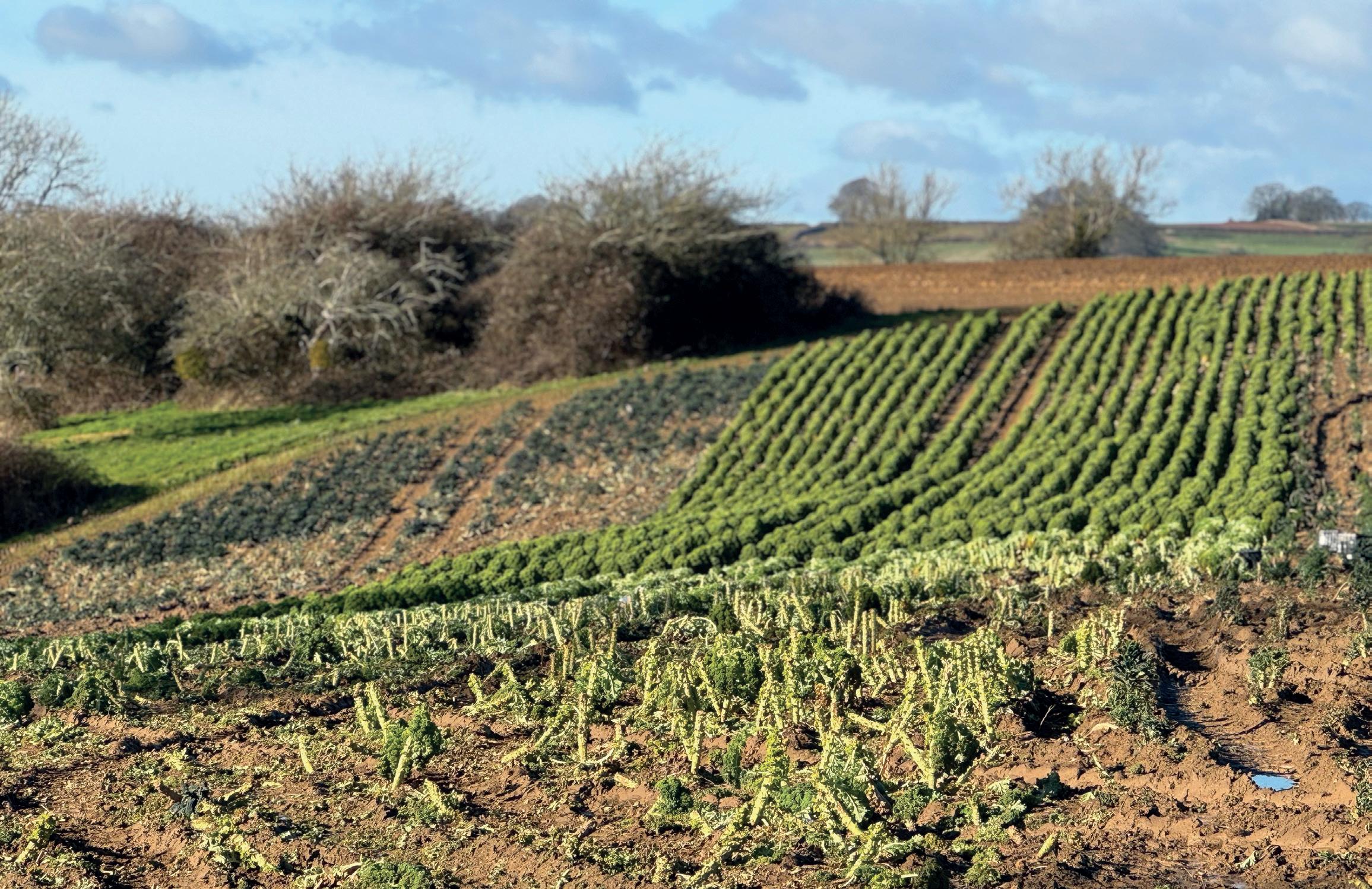
British farmers will plead that food production and security must be supported and the NFU will lobby hard for the cause. But how much of what we produce actually goes directly to feeding people? How much is essential? Government figures say that 54% of our food on the plate is home grown and 46% imported from Europe; Holland and Spain predominantly.
We are 60% self-sufficient in agricultural produce but import 50% of vegetables. Imports cost us £48billion while our exports earn only £21billion; a deficit of £27billion. Much of what we grow for home use and export goes to feed livestock.
Preparing, cooking and presenting good food gets a lot of media exposure, yet any visit to the supermarket shows a bewildering array of enticing, taste-tested, ultra-processed products. Everything is neatly packaged, including fresh produce, some of which has travelled halfway around the world.
Supermarkets dominate food retailing, and the sector is covered by about half a dozen familiar names, each of which requires a steady flow of produce presented perfectly for shoppers. A few huge companies, such as Nestle and Unilever, also dominate food manufacture and processing, particularly for snacks and ready meals. This dominance gives the companies, some of which are multinational, considerable power and influence, in particular over smaller suppliers.
Packaging, useful for convenience and hygiene, adds about 10% to cost, followed by the important hidden costs of disposal. It is wasteful of material and energy. Mass marketing fresh produce also comes with considerable waste. The unsold perishable produce feeds biodigesters, making methane. Convenient it certainly is, but at what cost in wasted energy, greenhouse gas emission and pollution? Should we not try harder to localise food production to reduce fallout?
There are also considerable concerns over processed foods that are probable contributors to the west’s obesity epidemic, with its associated health consequences. Ultra-processed foods containing ingredients not seen in home kitchens are skillfully manufactured to avoid satiety, maximise palatability and boost sales.
There are a few large-scale fresh vegetable growers in the UK that can feed this mega market. One such farm is AH Worth, farming 3,000Ha of deep, flat Lincolnshire land near The Wash. This enterprise is a Leaf-accredited farm with excellent environmental credentials that has been run by the same family for 130 years.
The business has close links across Europe to guarantee yearround, top-quality produce, and even they don’t have an easy time of it. The UK just doesn’t have sufficient suitable acres to replicate this scale of production, which is highly mechanised and requires vast, flat fields. But what will happen when the sea level rises as a result of Trump’s actions? Food security may yet come to depend on many more scattered and smaller producers, such as Drinkwater’s growing and selling quality vegetables in the Cotswolds. Might this model provide greater resilience?
Nigel Akehurst’s article on the Hiltonberry Jerseys illustrated beautifully how farmers, large or small, can usefully diversify to become integral to their local community by providing ‘home produced’ food without industrial interference. Such farms can more easily increase biodiversity at little cost to production. Can we, should we, expand this approach?
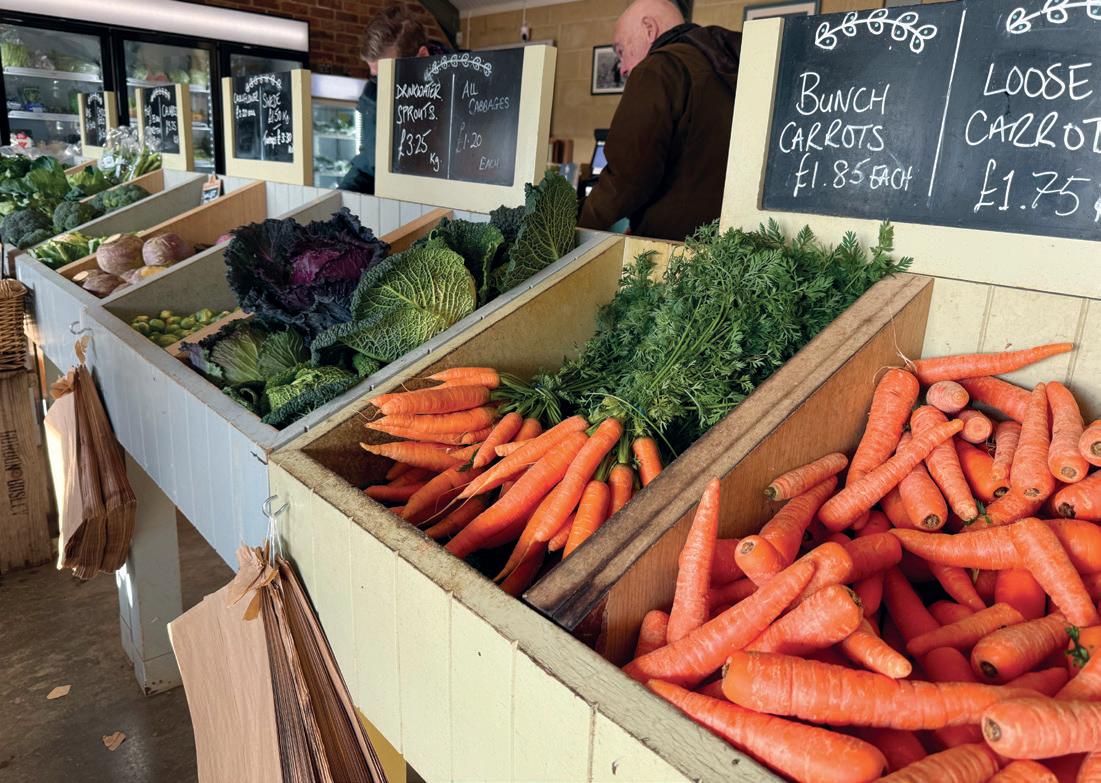
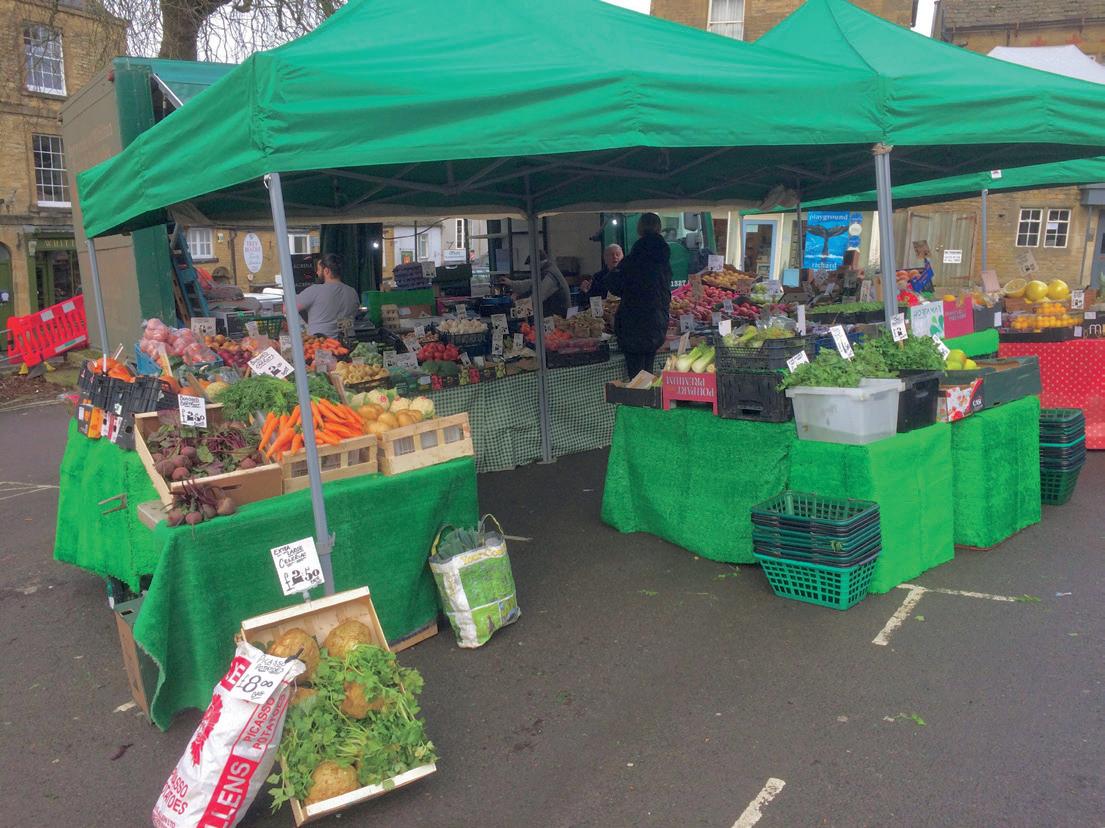
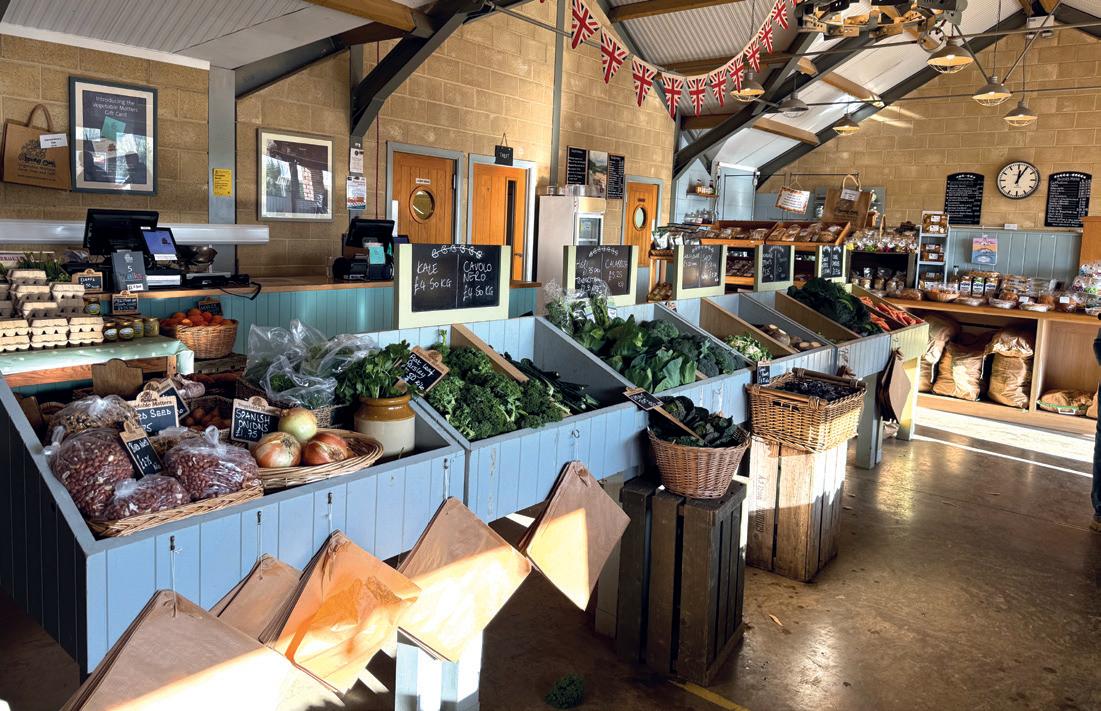
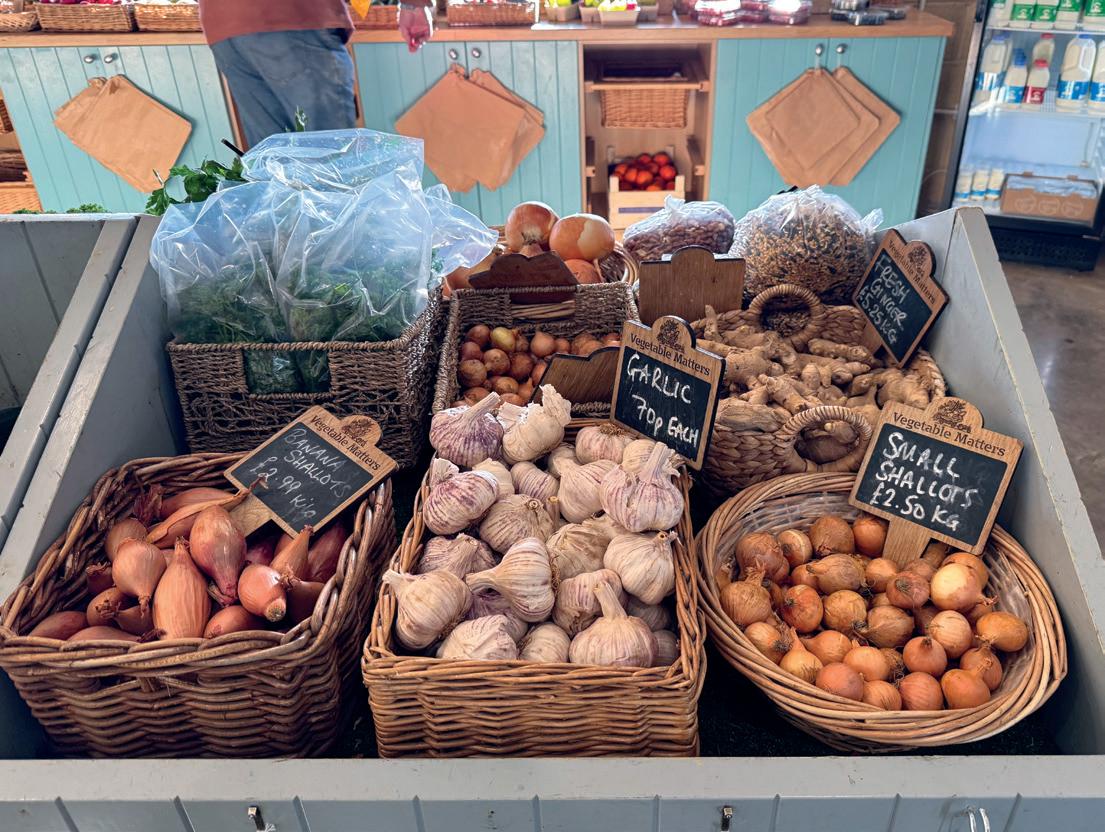
Why is it the first cup of tea of the day always tastes so good? As we savour it, we turn on our TV for our daily dose of bad news. It doesn’t stay on long; who wants to fill their head with all that is wrong with the world? After refuelling with porridge, the dogs persuade us to get cracking. It’s refreshing starting work; whatever farming challenges we face, they pale in comparison to global turmoil.
It’s a good thing farmers are resilient; we certainly need to be, especially considering the good kicking that our present government is dishing out. Three days in a row, now, they’ve made announcements that will impact our industry.
Monday’s news was infuriating, I watched astounded as Professor Susan Jebb, chairman of the Food Standards Agency, extolled the virtues of lab-grown meat. The FSA is trying to speed up the approval process for lab-grown foods, as our government is eager for these firms to thrive, hoping they will create new jobs and economic growth. They also commented that this will be better for the
environment and potentially healthier.
Lab-grown foods are produced from cells kept in fermentation tanks and then processed to resemble food, essentially creating ultra-processed food, the very thing we’ve been advised to avoid because of health implications. The rhetoric is conflicting and confusing. Lab meat doesn’t sound very appetising to me.
The efforts of the FSA to fast-track approval have been described as deregulation, but science minister Lord Vallance called it ‘pro-innovation regulation’. It’s a pity that the FSA isn’t equally proactive in supporting small abattoirs. We continue to lose these muchneeded facilities, mostly due to excessive costs incurred by over regulation. This negatively affects many associated businesses; there’s a strong demand for locally produced meat, but supplying it isn’t easy.
Tuesday's news talked of planning reforms, with new powers being given to Natural England and local authorities allowing them to seize land more cheaply where it is required for new development. When issuing
compulsory purchase orders they only have to pay agricultural land value, ignoring ‘hope value’.
Wednesday's news brought another blow. The Sustainable Farming Incentive is now closed to new applications. We had been invited to submit an application but had dithered about choosing which options to go for. It’s far more satisfying to be out farming than stuck at a computer, checking maps, ticking boxes and deciphering codes. I find it all incredibly stressful.
I know the money could have been put to good use, but I struggle with the attitude of DEFRA officials; the tone of their letters is so demeaning towards farmers. A part of me is almost relieved that I won’t have them wielding power over me. Our land will be ours to farm as we see fit.
In the meantime, the DEFRA blog tells us that we’ll learn more this summer about a reformed SFI scheme with a budget to be confirmed in the spending review. In parallel they say they’ll reform markets, supply chains and regulations to ensure farmers receive fair
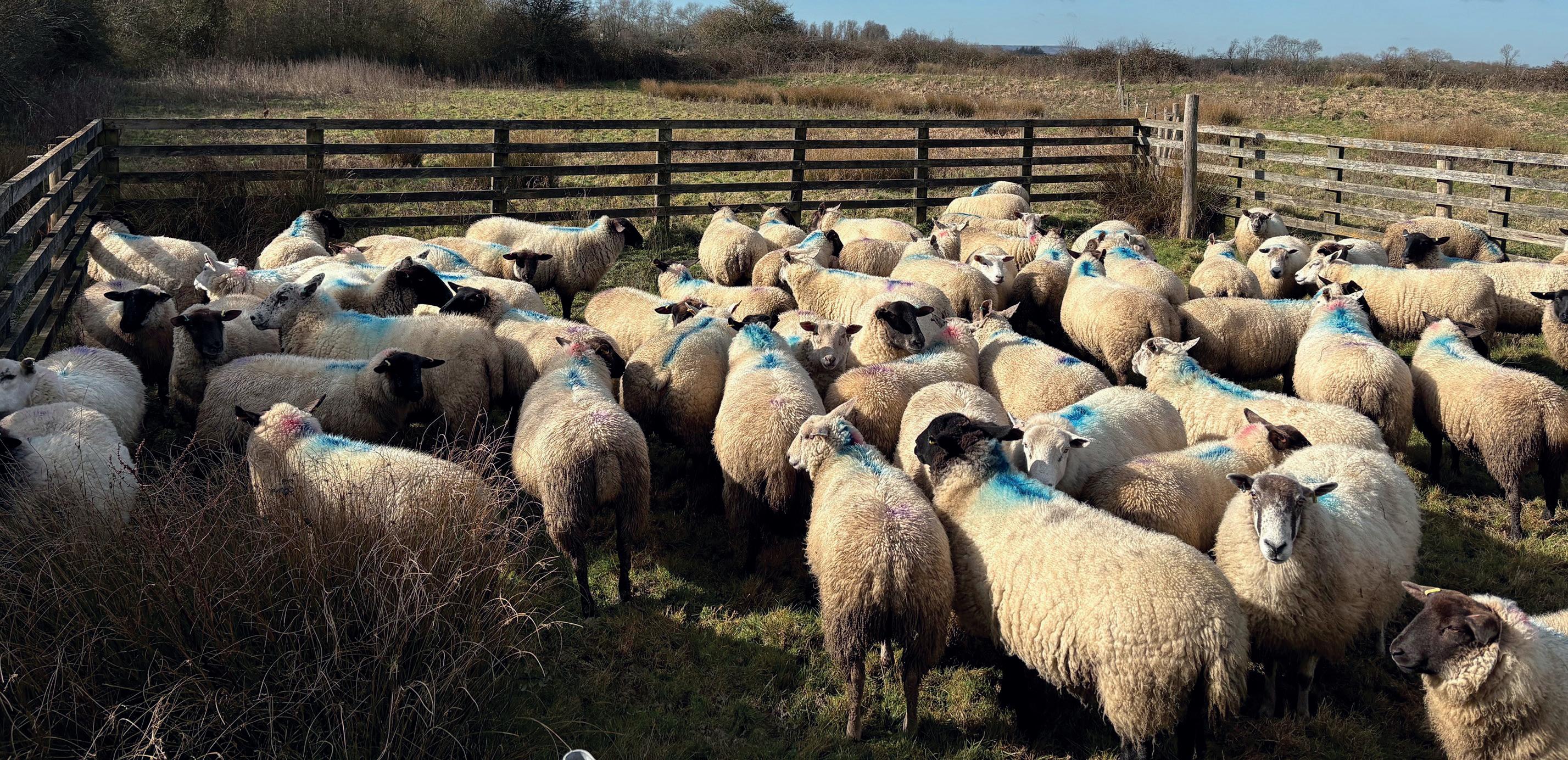
payment for food production. Brave words; I look forward to seeing them curb the power of the supermarkets. Farmers have long called for a fairer food chain.
The equipment we purchased using the Farming Equipment and Technology Fund (FETF) is useful, but when it came to verifying our claim, the level of nit picking was unbelievable. As requested, we’d supplied photos of equipment in use, invoices, bank statements etc. To be fair, when it came to ratifying our claim, they were diligent in phoning me for additional information and sent follow-up emails.
But… they insisted on several amendments. The paperwork didn’t specify where the items were delivered. The make and model weren’t clearly stated on the invoice. £100 discount wasn’t broken down per item.
The final straw for me was when they claimed the Galebreaker didn’t cover a large enough area. I pointed out it covered the gap in the livestock building to protect against the weather. To their credit, they later rescinded that query and even apologised for making a mistake. Eventually we received our grant money, but I found the process nerve wracking. I suppose I need to toughen up.
I wonder if our government is putting as much effort into protecting the UK borders from illegal meat imports as it is into other policies. Tight biosecurity on imports is crucial. In January, Germany detected three cases of foot-and-mouth disease in a herd of water buffalo, and in March Hungary reported an outbreak in cattle near the Slovakian border. I hope no corners are being cut when it comes to keeping this disease out of the UK.
On the farm, we’ve been appreciating the drier spell of weather and welcoming the occasional sunny episode, even if the nights have been frosty. Grass growth has slowed, taking on a brownish tinge; fingers crossed that by the time you read this it will have greened up.
My ewes have been safely transported back from the marsh. We’re continuing to sell hoggets at market and plan to clear them all before lambing begins. I wasn’t pleased to see Australian and New Zealand lamb joints appearing on supermarket shelves.
There’s never a dull day in farming. Early one morning my phone rang, announcing a ‘no ID caller’. I cautiously answered it. Sussex police
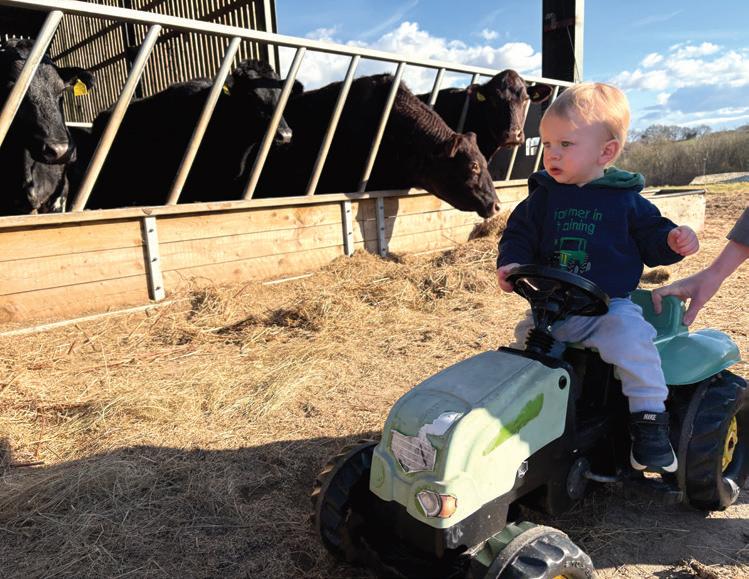
Thomas – farmer in training
Angus learning how to fork up hay
Ewes appreciating the high energy blocks

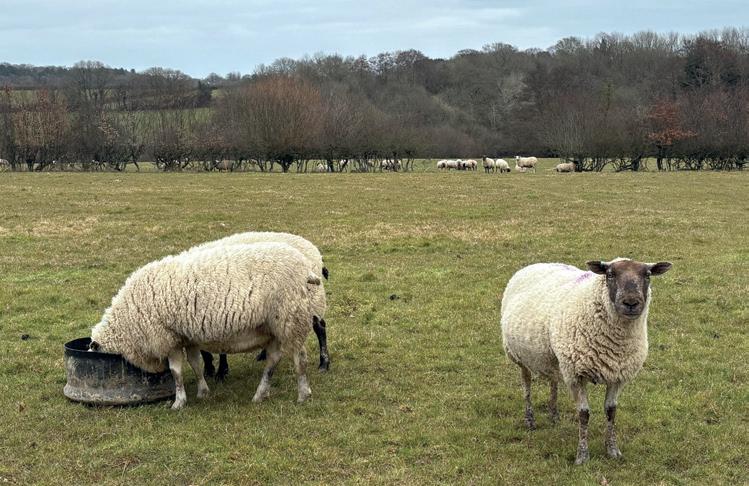



Mismatched wellies, comfort over looks. Brie thinks she adds to the look
– “There are sheep loose on the A259, near to middle bridge. Do you have sheep in this area?” I couldn’t deny the possibility, although I doubted they were ours. I told them we’d take a look. Police aren’t practised in dealing with livestock, so I did feel sorry for them, especially given how busy that road is.
The police looked relieved when we arrived. Seven escapees (not ours) were the problem. The officers had managed to contain them on a track alongside the road. I phoned local shepherds and managed to establish a potential owner. For safety’s sake we moved
the sheep into an empty field and informed the landowner.
The police suggested that farmers put their phone numbers on gates adjoining roads. I see their point, but I doubt that will happen.
This was their second call of the day, the first having been related to a knife incident in Worthing. We chatted about rural crime before heading home. On the way, my other half mentioned that the officers were amused by my mismatched wellies. One had sprung a leak, and I don’t like wet feet; comfort comes before looks.
This month, students studying environmental studies and conservation share their experiences at Plumpton and how their experiences have shaped their aspirations for a brighter, more sustainable future. Their stories illustrate how the college has empowered them to pursue their passions, explore new career paths and overcome challenges along the way.
I studied animal management at Plumpton between 2008 and 2011. I then worked in a number of jobs but couldn’t find the right fit. I ended up volunteering as a trainee warden with Kent Wildlife Trust, sparking my career change into the countryside sector. I chose Plumpton because of the location and the amazing experience I had enjoyed previously. I was fortunate enough to receive government funding which covered the cost of this two-year diploma.
I came into this course with the goal of becoming a ranger, managing the countryside for the benefit of wildlife. Though this is still an option, my time at college has provided me with opportunities to explore other career paths. I'm now considering teaching countryside management.
Returning to education as an adult was daunting. I had concerns about being back in a classroom, doing homework and being with classmates who were nearly half my age. All my worries were unfounded, though, as I have thoroughly enjoyed my course and made lifelong friends along the way.
For those contemplating a career change, I highly recommend exploring the options available. There are often more opportunities
than you realise, and if you're willing to take the chance, a course like this can be life changing.
Plumpton has allowed me to grow, both academically and personally. After struggling with conventional ‘A’ levels, it gave me the space and support to explore my true passions in an environment filled with knowledgeable and like-minded individuals.
Plumpton's agricultural roots have enabled me to explore the unique relationship between farming and nature. Throughout my course, my confidence has soared and my interpersonal skills have strengthened. The college offers a wealth of opportunities, both within and beyond the curriculum, to connect with industry professionals and deepen my knowledge. These experiences have provided me with the self-assurance to pursue a career in the industry or continue my education.
My time at Plumpton has inspired me to forge my way in this dynamic field, and I hope to pursue a degree in environmental science to further explore the technical aspects of our local environments.
After completing my GCSEs, I first considered Plumpton College for its level 3 forestry and arboriculture course, intending to pursue a career in forestry. However, as I explored the college’s offerings further, I became intrigued by the level 3 land and wildlife management course, which offered a broader scope and the opportunity to keep my career options open.
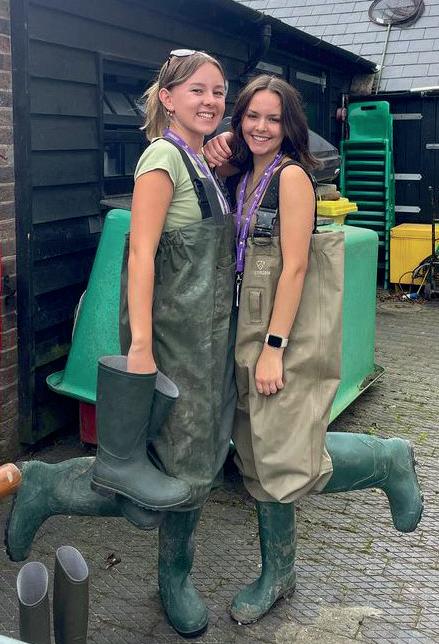
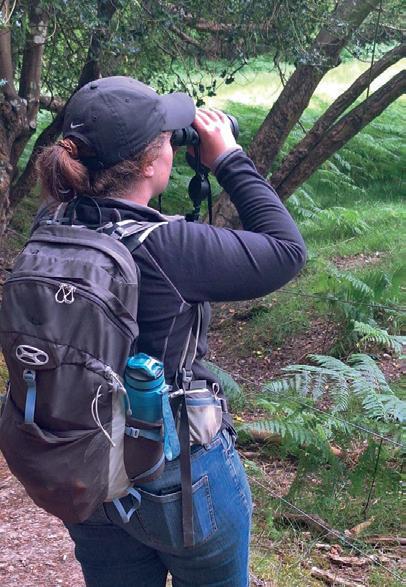
at Plumpton has been a rewarding experience, providing me with valuable insights into various UK rural and urban habitats, with a strong emphasis on sustainable management practices.
I’ve had the opportunity to engage in hands-on tasks both at college and through work experience with organisations like the South Downs National Park Authority, which has given me a deeper understanding of the seasonal tasks in the countryside. The balance between practical management applications and report writing has suited my learning style, particularly with the continuous assessment structure, which alleviates the pressure of one final exam.
While my primary interest still lies in woodland habitats and forestry, this course has allowed me to explore these areas from the perspectives of sustainability and wildlife conservation, which has further strengthened my passion and expanded my knowledge. After completing the course, I plan to further my expertise in arboriculture and possibly pursue a career in tree surgery. The land and wildlife management course has not only clarified my direction but has also opened up a wealth of career opportunities.
These inspiring journeys demonstrate how Plumpton College supports students in finding their paths, embracing new challenges and growing both professionally and personally.
If you are an employer and would like to know more about the benefits of taking on an apprentice, the college would be delighted to help; get in touch with our apprenticeships team at business@plumpton.ac.uk

SARAH CALCUTT
ARA g S Chair, Fruiterers Awards Council
John Shropshire opened his speech at the 2025 City Food and Drink Lecture by asking the audience: “Why are we cutting food production, putting food security at risk, for the sake of greening and reworking the environment?”
He raised concerns that the removal of productive farm land from food production with schemes, and seeming priorities, to increase rewilded areas was merely pushing environmental challenges overseas by requiring the production of food in a less suitable climate.
John, the chairman of G’s, called for a vision for UK food production, stating that resilience was simple; it’s a matter of doing the right thing in the right way in the right place. The changing climate, he said, was a challenge but also an opportunity for British farmers in this temperate, maritime climate which gives the country an advantage in the range of products that can be grown here.
G’s has made substantial investments amounting to more than £350m in the past decade, building resilience, reducing labour costs, raising environmental standards and improving food standards and consumer value. The company has supported precision breeding and the integration of AI across the business, delivering better data analysis and better use of results to inform business strategy and support customers.
The success of the G’s business has come from what John referred to as relentlessly investing in people, technology and the future.
In the 73 years of the family owned and run business, the principles of John’s father Guy have been at the heart of every decision.
The farming pioneer always worked on the twin mantras of “the customer is always right” and “treat people as you wish to be treated”, said John, adding: “Everything else is overheads.” A good farming business is always about improving things and enhancing the lives of others, he said.
With G’s turnover now £730m a year, the company’s aim is to be the number one or two supplier in each crop they work in and with every retailer, building a close relationship with customers; they must do an outstanding job, day in, day out.
John acknowledged, though, that the market place was difficult and said contract pricing, originally a risk mitigation strategy, had over the past 15 years created a situation where everyone was removed from market reality. He compared contracts to a welfare state, which “keep you alive but not thriving”.
John said there was little upside for the best growers, suggesting that in no other market
in the world would buyers reject dynamic pricing according to supply and demand and that there was no flexibility in seasonal pricing that could not respond to weather and political challenges. Farming has the lowest returns and the lowest bankruptcy rate and was being kept in a subjugated state, he said.
John called for reform of the “bonkers” planning regulations that he said smothered thriving farming businesses and saw beneficial business investments that would increase food security falling at the first hurdle, stopped by inaccurate data on the environmental impact of the sector and an obsession with rewilding rather than feeding the population. He said the land use framework should be making this a grown-up debate about where we want to place food vs schools vs houses and how we find the granular detail needed to make intelligent decisions.
John Shropshire delivered a thought provoking, farmer and food-focused lecture which was one of the strongest in recent years, raised many questions and challenged the audience not to accept the status quo.
John Shropshire

Contrary to the old ‘big is beautiful’ adage, first-generation organic growers Stephen Atkinson and Hélène Maerschalck have built a thriving farming business on just 4.5 acres of heavy Wealden clay in Fairlight, East Sussex. Growing over 50 varieties of vegetables and leafy greens, they supply 120 boxes a week year-round to their local community – proving that small really can be beautiful.
Spotting the farm signage along the main road from Hastings to Pett Level, I turned off onto a farm track and parked next to a modern, timber-clad barn. Stephen finished watering seedlings in the propagation tunnel before joining me. Making a cup of tea in their recently completed barn, built in 2022, we moved outside to enjoy the sunshine and check out the garden.
Looking around, I’m struck by how neat and orderly everything is, despite being early in the season; what growers call “the hungry gap”. They’ve just finished their swede but are still harvesting their own leeks and a few sprouts, plus salad and herbs in the tunnels, explained Stephen.
To keep supplying customers year-round, Stonelynk Organics relies on an organic wholesaler for winter mainstays like potatoes, onions and carrots and a few imports from the continent such as tomatoes and citrus. As soon
This month Nigel Akehurst visits Stonelynk Organics in Fairlight, East Sussex, to learn how first-generation organic growers Stephen Atkinson and Hélène Maerschalck have built a successful farming vegetable box scheme from scratch since 2017.
as late May arrives, however, they bounce back with fresh broad beans, followed by peas, beetroot, carrots, garlic, and courgettes in June. By July, the polytunnels overflow with tomatoes and cucumbers, and August brings a bounty of squash.
Stephen and Hélène’s direct-to-consumer approach took time to develop. Early on, they delivered their produce to the Sussex Peasant in Brighton and local farm shops in Hurst
Green and Rye, but over time realised the most profitable and time-efficient option was to sell directly from their farm. Today, most of their sales happen on site, with 80 boxes being collected from the farm each week. They have a waiting list for their weekly veg box – priced at £18 per box – which is testament to the strong local demand.
Neither Stephen nor Hélène studied horticulture at university. Stephen has a
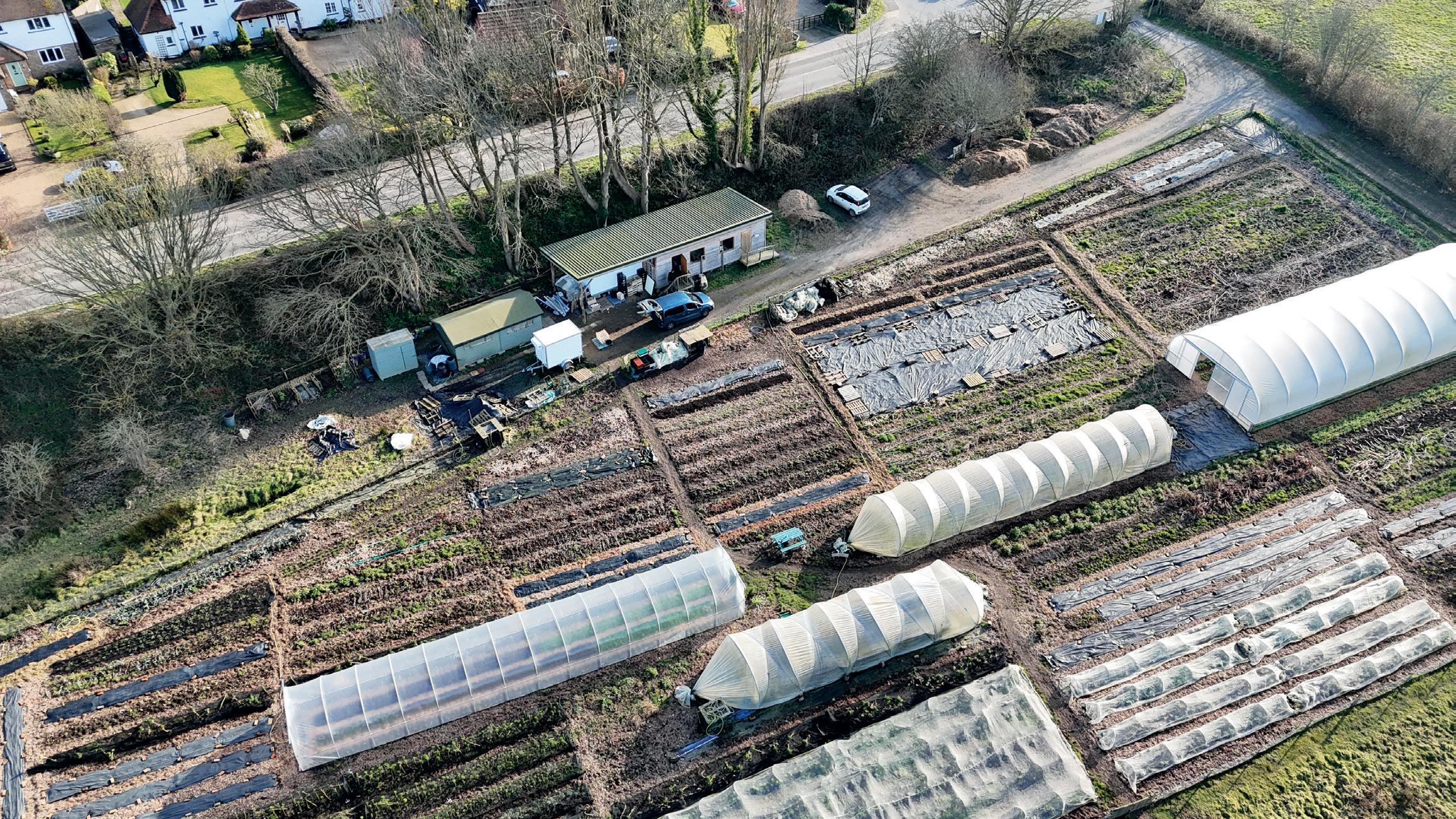

background in history and previously worked for a food waste charity in London, while Hélène worked on food security issues in Brussels. They each spent time traveling to learn farm skills, eventually meeting on an organic farm in Dorset where Stephen worked. They decided to set up their own organic market garden in 2017.
They found organic land in the High Weald National Landscape to rent via the Landworkers’ Alliance website, discovering that the landowner was Craig Sams, a successful businessman. After visiting the site and presenting a business plan, they secured a lease on the two-acre field bordering the main road.
Three years later, craving security and permanence, they asked Craig if he would consider selling them the land. To their surprise and gratitude, he agreed, and they purchased both the original field and an adjacent one, effectively doubling their growing area.
The total land owned is 4.5 acres, with two one-acre growing fields (both measuring roughly 100 metres by 40 metres) under active cultivation, explained Stephen. The rest remains a mix of margins, hedgerow and an area of wilderness which provides space for wildlife and biodiversity. They have recently cleared a small area of scrub to install a ground array of 20 solar panels.
Before starting their business, they cleared both fields of existing scrub and hired a local farmer to plough and power harrow the
heavy clay soil before creating their market garden. Nowadays, they rely on a two-wheel BCS tractor for light rotavation of growing beds, top-dressing them with green waste compost and organic certified chicken pellets. Stephen said the soil was “heavy and sticky,” and benefits from slight aeration, whereas the polytunnel beds, protected from rain, are effectively no-dig.
“Some growers are entirely no-dig, but on our clay soil, a little tillage helps,” Stephen added. “We’d also need to buy in a huge amount of green waste compost, and this way we can manage costs and still improve soil health.”
Most crops, like lettuce, brassicas and peas, are started in the propagation tunnel and transplanted by hand. “You get a head start on weeds and pests,” Stephen explained. “The challenge is finding a reliable peat-free compost. Right now we’re using something coirbased. Other mixes use wool, bark; everyone’s trying to find that perfect replacement.”
Carrots, radishes, rocket and coriander are direct-sown. Everything else begins its life in trays before heading outdoors.
Currently, Stonelynk Organics employs five part-time staff, about 1.5 full-time equivalents, in addition to Stephen and Hélène. They often hire a few more during the summer peak season. >>
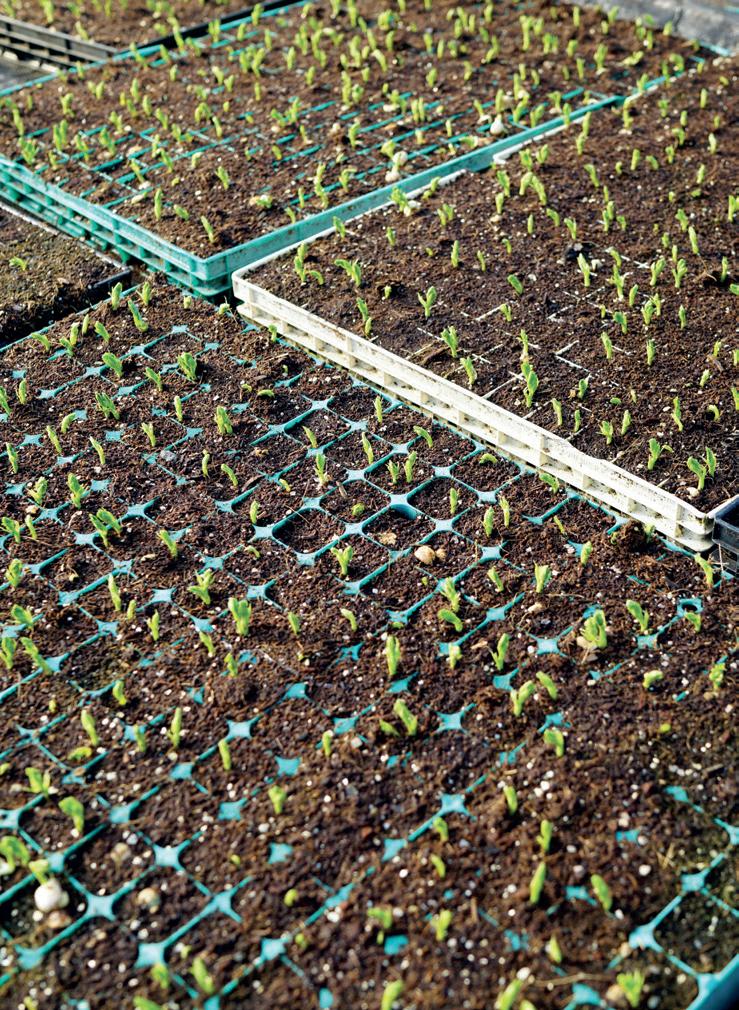
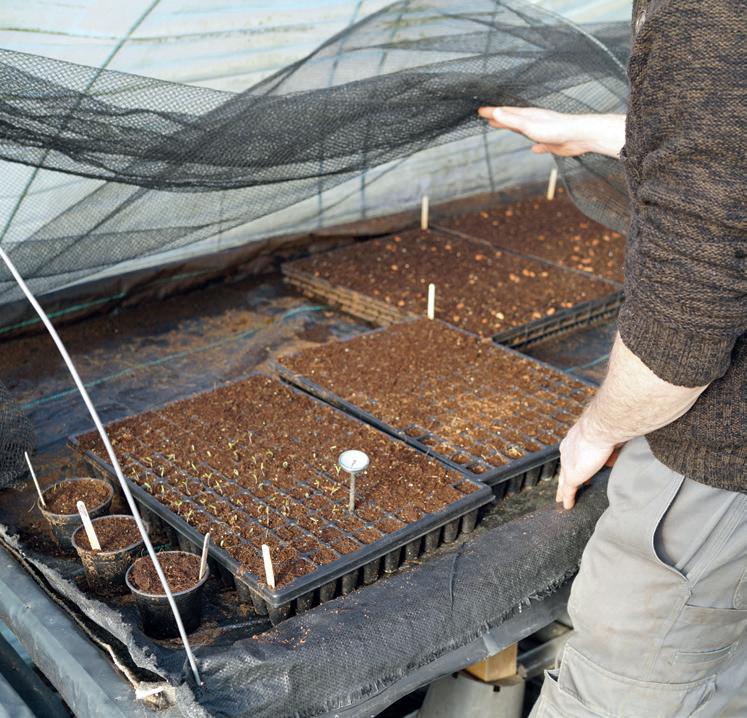
• Location: Fairlight, East Sussex (High Weald National Landscape)
• Acreage: 4.5 total, with two under cultivation
• Production: 50+ varieties of vegetables and leafy greens
• Box scheme: 120 boxes per week, £18 per box, waiting list in place
• Team: Five part-time employees (1.5 FTE), plus Stephen and Hélène
• Cultivation: Combination of light rotavation, top-dressing with compost, minimal till in polytunnels
• Diversification: Workshops (fermentation, baking, growing), community events
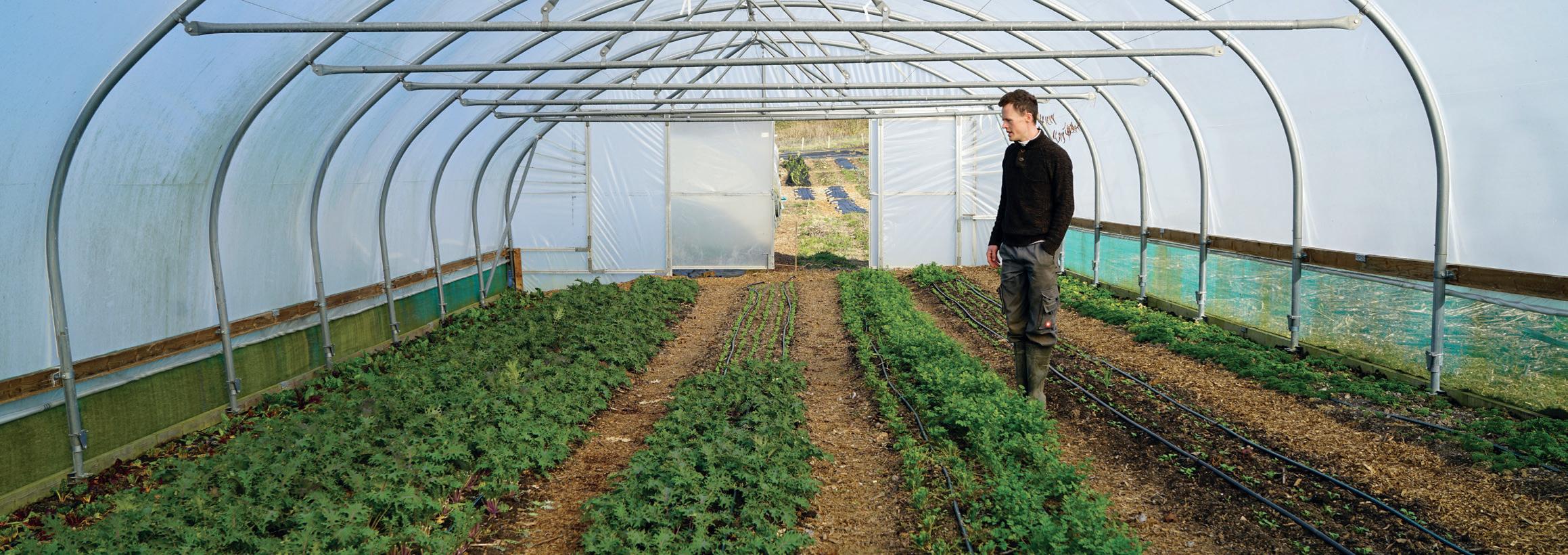
Stephen Atkinson
Though they can’t offer high wages, he admitted (they pay the national living wage), the farm still attracts people who value hands-on learning and working in nature. “We get loads of applicants,” Stephen noted. “It’s heartwarming; people want to re-skill, be outdoors and do something beneficial for the body and the planet. We love having a team; it’s fulfilling to share knowledge and see new growers learn.”
Rather than continuously expand vegetable production, Stephen and Hélène have chosen to diversify. After constructing their barn in 2022 (with help from a council grant), they began hosting workshops and events. “It’s part of our ethos; we don’t want to be a little island just doing veg,” Stephen said. “We want to build community, teach and share skills.
“I started with sauerkraut and fermentation workshops, then sourdough, and now I teach seasonal veg-growing classes. It’s definitely a growing wing of the business.”
Stephen believes commercial viability varies widely by region, resources and personal goals. Stonelynk Organics leans heavily on direct sales but also stocks wholesale veg when their winter supply runs low. This hybrid model keeps their customers happy year-round.
“If it were just Hélène and me, we might do a seasonal box from May to December and take winter off,” he said. “But with employees and a customer base that wants consistency, we do rely on some imported << organic produce during the hungry gap.”
For those considering a similar path, he notes the importance of location – near a supportive community, with decent access and no onerous daily driving. Having enough help to cover days off or weekends also prevents burnout, keeping the business sustainable long-term.
Stephen, a lifelong churchgoer, views his work as an expression of caring for the planet and for his neighbours. After working at a food waste charity in London, he found farming to be a more proactive way of tackling some of the world’s big challenges.
“I was excited to find what felt like a real solution,” he explained. “Working in food waste, I felt like I was putting a tiny plaster on a massive wound. Organic farming felt more productive, hopeful and ambitious. Plus, I love the work; being outdoors, staying healthy. It’s a wonderful way of life.”
Stonelynk Organics showcases a compelling model of small-scale farming that balances efficiency, local engagement and environmental care. By building close relationships with their customers, maintaining manageable production levels and offering educational workshops, Stephen and Hélène demonstrate that small can indeed be not only beautiful but also sustainable.
Their story is a beacon of hope for aspiring growers and a reminder that thoughtful, community-focused agriculture can flourish on just a few fertile acres.
Storytelling through interviews, features, case studies, photography and videos.
For enquiries contact Nigel Akehurst via email on nigel@indiefarmer.com
Instagram @indiefarmer
www.indiefarmer.com

Resilience is one of those buzz words thrown about by our advisory agencies: The ability to withstand difficulties, or a secondary meaning of elasticity, either way asking for preparedness in business design. Not that farmers should be pessimists, but the concept is sensible in the face of geopolitical uncertainty, weather extremes, policy change, accidents and the generally unforeseeable. Simple survival, in fact, is what it may mean to many of us, and it requires a pro-active plan.
Emptying the dishwasher, I pride myself usually as a blur of fluid movement, time and motion and spatial organisation. That is until I injured my back. Currently, suffice to say, the above description is but a wry memory. My temporary disablement has resulted in the longest time ‘off work’ in my career, approaching six weeks and counting. Both meanings of resilience I have considered. A return to my own physical elasticity, but gratitude to the support system that is inherent in a family farm’s DNA.
The condition coincided with the start of calving, including 14 ominously well-looking Sussex heifers, and, unthinkable to me once, the operation has been entirely delegated to my wife and daughter. Successfully so, I hasten to add, and from being initially tormented with frustration I have come to relax at the realisation of how well things can still be done in my absence. I am not high on opiate pain relief here, but relieved of my own selfimportance. As a business and as a family we
By NFU East Sussex Chair Martin Hole.
have so far been resilient. Passing the test. It is a good feeling to have such support and to see others flourish in the face of what I had (egotistically) assumed would be a challenge.
Resilience has been carefully championed as a concept through free advisory visits organised by the Agriculture and Horticulture Development Board over the past few years. We had our MOT from a bright young agent, who focused on transition and probed our future plans. Not surprisingly he suggested we would need to make more money than we currently achieve. We’re working on it…
Looking outside the farm boundary, I have reflected on the words of NFU President Tom Bradshaw that the Labour changes to inheritance tax have “very distressing human consequences”. Until we really understand the special qualities of the fabric of family businesses, we can’t take full meaning from Tom’s seemingly emotional response. His assertion, though, has gathered intelligence from my recent discomfort.
The human frailty and human strength that are implicit in the relationships stiffened by the need to prevail are core drivers in the success of British farming. That Tom chose this as the pointed shaft of his ongoing leadership
of the campaign to “protect family farms” shows a forward looking kindness. It is not just about money, but the heart of family values. I am proud to share his view, and fortified in knowing the passion with which this government’s inhuman demands are being fought by so many within our industry, and especially by our NFU team.
Through my codeine-shrouded perusal of the news recently I note the softening of regulatory restraint on the determined reappearance of beavers in the English countryside. More than 20 years ago I recall going up to Whitehall to campaign on behalf of the return of this extraordinary force of nature, largely trying to get officials to stop smirking and understand that this was an achievement of which to be proud.
This meant resources and freedom for management, trapping, infrastructure adaptation and, as a last resort, lethal control. Entreaty was met with a mix of merriment and tolerance of eccentricity. The days are now with us, and resilience can be extended through our carefully integrated relationships, not just with family, but with wildlife and the life of the systems from which we subsist. The challenge just gets richer.



SATURDAY 24TH MAY 2025
The Edenbridge & Oxted Agricultural Show can always be relied upon to offer something a little different to keep it fresh and exciting for visitors and exhibitors alike. This year is no exception, with the announcement that the official JCB Dancing Digger team will be rolling into town to entertain the crowds at the Ardenrun Showground near Lingfield.
Running across Sunday 24 and Monday 25 August, a full programme of livestock showing for cattle, sheep, pigs and goats will be open for entries in May. A shake-up of the equestrian competition section has introduced more unaffiliated showjumping options, including an eventers’ challenge and a new rescue equine section along with arena demonstrations. Timetables are available online now, with schedules following shortly.
Trade stand bookings are open on the website, with the show offering sensible, affordable pricing, especially to standholders serving the agricultural, horticultural and equestrian industries. Trading is always busy for these stands, given the show’s high attendance from the rural community.
Tickets are available online, with an early bird discount applied. A two-day membership is the ideal solution for visitors who want to see and experience everything this super show has to offer. These can also be purchased from the show’s website, with prices starting from just £48.






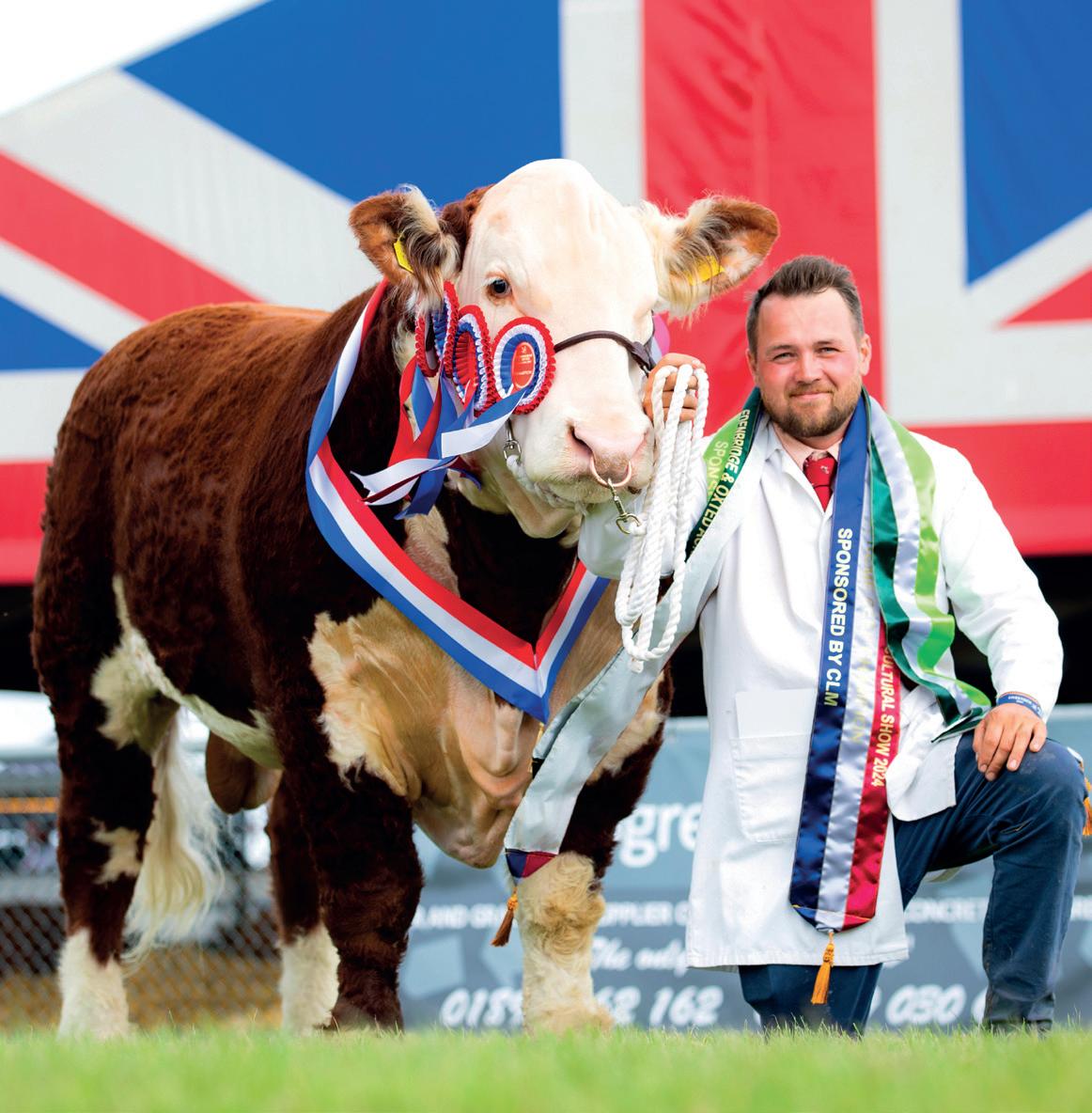


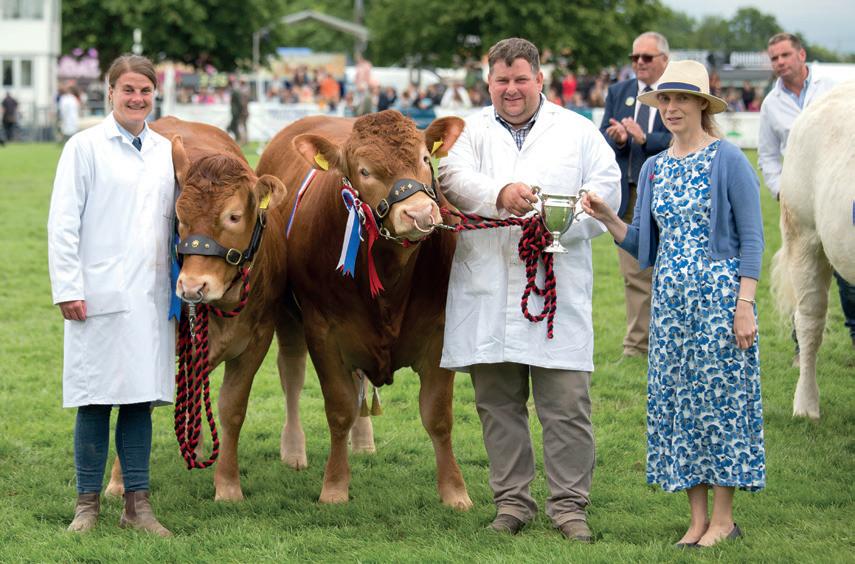
The South of England Show is set to return from Friday 6 to Sunday 8 June 2025 at the South of England Showground in Ardingly, West Sussex.
Following a strong livestock section last year, there will be over 300 classes for 2025, with entries opening in March, bluetongue and DEFRA rules allowing. Exhibitors will once again receive free tickets to the stockman’s dinner on Saturday evening, with tickets allocated according to the number of animals entered.
Beyond the show rings, the event provides great opportunities for farmers and landowners to connect and engage with each other as well as with industry leaders. The popular ringside farmers’ marquee, hosted by Long Man Brewery, will again serve as a hub for informal networking and discussions. The Country Land and Business Association (CLA) will be hosting a breakfast event and presenting the association’s Rural Excellence Awards on the Friday.
New for 2025 is a wildlife and food production area, designed to highlight the essential balance between farming and environmental conservation. Industry experts will be on hand to share best practice, and on the Saturday the area will host a farming technical forum which will also be streamed live online. This new area will also serve as an interactive space where the public can learn how farmers, landowners and agricultural organisations implement innovative approaches to protect biodiversity while maintaining productive farms.
For equestrian enthusiasts, over 130 competitive classes will be on offer plus heavy horse displays, the exhilarating Inter Hunt Relay and scurry driving. Younger riders will be part of the action, with the everpopular Shetland Pony Grand National once again taking centre stage alongside the Equestrian Games UK, with mounted competitions for young equestrians. New for 2025 will be live talks and demonstrations from farriers and equestrian professionals in a ‘Beyond the Stable Door’ event on the Saturday.
For those passionate about rural traditions, the show presents a vibrant programme of countryside entertainment. Visitors can witness expert search and rescue dog demonstrations, marvel at falconry displays and watch traditional woodland skills in action. A dedicated medieval reenactment zone will transport guests back in time, offering an engaging look at historic rural life, while vintage agricultural machinery and the British Army showcase will add to the variety of attractions.
The bustling food hall and village will celebrate the finest locally produced goods, and a grape & grain walk and gin alley will offer a journey through the region’s best wines, craft beers, ciders and
handcrafted spirits from independent distilleries. The Made in Sussex area will also return for 2025, showcasing an array of artisan goods, from food and drink to countryside-inspired clothing, accessories and homeware. For families, the show offers an exciting day out packed with interactive activities and educational experiences. Children can enjoy hands-on cookery workshops, meet farm animals up close and ride mini steam trains.
Applications for trade stands are now open. Tickets for the show can be purchased at www.seas.org.uk and cost £24.30 for adults and £22.50 for senior citizens/students, including a 10% advance discount until 29 May 2025. Children under 16 can enter for free (suggested donation of £2). Dogs are discouraged.
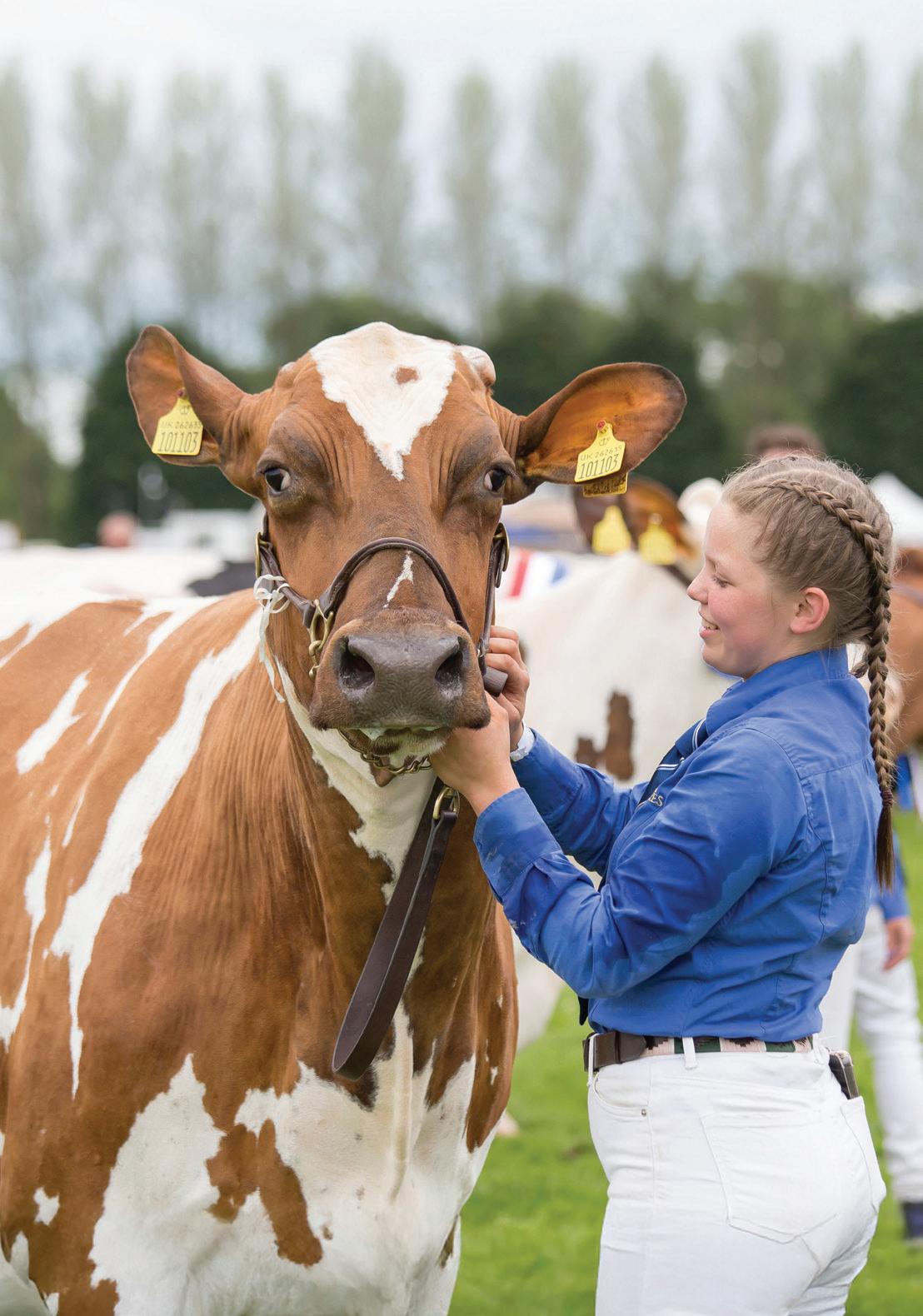
Kent County Agricultural Society is inviting visitors to celebrate the best of Kent at the county’s showcase of farming, food production and rural life in the ‘Garden of England’ as the Kent County Show returns on 4, 5 and 6 July.
Over three days, livestock, horses, vintage vehicles, retail stands and much more will converge at the showground for a festival of the best of Kent. Discover fascinating aspects of rural life at each of the Show’s educational and interactive sections.
Livestock remains a core part of the show and a favourite amongst visitors. Hundreds of cows, sheep and goats of all sizes, shapes and colours travel to the showground at Detling from across the South East and beyond with their handlers, all competing to take home the prize for ‘Best in Show’.
With livestock and equine entries due to open shortly, be sure to get your entries in for our annual three-day celebration of the Best of Kent.

The highly anticipated Heathfield Agricultural Show returns on Saturday, 24 May and promises a spectacular day out for the whole family. With tickets now on sale, visitors can take advantage of early bird discounts, while children enjoy free admission.
As one of the region’s premier one-day agricultural shows, this year’s event promises a packed schedule of entertainment, livestock and equine competitions and shopping. Set in the heart of the Sussex countryside, the show celebrates rural life, farming excellence and local enterprise, drawing visitors from near and far.
The ever-popular cattle, sheep, and pig competitions will once again showcase some of the finest livestock in the area. Equestrian enthusiasts will be thrilled by the horse competitions, featuring top-tier talent and breathtaking displays, and the fast-paced Shetland Pony Grand National will add excitement to the main ring attractions. Adding to the adrenaline rush, the magnificent Bolddog FMX motorcycle display team will take centre stage, wowing audiences with their incredible freestyle motocross stunts.
For those with a passion for heritage and machinery, the vintage tractor and steam engine displays offer a fascinating glimpse into farming history. Meanwhile the arts and crafts section will feature beautiful handmade goods and the farmers’ market will be brimming with delicious local produce.
Shoppers will be spoilt for choice, with a fantastic variety of trade stands offering everything from agricultural equipment to artisan gifts. Back for 2025, the new enterprise zone will showcase exciting, up-andcoming new businesses from Heathfield and the surrounding area.
Visitors can enjoy free parking or take advantage of the convenient park-and-ride service from Heathfield, making it even easier to access the showground and enjoy a stress-free day out. With something for all ages, the Heathfield Agricultural Show is an unmissable event for families, the farming community and countryside enthusiasts alike.
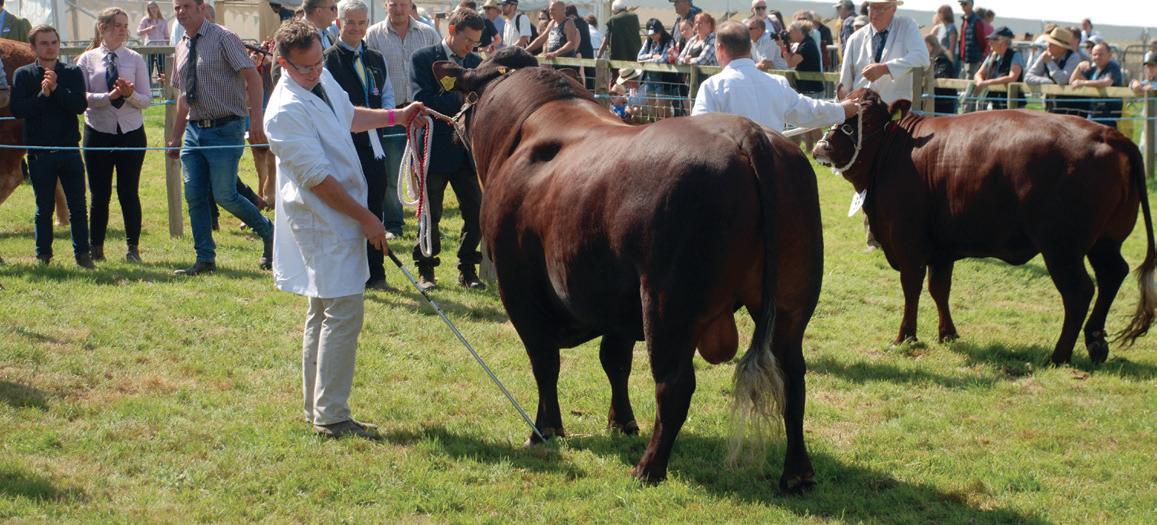
Book your tickets today to take advantage of early bird discounts. Tickets can be purchased online. For more information, visit www.heathfieldshow.org or see social media for the latest updates.
Charities supported by the 2024 Weald of Kent Ploughing match have been given a total of £10,000 as planning gets underway for this year’s event.
The impressive donation was split between:
• Cardiac Risk in the Young (for Ben Hammond)
• Weald of Kent Young Farmers' Club (YFC)
• Kent, Surrey and Sussex Air Ambulance Trust
• Ashford and District YFC
• The Kent Hounds (previously Ashford Valley Tickham Hunt)
• Bolebroke Beagles
• Childhood Interstitial Lung Disease
• Childhood First
• Dandelion Time
• The Farming Community Network
• Hands of Hope
• Homewood School YFC
• Medical Detection Dogs
• Mount Lodge YFC
• Riding for the Disabled Association
• Macmillan Cancer Support
• Royal Agricultural Benevolent Institute
Weald of Kent Ploughing Match Association Chair Nicci Gurr commented: “In addition to providing a great family day out, we are delighted to raise funds to support the work of our local, rural charities.
“We are delighted to have the ongoing
support of the local farming community, who generously provide the location for the match as well as the many local businesses who support it.”
This year’s match will take place on Saturday 13 September at Moatenden Farm, Headcorn, by kind permission of the Dungey family and the Hawkes family.
For information contact Liz Miles, secretary at WKPMA@gmail.com or visit www.wkpma.co.uk
Farmers have traditionally relied on agricultural and business relief in order to save on inheritance tax (IHT). Although these are due to be capped, they will still provide a valuable tax relief and should be maximised. However, farmers now also need to consider other estate planning options.
Everyone has a nil-rate band of £325,000. You may also have a residence nil-rate band if you are, broadly, leaving your main home to children or grandchildren and your estate is worth under £2 million. This provides an additional £175,000 allowance.
These allowances can be transferred between spouses, which means that up to £1 million could be passed on free of IHT to children or grandchildren.
There are various exemptions that apply to lifetime gifting. Significant gifts must be survived by seven years and this may increase to 14 years where trusts are involved.
Gifting can include cash, land or a share of a partnership, for example. In order for a gift to be effective, the person making the gift must not retain a benefit.
Some gifts would need advice from an independent financial advisor as they may involve investments or insurance-backed products.
Any gifts made on or after 30 October 2024 which currently would be eligible for agricultural or business relief, will be subject to anti-
forestalling rules, which mean if the donor dies within seven years of making the gift and that death is on or after 6 April 2026, the new rules will apply to the gift. This means that if the gift is worth more than £1million, inheritance tax will be payable on death.
Any trusts created after 30 October 2024 by one donor will share an agricultural/business £1million allowance between them rather than each trust qualifying for an allowance.
Advice should be taken not only on the tax planning options available but also on how to deal with future decision making, potential marriage breakdowns and the consequences of death in the ‘wrong’ order.
The above is an overview, and specific advice for your particular circumstances should be taken. If you have any questions, please get in touch or scan the QR code.



FIONA HIGGOTT
Partner in the Estates, Tax & Succession team
T: 01892 701347 | E: fiona.higgott@ts-p.co.uk
ESTHER LEE
Partner in the Estates, Tax & Succession team
T: 01892 701339 | E: esther.lee@ts-p.co.uk
www.ts-p.co.uk
For and on behalf of Stanfords T: 01206 842156 E: info@stanfords-colchester.co.uk www.stanfords-colchester.co.uk
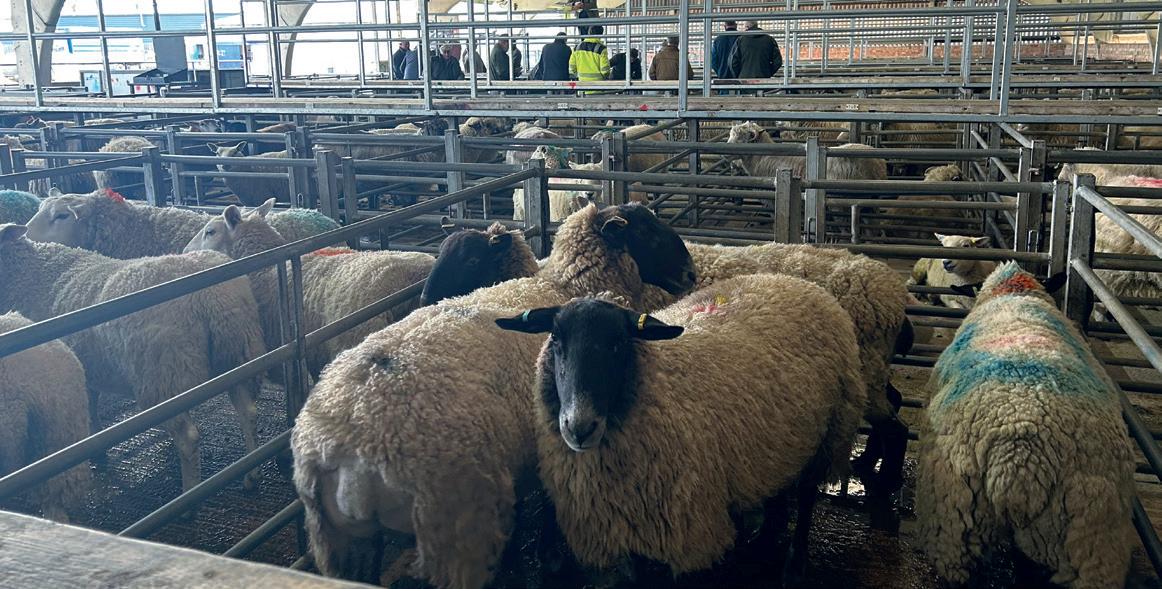
The cattle trade continued at record levels in all sections during late February and early March.
Prime cattle regularly saw prices over 400p/kg in the live ring at Colchester, with prices 100p/kg more than last year, equivalent to an increase of £500 to £600 per head over 12 months ago; a remarkable turnaround. Some resistance has been seen from retail butchers, but the national shortage of beef cattle has resulted in the trade being at the dearest levels ever seen.
Prime cattle were regularly trading at over £2,000 a head, with the very best over £2,800.
The general run of cattle was also substantially dearer than 12 months ago, much in line with the increases quoted above i.e. 100p/kg, and it seems that demand is insatiable.
Best cull cows are trading at around 300p/kg liveweight, prices we had never dreamed of 12 months ago, with processing beef buyers











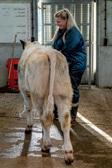





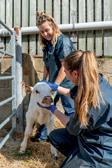


Allied teams: vet tech services, foot trimmers, consultants, and front line, dedicated farm animal veterinary surgeons
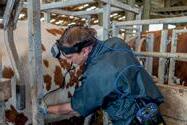








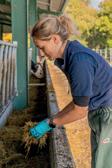


Catering to all livestock needs: commercial, smallholdings and companion farm animals Meeting the needs of our clients with tailored services, health planning, preventative medicine and emergency care 24/7 Efficient. Sustainable. Productive: Our PRO: services focus on health, welfare and productivity on commercial farms; with access to experienced vets with specific qualifications
Our practices can offer: fertility and advanced breeding services, laboratory diagnostics, second opinion care, access to health schemes, export services and more
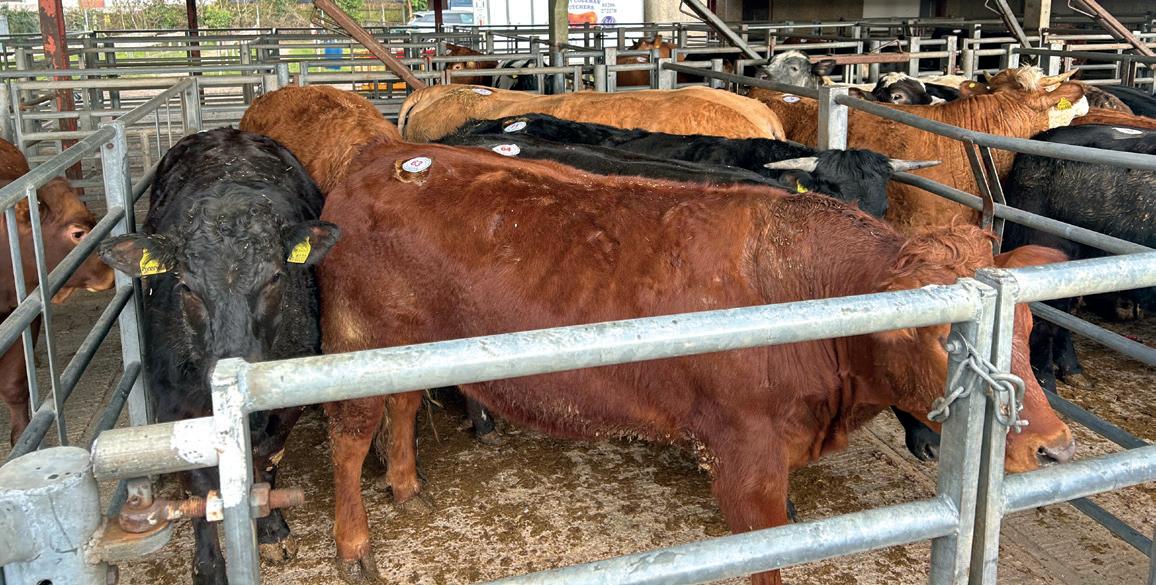
short of stock. Prices are generally reaching 250p/kg to 280p/kg, with old lean cows less.
The store cattle trade, as would be expected with the booming prime cattle trade, is also exceptionally dear; numbers are short, with prime cattle finishers looking to replace stock and competing strongly for all stores available.
The sheep market continued at levels seen the previous month and are now in line with where prices were 12 months ago. It will be interesting to see how this trade develops over the next few months, with old season lambs still around in good numbers. Some resistance has been seen to the heavyweight old season lambs, but export weight lambs were an exceptionally good trade.
The market does need monitoring, and whether we get to the highs of 2024, when old season lambs where often over £200 a head, is unknown, but it is likely to happen in April, if at all.
The trade for cull ewes is also exceptionally dear, as would be expected due to the Ramadan festival, with plenty of ewes over £200 a head and prices well above 12 months ago.
There are generally high numbers of ewes being sold, which is a concern when the British sheep flock is at record low levels. Let’s just hope some confidence returns to the sheep industry and farmers and sheep producers are willing to re-invest in their breeding flock.
As expected at this time of year, the store hogget trade was slightly more difficult, as the season is drawing on and the issue of teeth eruption is becoming more of an issue later into the season. We do need to see changes to the ageing of sheep regulations within the meat trade.
The pig market continues to be firm; while it is down on where it was three months ago, pig producers are still receiving a realistic return.
With the good weather at the end of February/beginning of March, plenty of land work was being done by arable farmers, with spring drilling and applications of fertiliser and spraying being carried out.
Winter crops generally look good. Farmers need some good news with regards to income, given all of the issues that have arisen due to budget announcements on future tax changes, which is causing a great deal of uncertainty for all farmers and is a regular topic of conversation within the livestock market on a Tuesday and indeed throughout the week.
It is somewhat ironic that we now have exceptionally good livestock prices, but there is so much uncertainty giving doubts to farmers continuing. Let us hope that common sense prevails.
Writing this in early March with the sun shining and the ground drying well, it’s looking good for our large outside farm dispersal sale at Intercrop Ltd, Deal, at the end of the week, when a huge crowd, in person and online, is expected.
These are busy times, with both a large livestock market to run week on week alongside the organising that goes into these farm dispersal sales, but at Hobbs Parker Auctioneers we believe that “teamwork makes the dream work”.
Many new customers have travelled to Ashford, with both sheep and cattle, as a result of the bluetongue virus zone eradicating their usual sales paths, and we have been happy to welcome them and assist with their trading. Although it may seem like a long way, there is often transport already heading in this direction, and sharing a load, whether you have 50 or 500 animals to sell, is well worth considering.
So far this year we have sold large numbers of sheep every week, with the trade holding up well in all areas. Although good numbers have been sold, I feel there are still plenty to come, with farmers delayed in finishing their hoggs due to wet weather conditions throughout February. This could result in a rise in numbers of heavy hoggs coming out later, with large numbers of these already available. Clearly, the festival demands at the end of Ramadan, and a late Easter, will strengthen demand, but sensible marketing is important. Cull ewes will dry up in the coming weeks, with most empty ewes now cashed and out of the way, leaving only farmers who can access extra grazing land holding out for another lift in the trade.
I think the current trade for cull ewes is very good and whether they will be any dearer is an unknown, but never say “never”.
The cattle trade is certainly breaking records, with Ashford`s involvement showing, that, with tight national supply and stronger demand, livestock markets are far and away the best mechanism for achieving the best prices.
The finished beef trade continues to rise, and this has had a positive impact on the store cattle trade, with numbers needed to replace well-sold finished cattle. The best of the finished cattle remain over £4 per kilo, with plenty of the others £3.70 to £3.90 per kilo every week and regularly grossing over £2,500 per head.
Store cattle, so far, have topped at £2,260 for two-year-old beef shorthorn steers, with only very few of the real long-term stores selling at under £1,000 per head. Cull cows, also, are a tremendous price, with the demand for feeding cows interacting with the demand for fleshed cows to maximise prices. Beef cows are at 250p to 350p per kilo for the best, with well-finished dairy cows now over 250p per kilo and over £2,000 per head.
We sell pigs fortnightly, which is always somewhat unpredictable as to quality, but the best white pigs (80 to 100kgs) are still selling well for the time of year and at £1.60 to £1.80 per kilo. We are starting to move into the warmer months, when the hog roasts will start, which always has a positive impact on our finished pig trade.
With large amounts of industrialised pork imported at a very low cost and leaving larger margins for retailers at the end of the day, there are fewer quality pigs being produced regionally, which has certainly made it better for those still keeping pigs. Could pigs follow the sheep and cattle trade and take a massive lift?
In addition to our weekly sales, we will conduct a breeding cattle sale on Tuesday
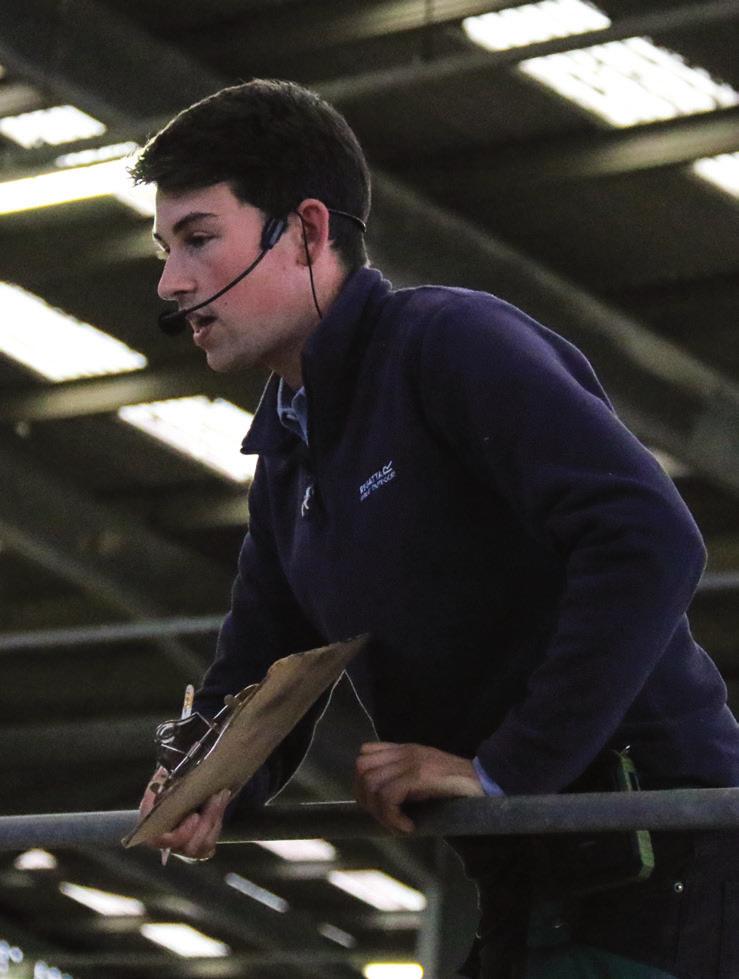
T: 01233 502222
www.hobbsparker.co.uk
22 April to include breeding bulls and females. Our spring fair on Saturday 3 May will include a sale of rare and minority breeds of cattle, sheep, goats and pigs and commercial breeding sheep, to include ewe and lamb couples.
Machinery sales are looking busy this year, with two farm dispersal sales in March. Sales to look out for will be the collective at Ashford Market on Friday 4 April and the new Racecourse Sale, replacing the Headcorn site, to be held at the Charing Racecourse (A20) on Saturday 17 May.
We will also have a stand at Heathfield Show on Saturday 24 May where we will be pleased to welcome clients to share in a hog roast and a selection of beverages. There will be auctioneers, agents and property consultants to talk to.
As the days grow longer, the temperatures rise and the countryside awakens with new life, it can mean only one thingspring has arrived.
And with spring’s arrival comes the muchanticipated return of one of the South East’s favourite events: Hadlow College’s Lambing Weekend, taking place this year on 26 and 27 April.
Each year, more than 10,000 visitors flock to the college to witness the magic of lambing season. From watching playful newborn lambs frolic in the fields to seeing births take place in the lambing sheds, it’s an unforgettable experience for all ages.
But the event isn’t just about the lambs. Guests can also meet the college’s wide variety of animals, including pygmy goats and meerkats, and explore the National Centre for Reptile Welfare, which cares for over 1,000 rescued reptiles and amphibians.
This special weekend is a true celebration of the countryside, bringing together a host of land-based activities while offering visitors the chance to discover more about Hadlow College and its picturesque rural setting.
If you are interested in studying at Hadlow College you can apply now to start in September. We offer a huge range of both further education and higher education courses.
To start the journey to studying at Kent’s only rural and land-based college, visit www.hadlow.ac.uk/courses to see the full range of courses available.
Other highlights of the weekend include:
• Tractor trailer rides (weather permitting)
• Talks and demonstrations by the National Centre for Reptile Welfare
• Birds of prey display
• The Sheep Show
• Archery
• The opportunity to speak with our advice & guidance team and curriculum areas
• Food and drink stalls
• Arts and crafts events
• Fun fair rides and stalls.
Chris Lydon, campus principal for Hadlow College, said: “This is always a fantastic weekend, and it is a real privilege to be able to bring the community into our college to get an idea of what we offer. We provide a huge range of courses across many landbased sectors, and this weekend showcases our first-class facilities and the high calibre
Hadlow College’s lambing weekend returns.
of students we produce. We look forward to welcoming visitors.”
A family ticket, which permits entry for two adults and up to three children, costs £32, an adult ticket (aged 17+) costs £14, and child and concessionary tickets (for anyone over the age of 65 and carers and students with a valid ID) cost £10. Children under the age of two can enter for free.
Once you are on site you can stay for as long as you like, enjoy the rides and stalls and even meet some lovely, new-born lambs!
To learn more and to book tickets, visit www.hadlow.ac.uk/events.
Hadlow College Lambing Weekend runs from 11am to 4pm on Saturday 26 April and Sunday 27 April.
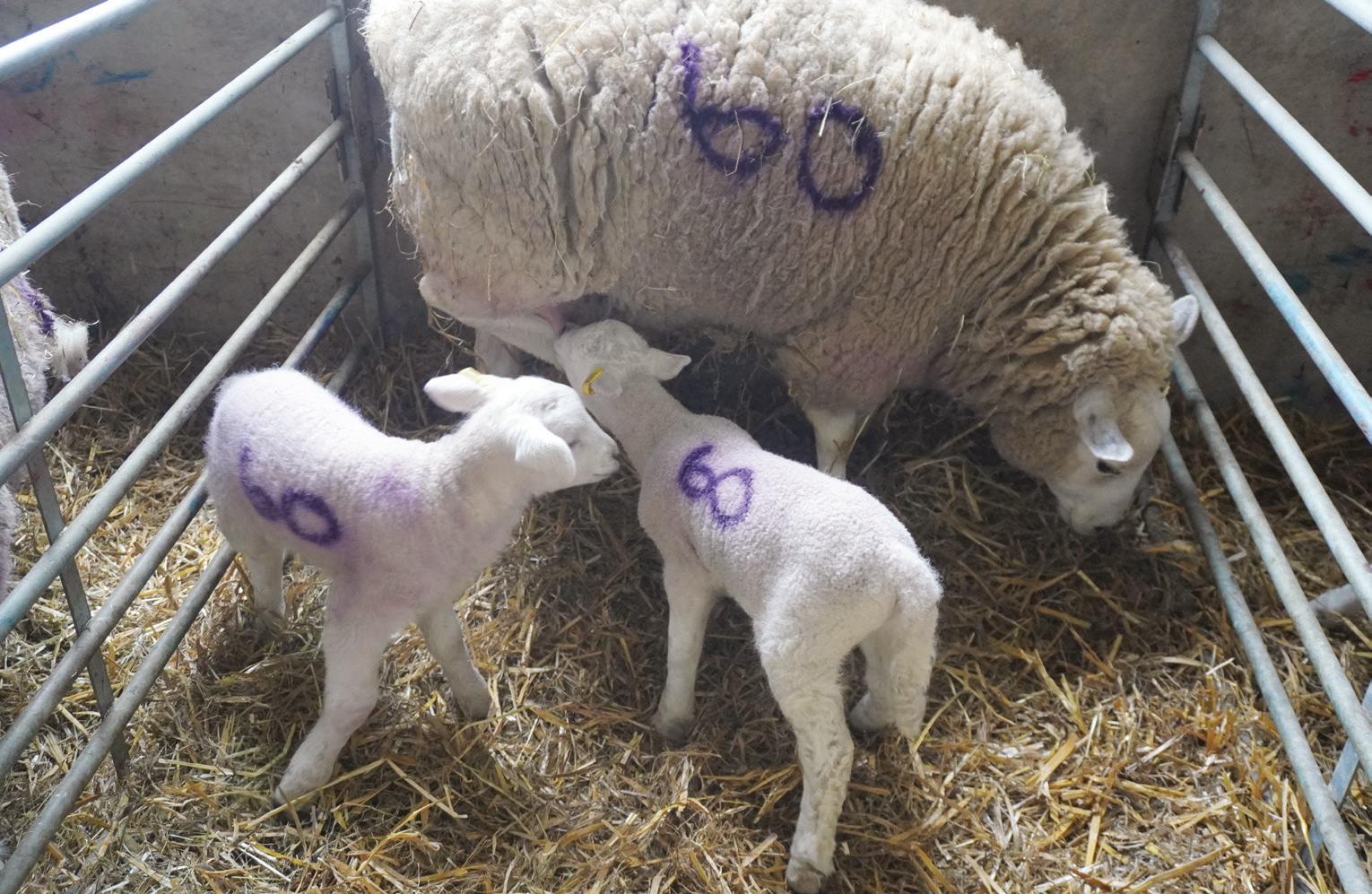


The weather has been glorious this past week, crisp mornings and sunny days. Spring is most definitely here now, with calving, lambing and kidding in full swing. The photo is of four lambs from two Caesarean sections carried out at our practice in tandem. Spring is our busiest time and sleep is sometimes a little lacking when on call, but when this is the result of your work it makes it all worthwhile. Although the birth is the exciting part, it is important to remember the importance of neonatal care in the first two days of life. Below is a brief list of essentials for neonatal care:
• Clear airways, check the newborn is able to pass faeces and there are no malformations.
• Dip navels in an iodine and spirit mix/noBacz Navel.
• Colostrum is important, and all neonates should receive 50ml/kg body weight as soon as possible after birth (ideally within two hours). #Colostrumisgold
– Colostrum provides immunoglobulins (antibodies) and energy and is a laxative.
– Within the first 24 hours, a total of 200ml/kg should be ingested. It may not be sufficient to provide one feed at birth and assume this will do. If the lamb or calf is not drinking of its own accord, then feeding should be repeated in six hours.
• Provide clean, dry, deep bedding and draft free housing. Manage hypothermia appropriately; neonates are prone to hypothermia so care must be taken to ensure they are kept warm, especially when the weather is cold and wet. You want them to put energy into growth and their ability to fight disease, not into just keeping themselves warm.
• Ensure good hygiene at all times.
The list above is basic, but by attention to detail in ensuring these needs are met, calves, lambs and kids get the best possible start which will allow their full potential to be met. Minimising disease and maximising growth early in life is important.
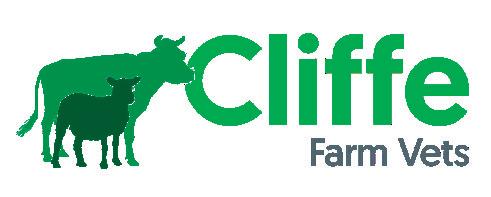





Crystalyx Cattle Booster is research proven to improve forage intake, digestibility and increase DLWG. With a minimum of 2:1 return on investment Crystalyx Cattle Booster increases DLWG by up to 36% and has been shown to optimise animal health, fertility and maximise milk yields. Designed to last up to 3x longer than some other blocks.






What more can I say? The Government has dealt yet another blow to UK farmers. How much more can we take? I think we have talked politics to death at the dinner table.
As of 11 March, the Sustainable Farming Incentive (SFI) will no longer continue in its existing form. Existing agreements will run until the end of term, but no new applications will be issued. If a farmer has not signed an agreement, they will not be eligible for any payments going forward. Allegedly there will be a revised SFI scheme in due course, but more details will follow after a government spending review later in the year. I will await the news with bated breath.
So, while the scrapping of SFI is absolutely appalling, I believe that the latest piece of legislation to have been published is the ‘planning reform bill’. This will give development corporations and Natural England the right to compulsorily purchase your land and pay you the face value of the land, excluding any hope value.
Labour is now set to fast-track laboratory “Frankenstein” meat to the market. Allegedly this will be more environmentally friendly and enable the UK to reduce its livestock numbers by up to 25%.
Does anyone need or want farming in the UK? The public (despite many farmers’ best attempts) still has very little concept of where or how their food is produced or indeed any idea of the amount of time, care and attention to detail that goes into producing food for their tables.
The mowers have now been dusted off and serviced and are all ready for action when the grass is ready. Spring drilling has been completed and, apart from the maize, all the farm has been drilled.
Staffing has been a slight issue this month and we have been running short. Thank goodness for Monty being on a gap year and filling the space. At one point this month we were three staff down, but since Richard and Monty have been feeding the cows they have never milked so well. Every cloud, and all that! Let’s hope he doesn’t read this article otherwise he will be asking for a pay rise.
Fergus is about to be rather busy with silage and a new baby imminent. Exciting times ahead.
Zara was crowned National Pony Club champion at the Winter Championships in the intermediate and open dressage. A very long weekend, but well deserved. The


eventing season is now under way and with GCSEs round the corner life is becoming a juggling act. I’m sure she will smash it.
As a family we have decided to let Teddy run for the position of prime minister for the following reasons… At eight years old we feel that he can’t do a worse job than the present incumbent; he has a sound knowledge of farming and believes in common sense; he can also do basic addition and subtraction, which is more than Rachel in accounts appears to be able to do. He also doesn’t have a current CV so is unable to lie about previous employment. Until next time, stay safe.
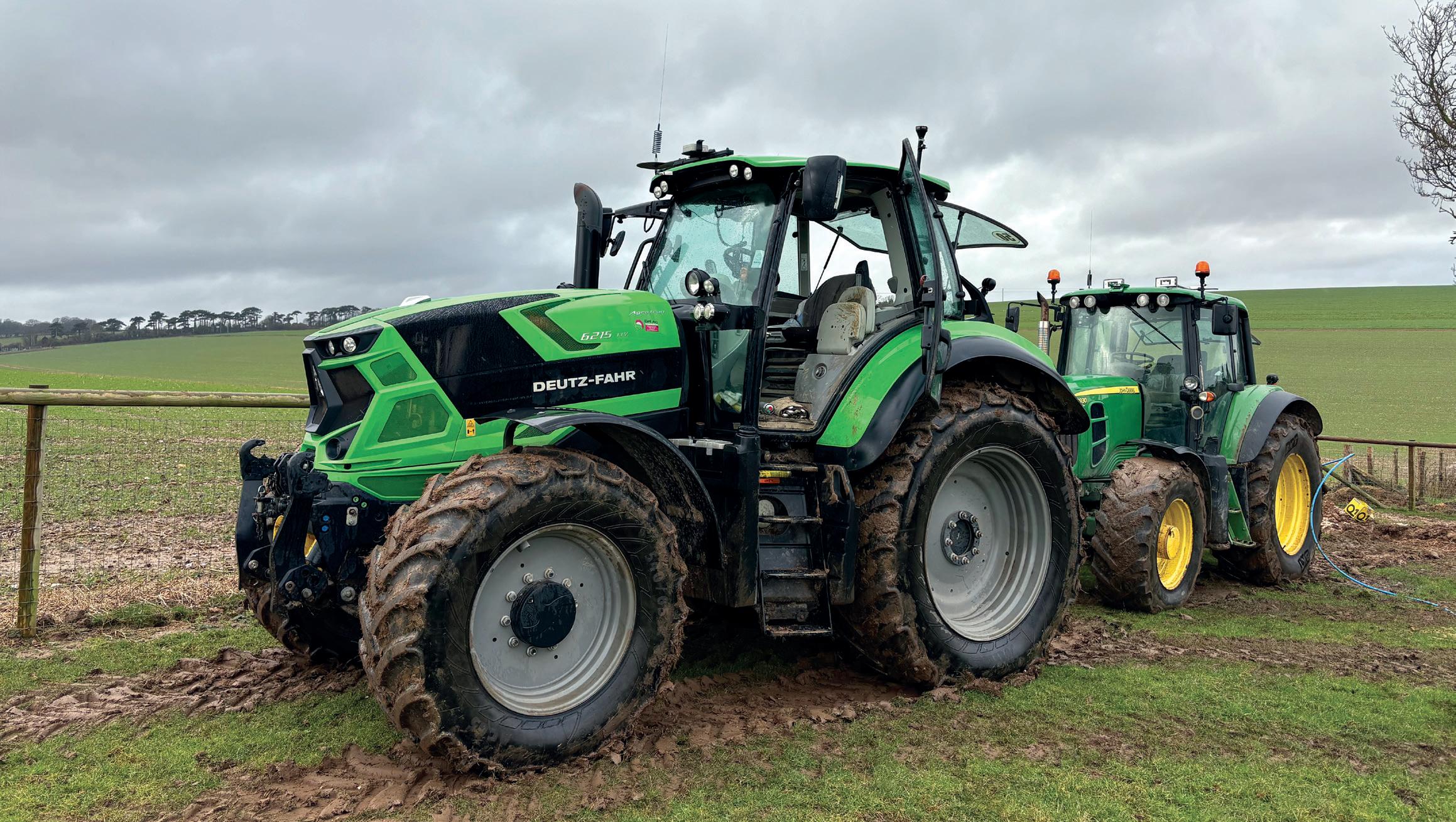
By Sharminda Lockwood BVetMed CertAVP.
One of the biggest challenges faced by livestock farmers is the presence of parasites. Parasites have had a negative impact on animal health, productivity and profitability for centuries. There are records of laws to control sheep scab as far back as 949, and even after multiple attempts to eradicate the mite, it is still having a negative impact on sheep welfare and causing huge economic losses.
Of post mortem submissions made to the GB veterinary diagnostic network, sheep parasitic gastroenteritis (PGE), a heavy worm burden, is the most diagnosed cause of death in sheep. In cattle, cryptosporidiosis, a parasitic protozoon, is the most common cause of death in pre-weaned calves.
Controlling parasites remains a major challenge for both sheep and cattle farmers, but with a proactive parasite control plan their impact can be minimised.
The initial challenge and first step to formulating a parasite control plan on farm is to know what parasites are present. Parasites affecting livestock are broadly categorised into internal and external parasites. Internal parasites include gastrointestinal nematodes (worms), liver fluke, lung worm, coccidiosis and cryptosporidium. External parasites include lice, mange mites, ticks and flies. Knowing the parasites present and how to monitor them, for example by using faecal egg counts for worms, is essential.
The second challenge is keeping parasites you don’t have off your farm. Animal movements are an easy way to spread parasites, so a control plan must include strategies to keep parasites away. This is achieved by having strict biosecurity, buying in and quarantine protocols in place.
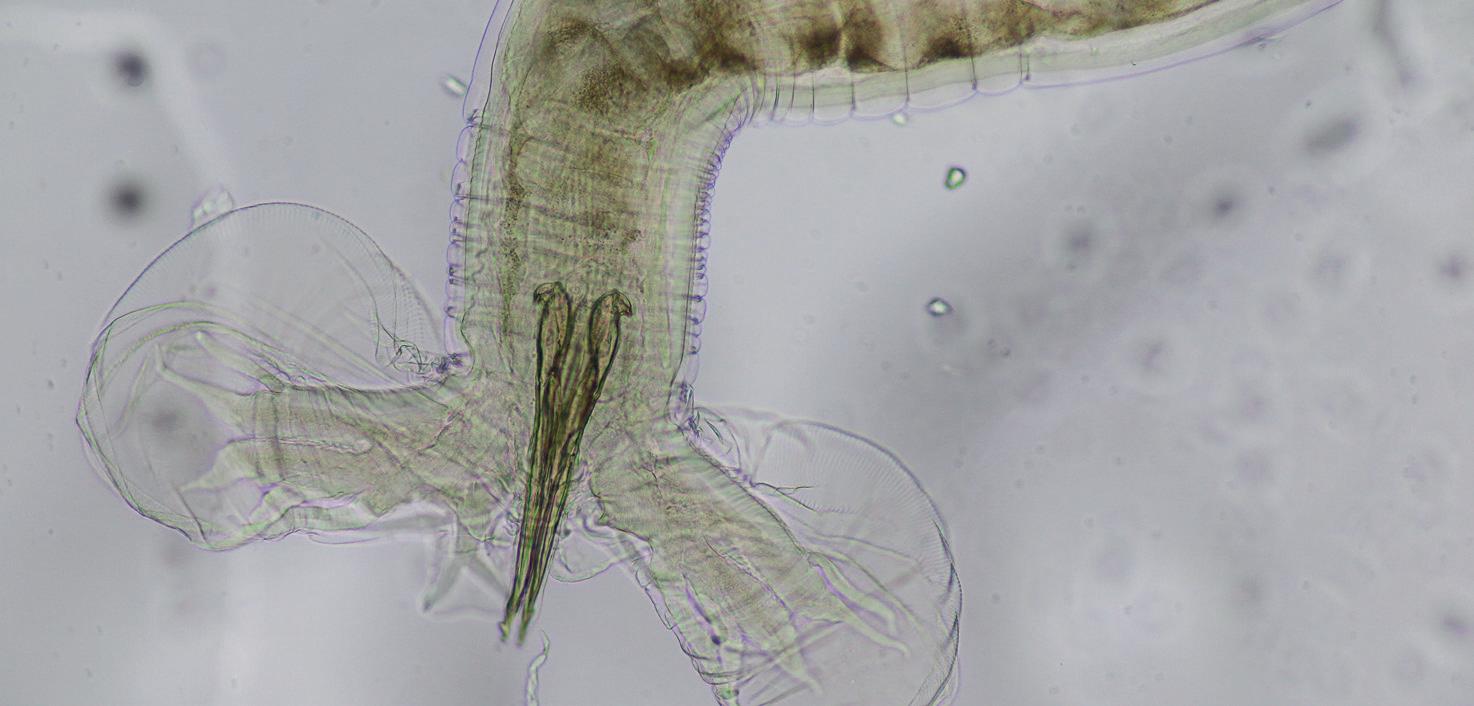
The most pressing challenge to parasite control is the growing resistance of internal parasites to anthelmintic drugs. Overuse and misuse of wormers has led to anthelmintic resistance (AR), which is recognised as a growing threat to both the sheep and cattle industry.
Over 80% of sheep farms in the UK have resistance to at least one or more classes of wormers. With only five classes of wormers available, it is essential that AR is not ignored, and plans include strategies to monitor for and minimise AR on farm. Resistance is not limited to worms; resistance of sheep scab mites to injectable treatments and resistance of fluke to triclabendazole is also seen in the UK.
Climate change and changing parasite patterns are further challenges, particularly here in the South East. Fewer colder spells are leading to a change in worm patterns in livestock. For example, with the recent mild winter we have seen unusually high worm counts in store lambs over the past few months and the season for haemonchus seems to be extending into late autumn.
Knowing the parasite patterns on your farm and keeping up to date with parasite forecasts
is essential to managing risk through strategic grazing and timing of treatments.
In summary, parasite control on UK farms is becoming increasingly complex, but by embracing integrated approaches to control and staying informed about best practices, the challenges can be mitigated. SCOPS (Sustainable Control of Parasite in Sheep) and COWS (Control of Worms Sustainably) are industry led groups working to help farmers practise sustainable parasite control and slow the incidence of AR and are great resources for further information.
“We’re still using the same amount of fuel per hour despite having that extra [25%] throughput. It all adds up to make harvest a more efficient operation.”
AT Bone and Sons Ltd., near Hertford, Hertfordshire, LEXION 8700 x 3, Harvest 2024.

Write your harvest success story together with CLAAS in 2025. Speak to your local dealer today to invest in more than a machine.
Scan to watch AT Bone’s success story from Harvest 2024 or visit claas.co.uk

With more than half a century of farming experience and 20,000 hectares of land currently under its expert management, Sentry is one of the foremost names in agriculture in the South East.
Its flexible approach to farm management, which includes contract farming as well as a range of different management options, continues to win the company new business on farms in Lincolnshire, Leicestershire, East Anglia and across the whole of the country south of the M4.
“Farmers and landowners need varying amounts of support, and we are committed to offering the help they need, whether that’s full management, a contract farming agreement or anything in between,” explained Alec Smith, director of business solutions for the company.
Sentry also offers consultancy to farmers and landowners who are not in a more formal management agreement, a service that is growing
in tandem with the company’s reputation for sound, bottom-line focused, business advice.
And the bottom line is the most important thing, as Andrew Martin, Sentry’s senior rural business advisor stressed. “We know farmers need to maximise their return and that’s our sole focus. We offer potential new clients a free discussion on the options available to them. Once they engage with us and we produce a plan for their farm, we guarantee that as long as they follow our guidance they will make more additional money than they pay in fees.”
It's a bold promise, but one that’s backed by 53 years of experience gained since US -based Sentry Insurance bought some land and set up a company to manage it. That farm management company became a public limited company that was then the subject of a management buyout in 1999.
“We guarantee that as long as they follow our guidance they will make more additional money than they pay in fees.”
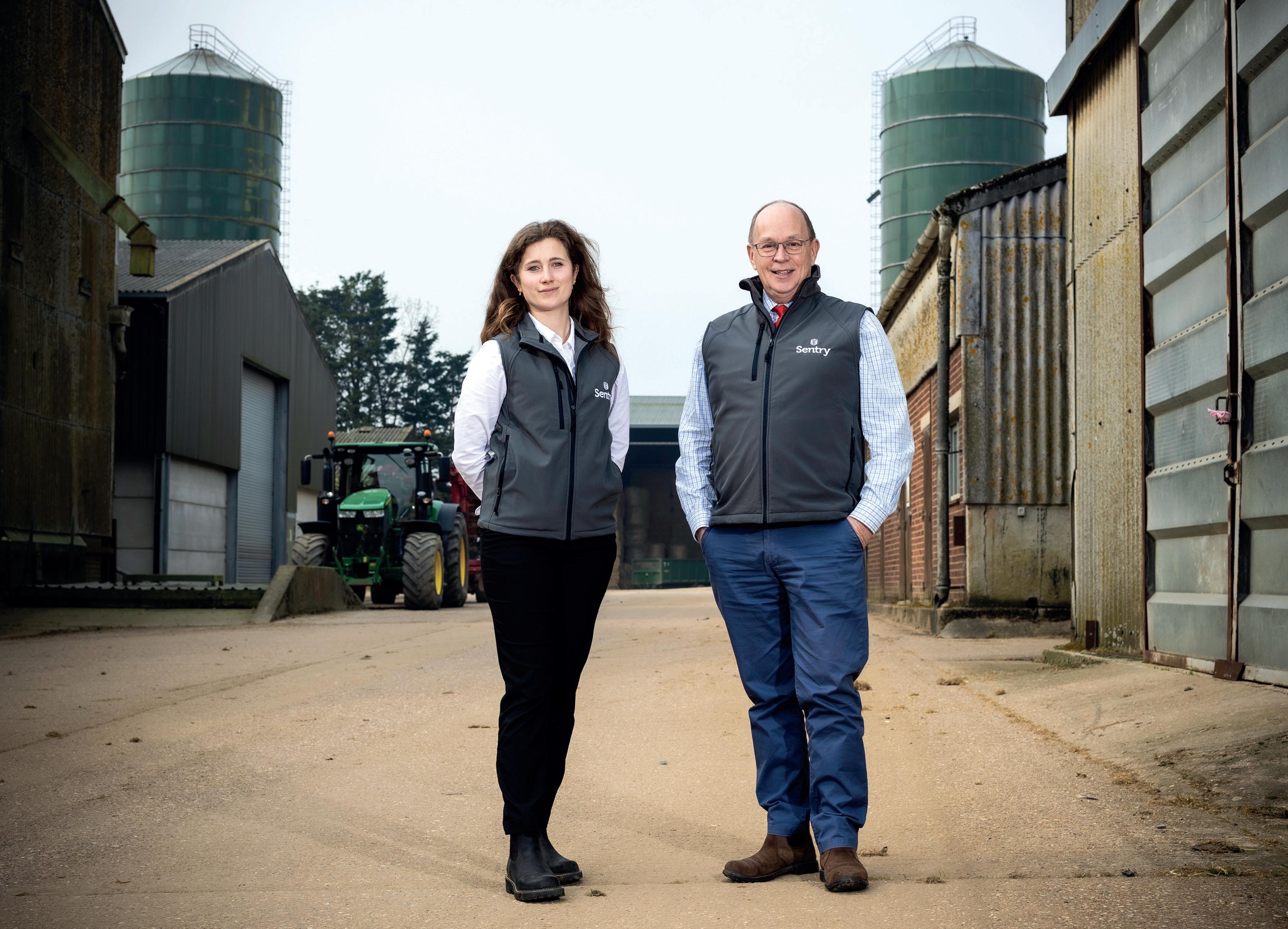


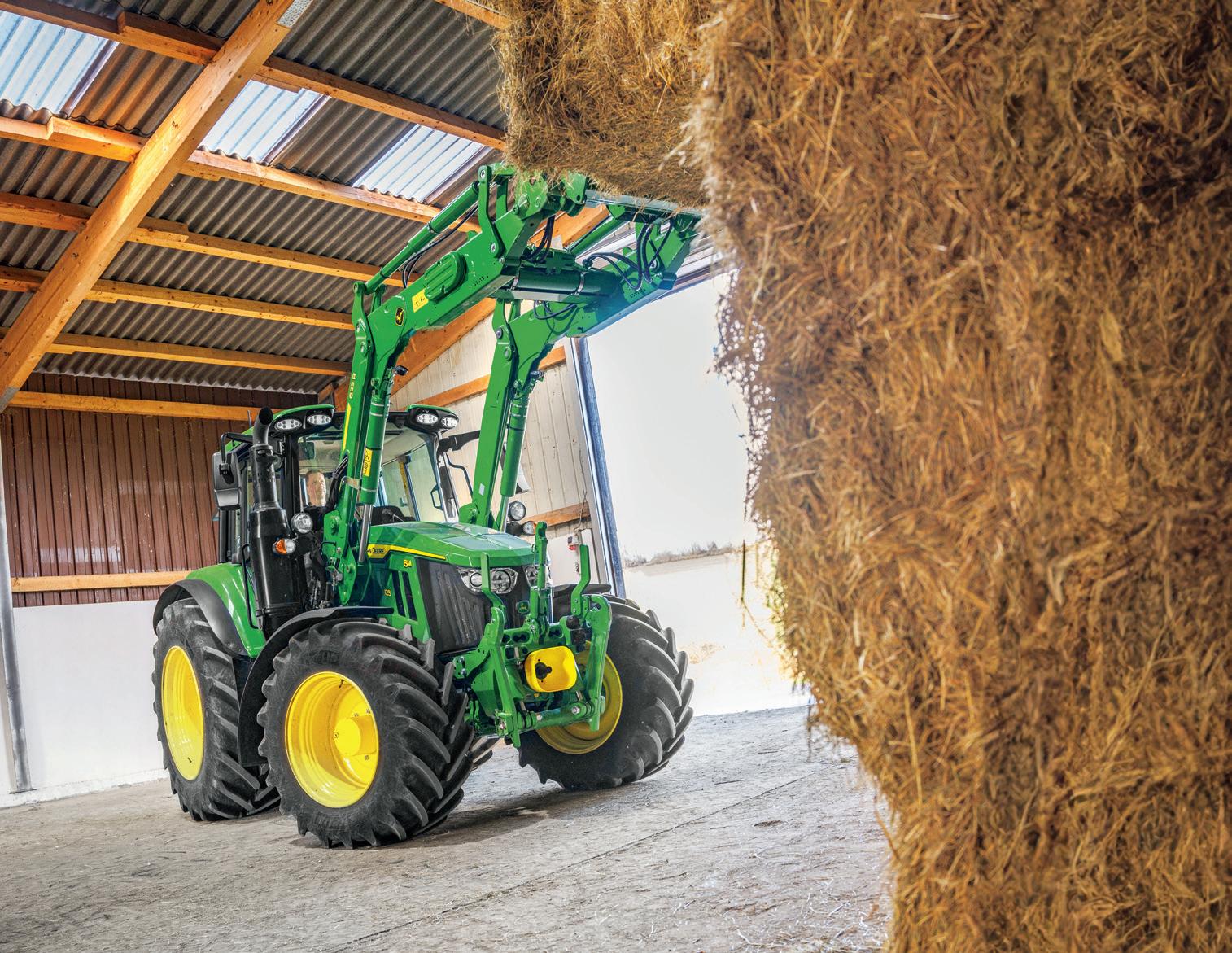
Discover the new 6M Series: 17 high-performance models, five wheelbases, one that’s perfect for what you do. From the nimble 6M 95 to the mighty 6M 250, these powerful tractors are cost-effective to own, supremely easy to operate from the get-go and up to 50 km/h fast. Ready to boost your productivity? Ask your dealer for a demo today!


All managers now have a share in the success of the business, which Alec said allowed profitable ideas to spread quickly throughout the company.
Now employee-owned and boasting a flat management structure, Sentry no longer owns any land of its own but uses its skills to gain the best returns from 13,000 hectares of contract farmed land and a further 7,000 hectares of directly managed land which it farms on behalf of the owners.
Sentry is headed up by managing director Paul Christian, business solutions director Alec Smith and finance director Rebecca Arkley, while the employees own 50% of the company’s share capital, giving them a real say in the way it operates.
The way in which farms are managed is also almost infinitely variable. While the ‘standard’ contract farming format is for Sentry to provide a manager, workforce and machinery, leaving the farm owner to supply the land and the inputs, there is considerable flexibility built into the service.
The company, which looks after sites ranging from a couple of fields to landed estates, also has some farm business

tenancies. With no two deals exactly the same, Sentry spends a great deal of time talking to landowners about exactly what they want to achieve, how much involvement they need and what level of risk they are looking for in order to come up with a bespoke deal that works for them.
“Our managers’ skills also go beyond the farmyard to wider estate management,” said Alec. “It means that we can also support landowners in areas such as woodland
management, commercial activities and dealing with rental and commercial properties. It allows us to offer a fully integrated package.”
The good news for farmers and landowners in the South East looking for Sentry’s expert consultancy is that the company is about to open a new base that will be home to a team offering support across Kent, Sussex, Surrey, Hampshire and the rest of the South East.
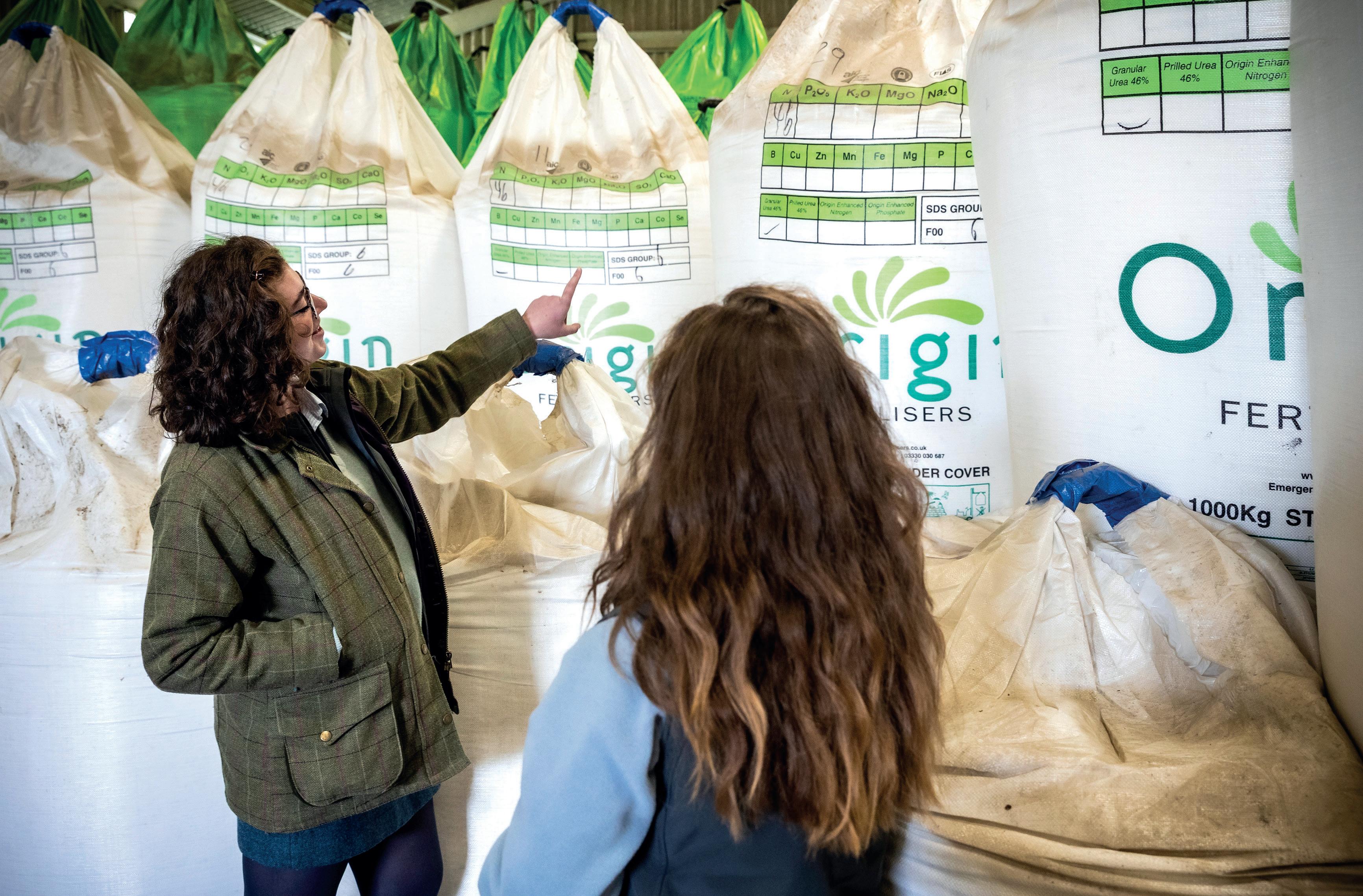
www.kws-uk.com
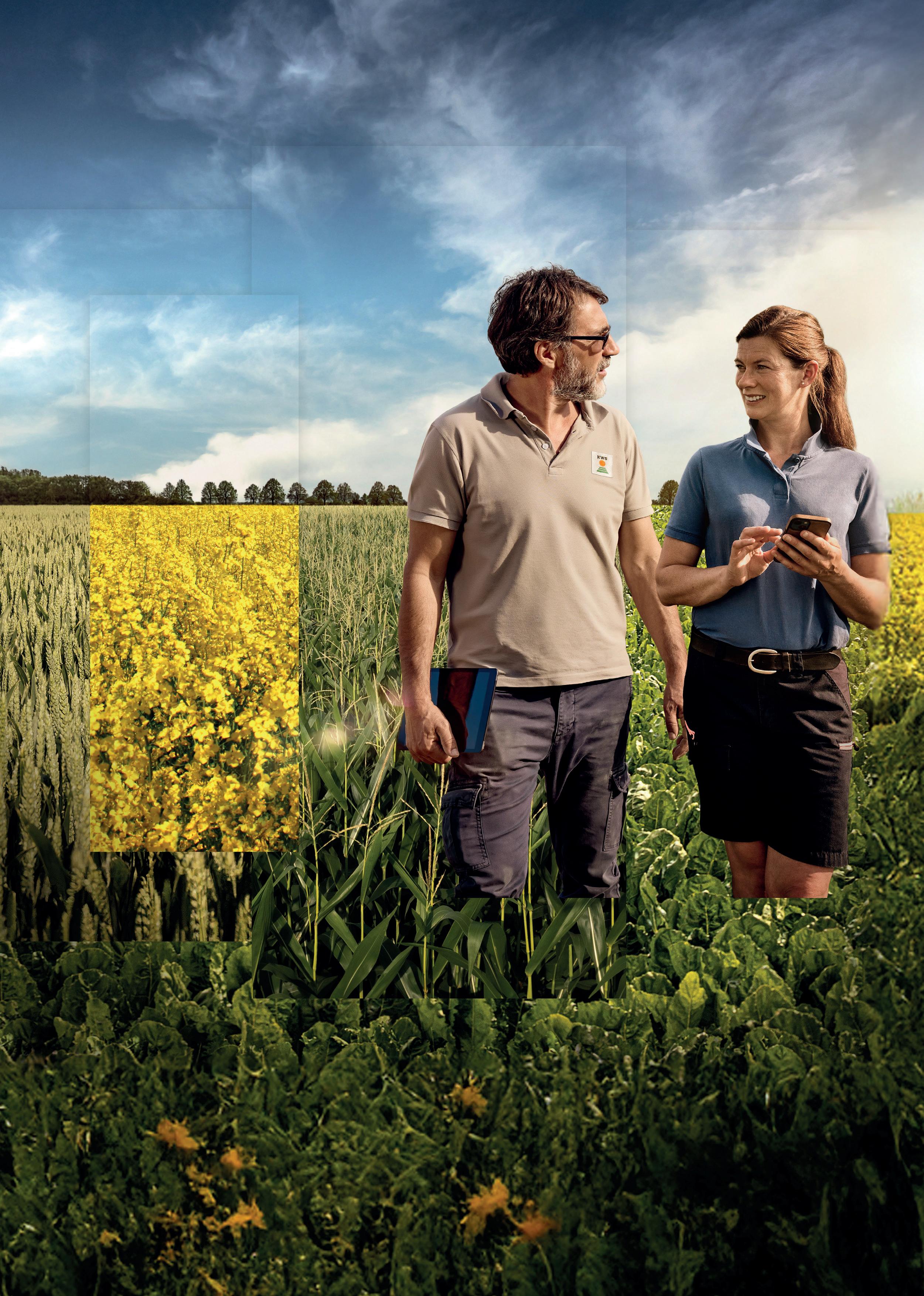


Tom already has three sustainable farming incentive (SFI) agreements in place
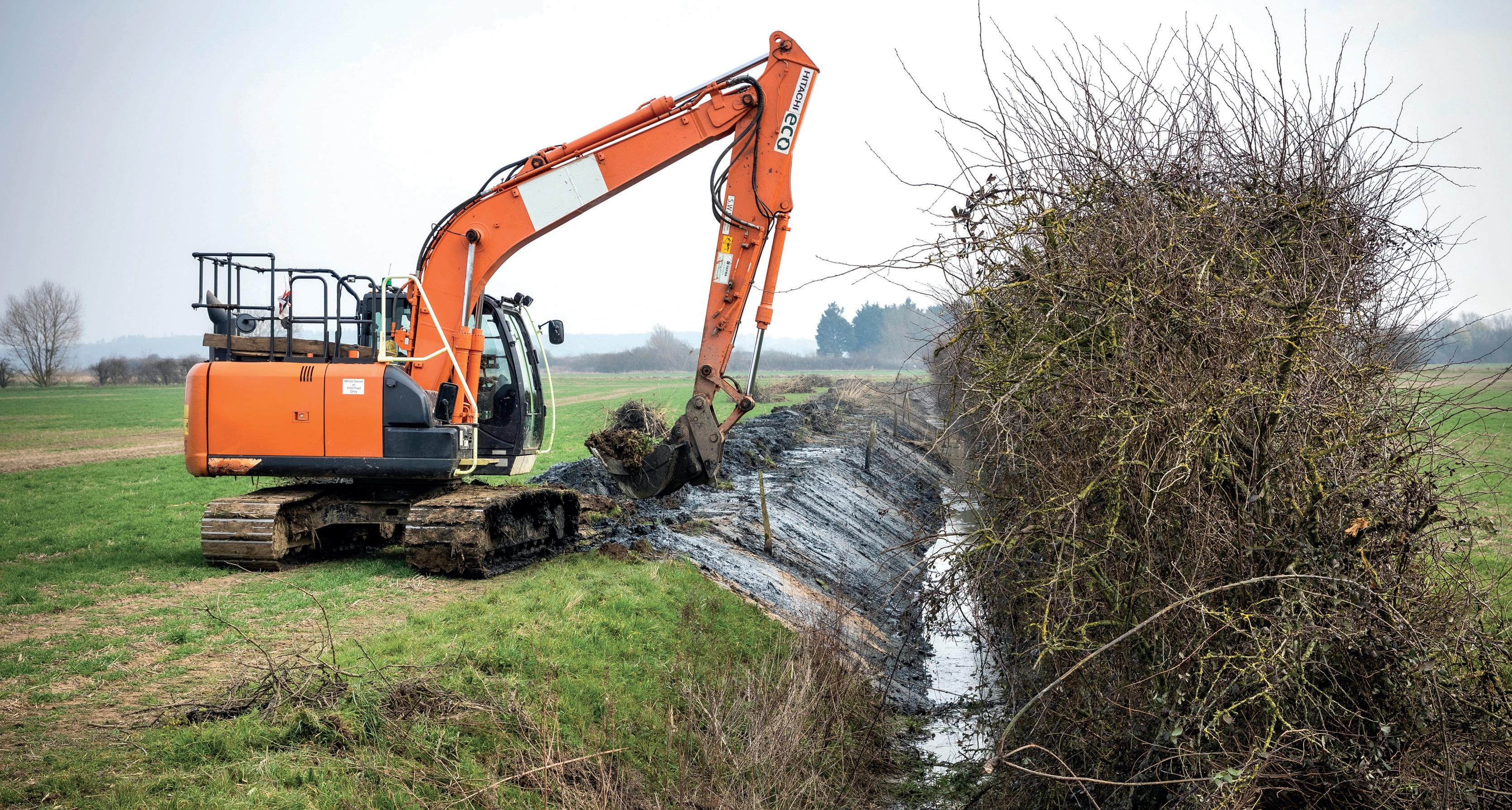
Headed up by Andrew and supported by assistant rural business advisor Lauren Morris, the team will be offering dedicated support to its farm managers in the area as well as consultancy services to other farmers and landowners who are not currently part of the Sentry family.
The office, set to open in the next month or so at The Old Granary, Hanover Mill, Mersham, near Ashford, will provide more local support for Sentry managers like Tom Ashby, who runs R Sternberg Farms, based at Frenchay Farm, just outside Tenterden in Kent.
“Instead of contacting the Sentry head office at Claydon in Suffolk I will have support on my doorstep if I need it,” said Tom, who hosted this South East Farmer interview.
At Frenchay Farm, Tom looks after 1,050 hectares of arable land within a much larger estate that includes woodland and grass. He grows winter wheat and barley, linseed, beans, oilseed rape and flax, expanding the rotation to improve grassweed control.
“It’s a wet farm, so land drains and drainage are important,” said Tom, who has been focusing on clearing and reinstating drainage ditches using the estate’s 13-tonne digger and a recently bought mole plough.
Tom already has three sustainable farming incentive (SFI) agreements in place and was looking to add a fourth, although that was before DEFRA’s shock withdrawal of the scheme was announced in early March.
His options include companion planting, unharvested cereal headlands, grass margins, winter bird food mix and cover cropping.
“I have no bare land over the winter and bring in sheep to graze the land before drilling,” he added.
With a Countryside Stewardship scheme also in place at Frenchay Farm, Tom said the business was bringing in “close to the level of support we used to receive under BPS”.
Alec pointed out that recent calculations showed that, across all its farms, Sentry’s use of SFI options had brought in an average
additional income of £205 per hectare “without taking much land out of production”. He said the figure was close to the average BPS payment and showed what focusing on the right SFI options could achieve, given the right advice.
That level of advice will be at the heart of the support offered by the new Ashford-based consultancy team, available to all, although SFI guidance to anyone not already signed up may now need to await the revised scheme.
“There is a lot that farmers are already doing that they could be getting paid for under SFI,” said Andrew. “As an example, if you routinely don’t apply insecticide to spring barley, you can sign up to that option and get paid £45 per hectare. Lots of farmers are already benefiting from variable rate fertiliser applications simply because it saves on input costs; they could be paid an additional £27 per hectare for something they are already doing.
“These are valuable options to look out for in any new SFI offering. The soon to be re-released capital grant scheme we hope will also bring more opportunities to farmers.”



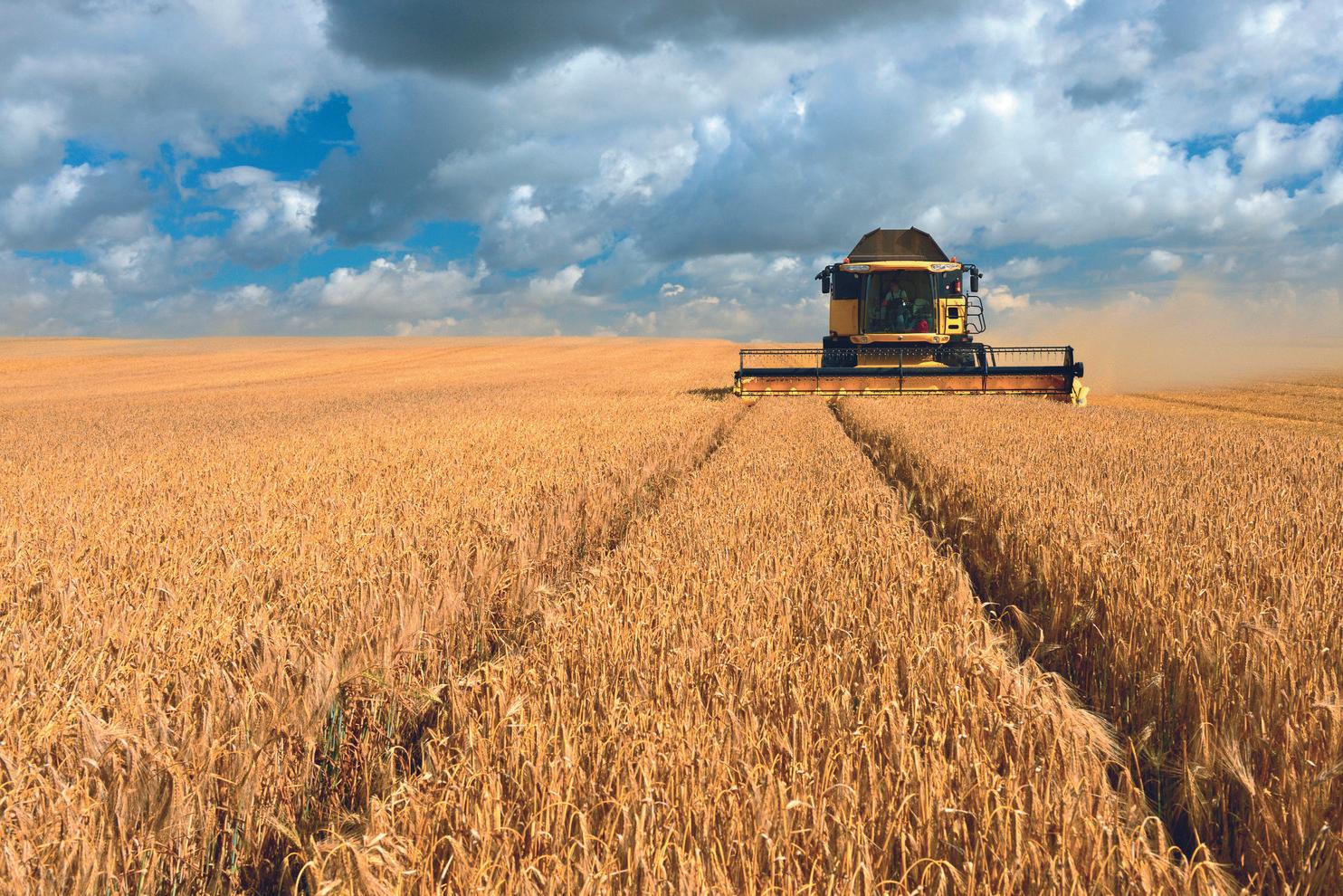
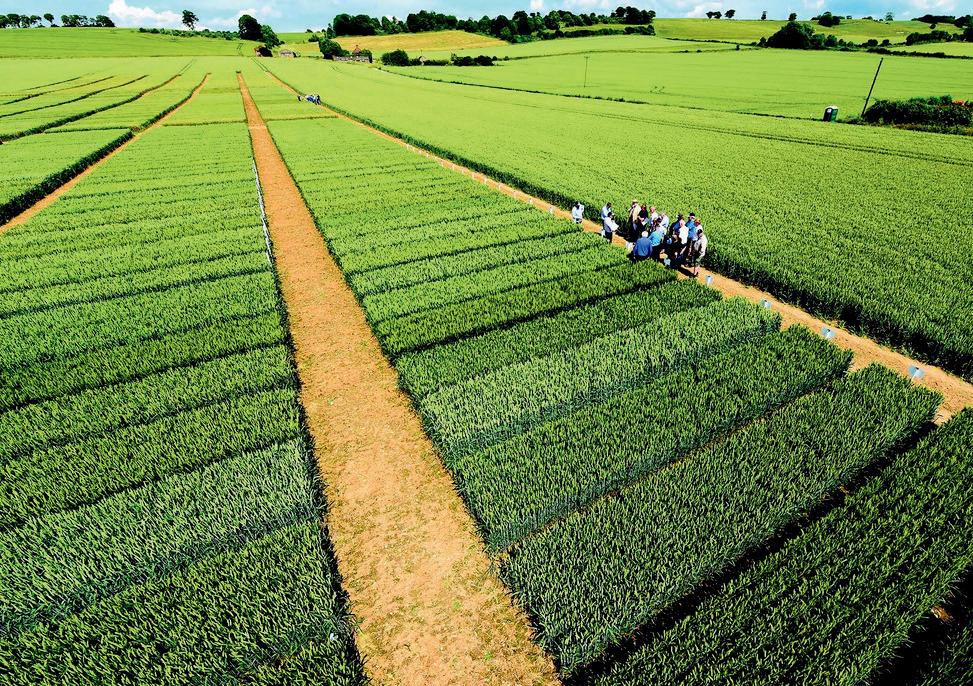

We have unequalled Research and Development capabilities, designed to empower agronomists and growers with the most comprehensive information, production technology and complementary expertise to farm successfully now and in the future.
Innovative Arable Research
Precision Farming
Cross Compliance
Crop Marketing Solutions




Although we take the exceptional output of the ZA-TS range of fertiliser spreaders for granted, it’s the accuracy that counts more and the unique AutoTS gives you at least 17% more yield around the hedge side than any other boundary spreading systems available – but don’t take our word for it; take a look at the independent Innovation Farm trials results.
All this means that you maximise your cropped area to the full and you get more produce in the barn!
Amazone - from Stubble to Harvest.
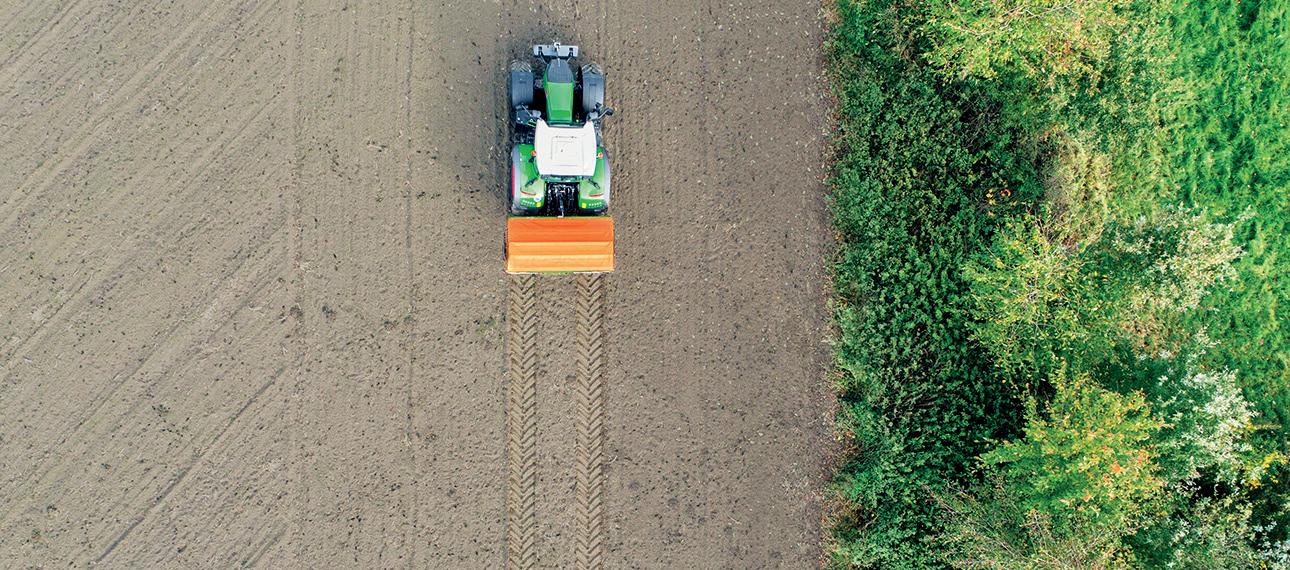
The AutoTS border spreading system delivers proven precision with up to 17% additional yield around the field boundary.
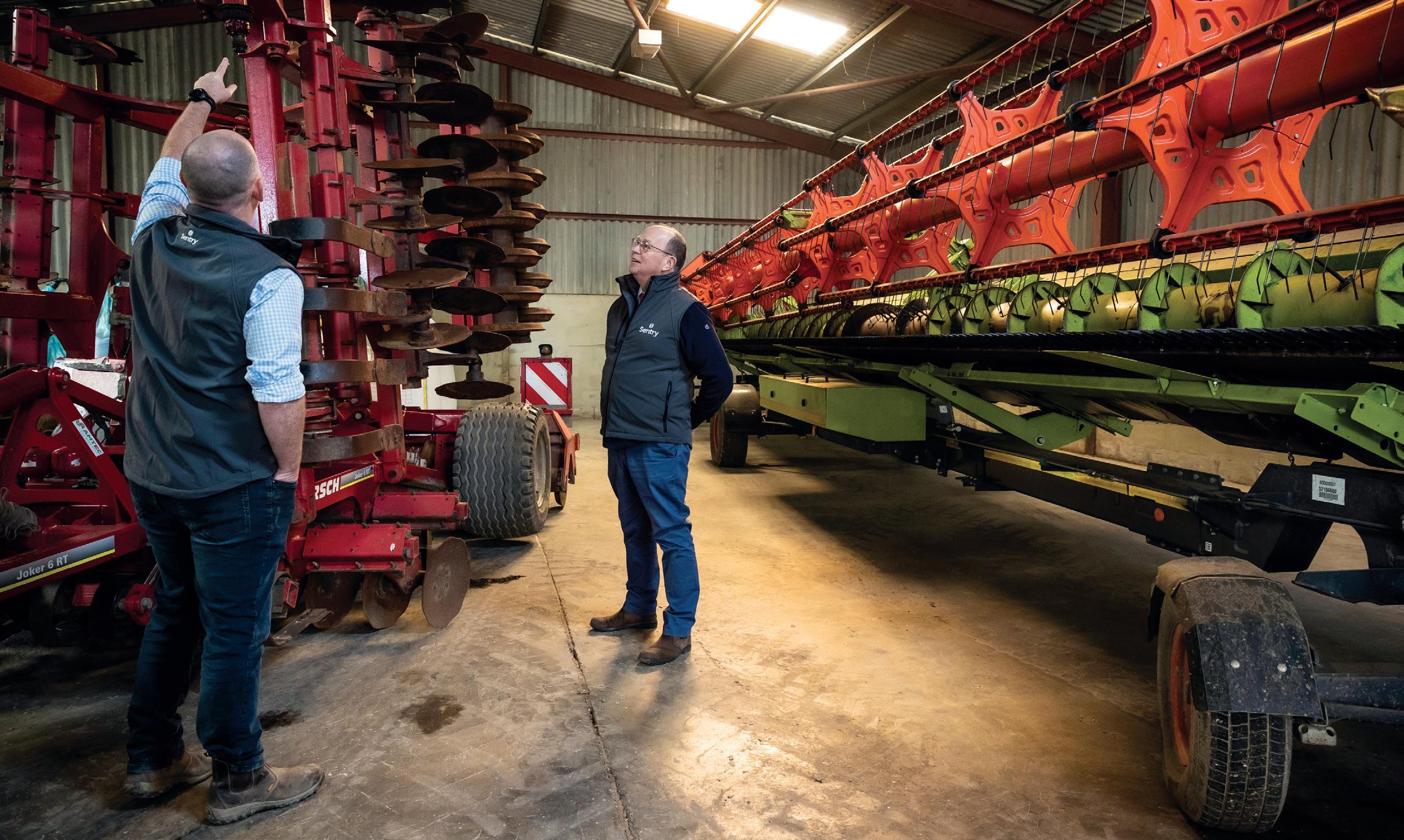
One area where farmers already on the SFI scheme can look to Andrew and Lauren for advice is on planning, monitoring and submitting the right evidence to ensure they are paid at the end of the process. “The Rural Payments Agency (RPA) will require more than just a signature on a form but will be looking for invoices, photographs and the like,” said Andrew. “We are already seeing a swift increase in inspections, so correct evidence is vital.”
Sentry has a dedicated portal that will help farmers upload the right evidence to the agency and has first-hand experience of the process. “We have been through RPA inspections on some of our farms and passed with flying colours,” said Alec.
The consultancy side of the business now establishing a permanent presence in the South East has grown steadily from just three people in 2020 to 14 now, with Andrew and Lauren two of the more recent recruits. Sentry also partners with Agrovista to obtain specific agronomy advice, although Tom, who is BASIS-qualified, tends to do his own crop walking.

Up until 2021, Andrew was farming his own 1,000 acres on Romney
Sentry has a dedicated portal that will help farmers upload the right evidence to the agency and has first-hand experience of the process
Marsh and operating a contracting business that looked after a further 3,500 acres of Kent farmland. He then began working as a consultant and has been with Sentry since the new year.
“I have a practical farming background and ambition to help people find their way through the complexity of government support schemes,” he said.
“With schemes like Countryside Stewardship, together with the old and the upcoming SFI, where options can be layered, farmers need to be diligent about meeting the requirements. It’s easy to get it wrong and fall outside the parameters. At the same time, land values are higher here in the South East and farmers are having to work hard to keep their businesses profitable.
“We can offer a full farm business review that will help farmers get their business structure right and help them make the right choices – and get the paperwork right – when it comes to government support schemes.”
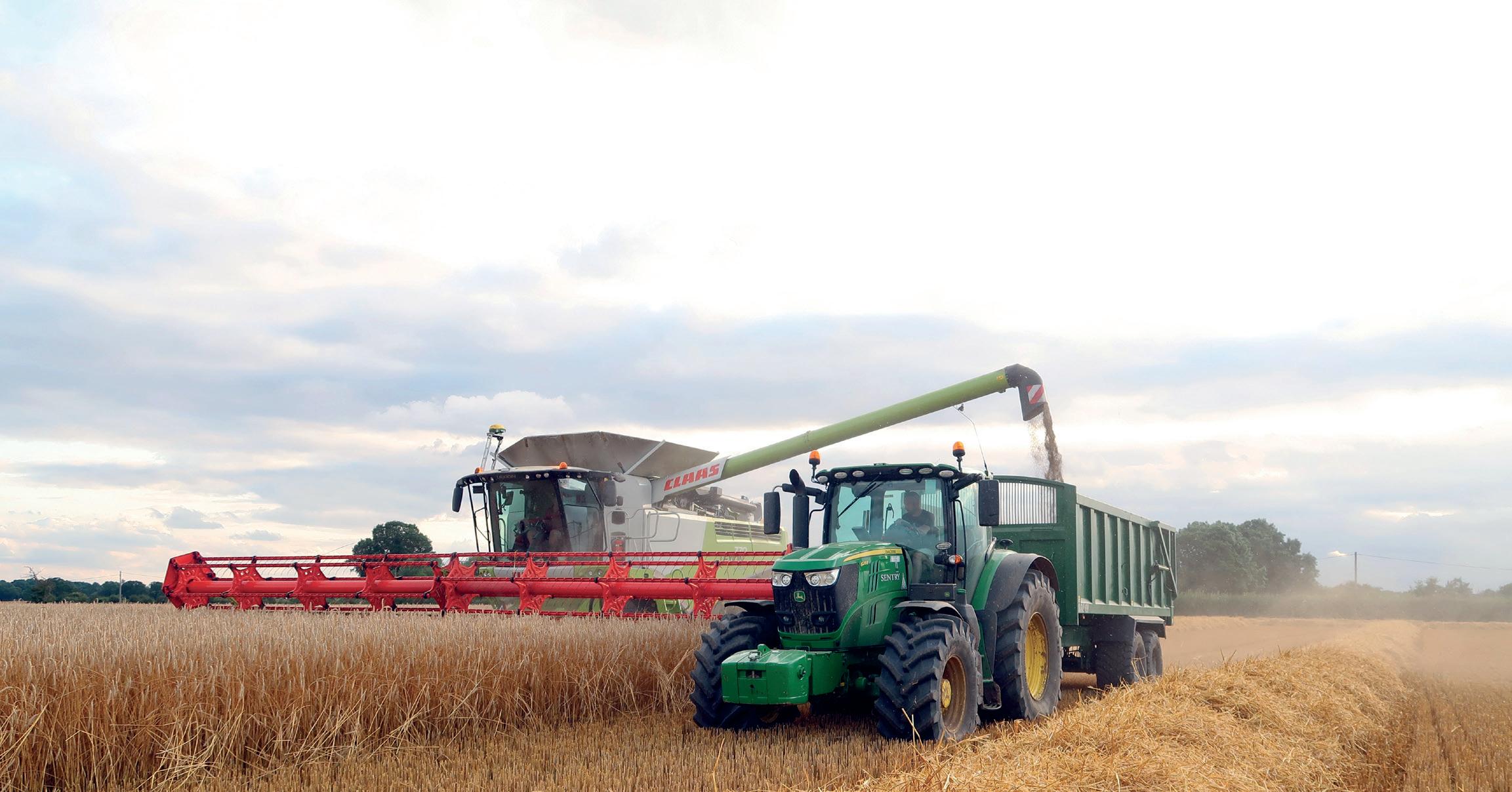
•
• Yield performance consistently equal to or better than ammonium nitrate across a wide range of crops and soil types1
• Designed to protect yield, achieve quality and save money
• Minimises N losses from ammonia volatilisation2
• Available as straight nitrogen, NS and NK
• Does not have the handling requirements and storage challenges of AN
• OEN also reduces nitrate leaching3, has a positive impact on soil bacteria4 and is available in a range of NPK grades
• Can be applied after 1st April under Red Tractor Assurance scheme


4
3
2


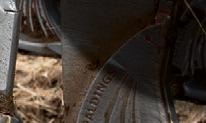


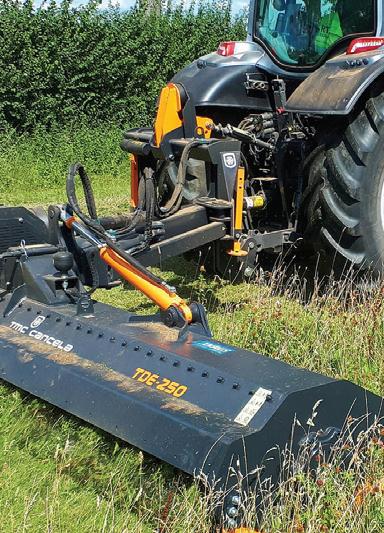



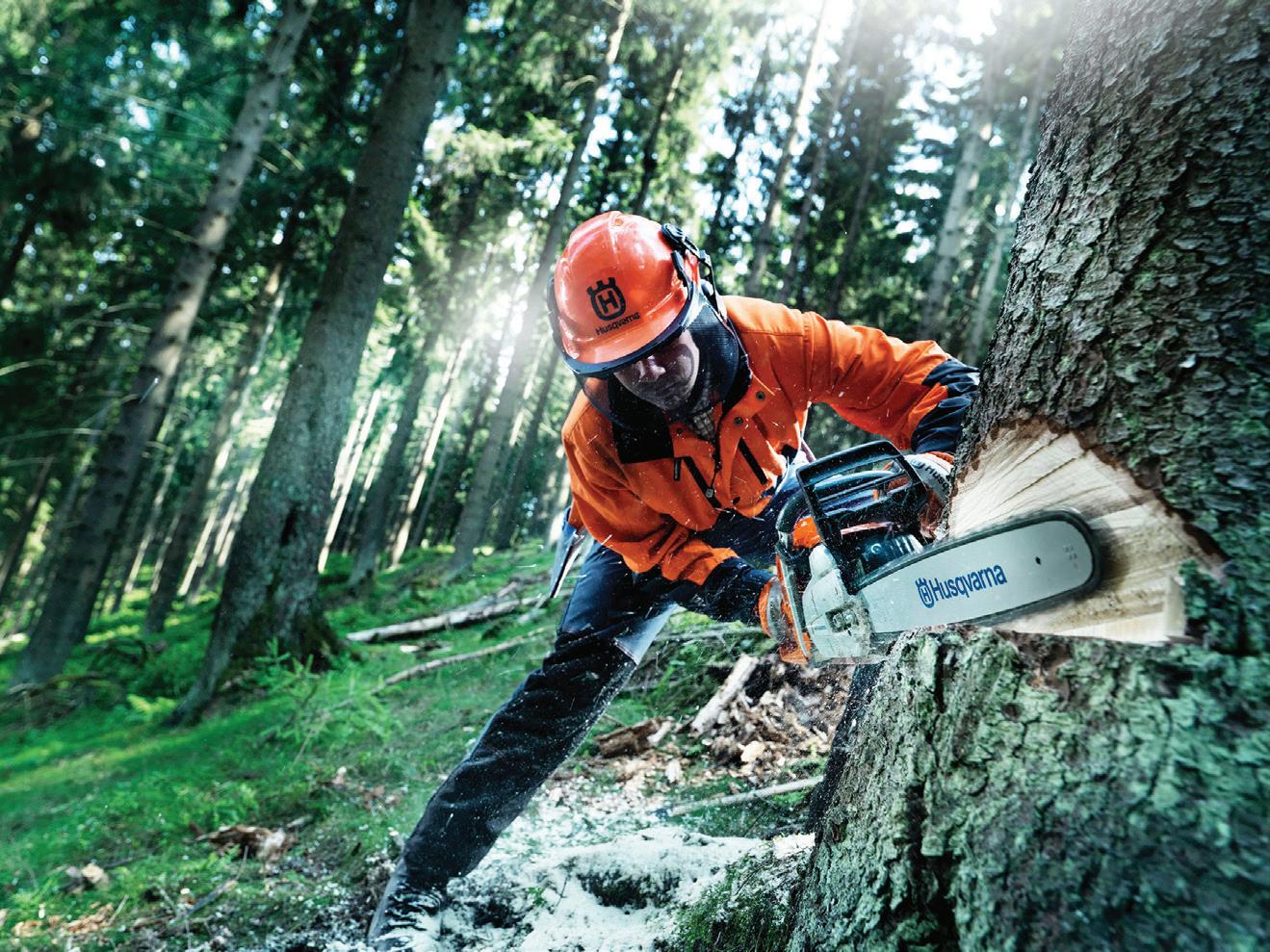







<<
Assisting Andrew in this exciting new venture, Lauren also comes from a farming background, although she took a few years away from agriculture to complete a biology degree.
Her family runs a farm contracting business at Broad Oak Brede in East Sussex and she gained valuable experience working on a dairy farm. “I am keen to make sure farmers collate the right evidence in support of government schemes and then submit it on time,” she commented.
With a variety of reasons prompting farmers and landowners to invite in expert help from Sentry to run, or assist with running, their businesses, Alec pointed out that what he called “the Clarkson effect” had led to an increase in people who had never farmed before buying land and then looking for help in using it productively when they realised the skills required.
“In other cases, we help people who want to retire or who are moving on to do something different or who just want to make the most of our expertise and the economies of scale that we can bring to bear, given the scale of our operation,” he went on.
Andrew pointed out the huge opportunities offered by the Garden of England and across the South East in general. “There is massively varied agriculture in this part of the world,” he said.
“We have challenging land here, but we also have great wheatgrowing land along with ideal conditions for fruit, hops, vines and livestock. It’s a real mixture and offers great potential. Sentry has the skills and the knowledge to take advantage of those opportunities, either by managing the land or by providing consultancy.
“One of our other advantages is that we have a large number of
“We have challenging land here, but we also have great wheat-growing land along with ideal conditions for fruit, hops, vines and livestock. It’s a real mixture and offers great potential"
farm managers within the 65-strong Sentry team, which means we can draw on a huge pool of experience and skill. If there’s an issue, someone, somewhere in our team will have come across it before and will be able to suggest an answer.”
While Tom has been at Frenchay Farm for three years, Sentry was first invited in by R Sternberg Farms in 2019, when the family farm was employing a manager.
Sentry initially provided advice to the manager, but later the company was asked to play more of a direct role in the estate and began a contract farming operation, providing labour and machinery.
“Strategic decisions related to the estate on issues such as SFI, grain sales, rotations, machinery changes, staffing, and health and safety are taken between family directors and Sentry at quarterly meetings,” Tom explained.
The economies of scale that Sentry enjoys are also on offer to non-Sentry farmers who sign up to the company’s SentryPro membership scheme, which spreads the benefits of the company’s buying power.
SentryPro allows farmers to buy inputs, machinery or other products at an advantageous rate that reflects the large discounts Sentry is able to negotiate, given the 20,000 hectares it farms.

With over 50 years of hands-on farming expertise and 20,000 hectares farmed, we bring proven agricultural expertise to your business. Our forward-thinking solutions help clients grow sustainably, enhance profitability, and protect the environments in which they operate.
Our expertise spans:
Farming – Scalable, sustainable, and expertly managed agricultural operations.
Business Solutions – Strategic planning and financial management to optimise performance.
Procurement & Product Supply – Cost-effective purchasing with competitive pricing.
Specialist Agricultural Financial Services – Tailored financial guidance to maximise efficiency and returns.
HR Support – Practical, hands-on advice to strengthen your workforce.
On your farm, by your side.

sentry.co.uk




<< Procurement manager Rachel Cooper is tasked with encouraging more businesses to take advantage of the deals on offer, and has calculated that the savings on an average farm’s annual fertiliser bill would more than cover the costs of membership –currently £400 per year for farms of less than 200 hectares and £750 for larger holdings.
“As another example, one of our members asked us to price an organic seed mix for him. We managed to save him £1,000 on that one purchase alone,” Rachel said. Another farmer, she added, joined the scheme to take advantage of a better price on a Claas combine harvester.
Alec pointed out that the scheme didn’t just offer better prices but offered products and inputs that had been tried and tested by Sentry on the farms it worked. “Farmers can have confidence in what they are buying,” he said. “If it’s good enough for Sentry then it’s clearly going to do the job.”
The quality is reflected in the big-name brands with which Sentry enjoys a strong relationship, including the likes of John Deere and Amazone. “We work with good partners and SentryPro members enjoy first class service as well as great prices and payment terms,” said Rachel. “They can also relax and let us worry about finding the best price and sorting out the paperwork while they get on with the day job.”
Sentry can also provide bookkeeping and accountancy support, either in the short or long term. “We can provide dedicated and trained


staff to help with the likes of VAT returns, management accounting, cashflow or payroll issues, either on a long term or perhaps just to cover maternity leave,” Rachel said.
“We are here to help,” summed up Alec. “Whether that’s by direct farming, providing advice or supporting procurement, Sentry aims to be the first port of call, and our new dedicated office at Mersham serving the South East will help that ambition.”
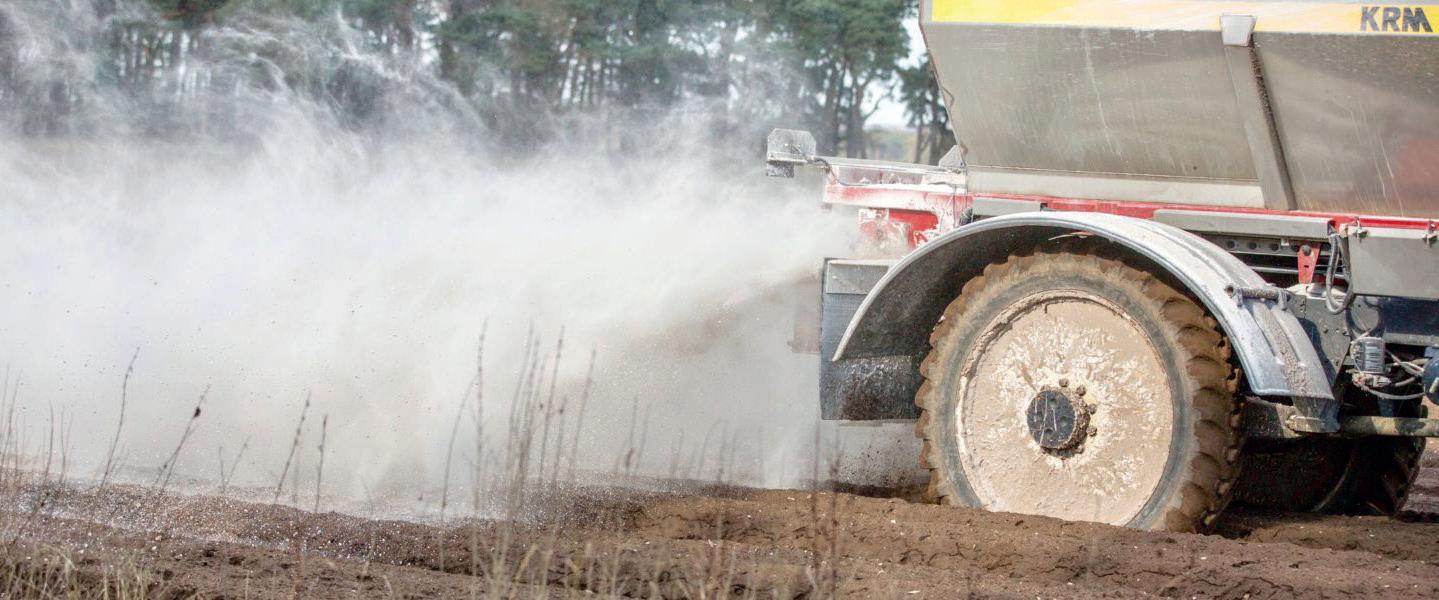
Purple is often termed the rarest colour in nature, yet seeing it in fields is not always a great sign, and purpling of leaves due to phosphate deficiency can be all too common a sight.
Anthocyanins are naturally occurring pigments that help to give aubergines, blueberries and blackcurrants their colour, but they also act as a sign of phosphate deficiency, and it is anthocyanins that cause this purpling in crops like cereals and maize.
Crops that are grown on soils that have adequate soil phosphate according to lab analysis are not immune to showing symptoms of phosphate deficiency, so why would this be and what can be done?
Unlike mobile nutrients such as nitrogen, sulphur and potassium, phosphate tends to stay where it is in the soil. Also, much of the phosphate is not in an available form, relying on soil properties to make it plant available.
Plants can only acquire phosphate from

the soil water, and this needs constant replenishment to keep up with demand. This renewal relies on soils actively converting phosphate into available forms, which can grind to a halt in inclement conditions and is made worse by poor soil structure.
So, if soils are cold, wet or compacted, the amount of phosphate that roots can access will be limited, and as a result transient phosphate deficiencies are often seen in early spring, when these conditions apply.
We advocate the placement of phosphate at planting to enrich the soil which the roots will occupy in the development stage. Doing this helps to overcome shortfalls that may occur due to soil conditions that can’t be controlled.
Placing phosphate is also an efficient way of using a valuable, yet potentially damaging resource. Placing it decreases the risk of
1. pH is crucial to phosphate availability – optimum pH of 6.5 is ideal
2. Utilise organic sources where possible; they are a great way of buffering the soil phosphate and helping to maintain it in a form less likely to lock up in the soil
3. When applying phosphate fertilisers, wherever possible place them or band them at planting
4. Use phosphites to improve rooting and consequently improve the plants’ ability to acquire phosphate from the soil
5. Use nutrients in balance as part of a plan; all essential nutrients have a role to play, and planning will hopefully avoid deficiencies.
Tim Kerr, nutrition manager, looks at ways to ensure adequate
phosphate losses via soil erosion and can reduce the amount needed to meet crop requirement, because the fertiliser is put in the right place at the right time.
If there is sufficient phosphate in the soil but the roots are not exploring enough of the soil to obtain enough of it, what can we do to create more roots?
Phosphites are a class of biostimulants that are clearly understood to enhance rooting and have been scientifically proven to do so. Typically increasing root biomass by 30%, they will have a significant role in supporting phosphate uptake through this increase, which will have other benefits in nutrient and water uptake throughout the plant’s life.
Is phosphate so important? Does it matter if the plant runs short?
Phosphate, like all essential elements, is not replaceable by another nutrient. Adequate phosphate increases nitrogen use efficiency and plays a key role in photosynthesis, as well as being vital for energy transfer, and will also promote a healthier plant which is less susceptible to disease.

The NFU continues to encourage us to drive our tractors up and down Whitehall to protest against the reintroduction of inheritance tax (IHT) on farmland. We will, though, soon find the turnout for these demonstrations is in decline, not only because spring is a busy time for most of us (so we have other uses for our tractors) but also because it’s becoming ever more apparent that IHT is now the least troubling in a whole series of dire economic threats that are in danger of engulfing our farms.
As we know, avoiding IHT is relatively simple for most of us. We can just give our farms away at least seven years before we die. As I keep telling my five daughters, even if I decide not to give them the farm, why should I worry? I won’t be around to settle the account and, anyway, their tax bill could soon be settled by selling off the odd field for pony paddocks and the like (and, who knows, we might by then get a change of government that will reverse the whole IHT on farmland policy anyway.)
No, if I’m worrying about potential threats, I prefer to fret about issues that are already impacting my farm. As I pointed out in these pages a few months ago, for many farmers the huge reduction in ‘decoupled’ basic payments announced in the October budget represents a much more dire crisis to their businesses than IHT. (Knight Frank estimates that, thanks to the cuts, the average English cereal farm will see a 24% drop in profits this year.)
But other problems are looming. We have got rather used to the crisis affecting the government’s various agri-environment schemes. For some time, front line Natural England staff have been left with little guidance about likely funding of the myriad new schemes that have come forward in recent years. Those issues have now come to a head with the shock closure for further applications for this year of the Sustainable Farming Incentive, which only a few years ago was launched as the central plank of post-Brexit farm policy in England.
As if all this is not concerning enough, there is the more prosaic but nonetheless very worrying reality that I still have last year’s harvest in the barn and the prices I’m being offered for it are disastrous.
Grain prices have been dismal for two years and the latest insulting bid that I have for my feed wheat is £160 per tonne. This is a price, I reminded the merchant, that I received for wheat as long ago as 1995, when a new 125hp tractor cost £25,000 and a tractor driver’s wage was £250 per week. It’s also worth remembering that arable cropping in 1995 benefitted from the EU’s Arable Area Aid scheme which paid farmers subsidies of up to £400 per hectare to grow crops like linseed.
The provisional Farm Business Income Survey, by type of farm, in England to February 2024/25 has recently been published. Not surprisingly, arable farm incomes show a 25% drop to an average of £27,000, a sum which has to be shared between all family members in a business who don’t draw a salary. Unless there is soon a dramatic improvement in grain prices, it’s difficult to see how arable incomes will recover in the year ahead.

Precision Soil Sampling
Accurately

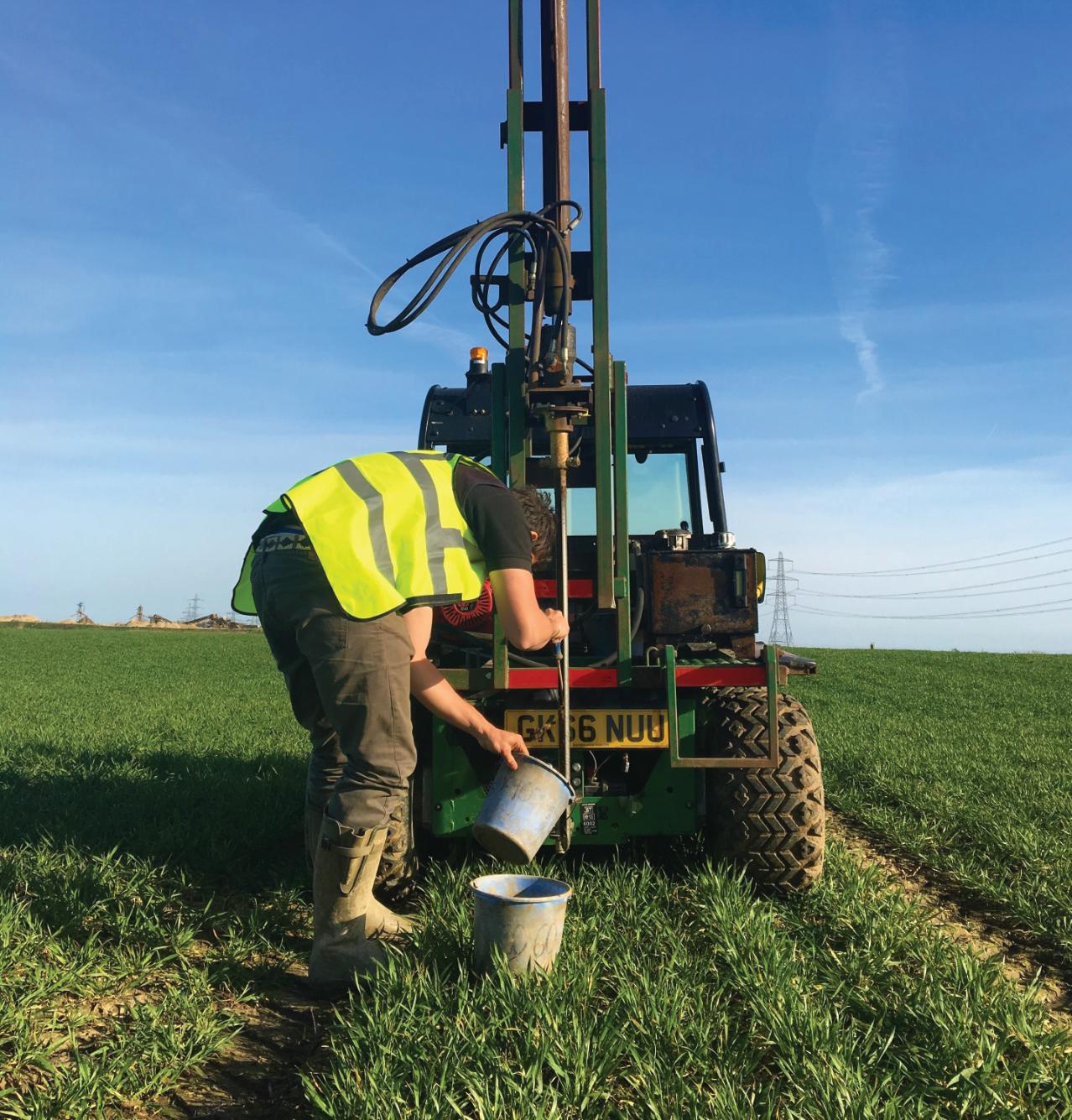
This month’s feature comes from Howard Nason, director at Crop Advisors working in conjunction with Chichester Crop Consultants.
As we head into the spring, establishing Sustainable Farming Incentive (SFI) options, as with any other crop drilled on the farm, does require some attention to detail. Often there can be a temptation to rush the job or minimise the number of cultivation passes, particularly at busy times of year when SFI seed establishment coincides with spring or summer workloads.
The first point to remember is preparation of the seedbed. Low disturbance subsoilers are a good tool to break up any soil pans and create a suitable underlying soil structure for water filtration.
Generally there will be no herbicide options in the mixes being sown, so any pernicious weeds will need to be sprayed with glyphosate before drilling takes place. Minimising soil disturbance as best you can after this spray is crucial to avoid secondary flushes of weeds.
If overseeding into an existing crop, then weed control can be completed before this, but be aware that hormone and Sulfonylurea (SU) herbicides will have a residual effect in the soil. Flowers, legumes and herbs will
be particularly sensitive to these residues. Always consult the label to make sure the gap between spraying and drilling is sufficient; this can be several weeks, or even months, so planning ahead is advisable.
A fine firm seedbed should be achieved to give the seed the optimum conditions to germinate quickly, which will in turn help to suppress any weeds by creating a competitive plant stand. Seed depth is a critical factor, particularly when sowing small seed species such as clovers, wild flowers and herbs. One of the main reasons for poor germination in these species is drilling too deep, with 5mm to 10mm plenty in most cases.
Once drilled, one key requirement will be to ensure grass or injurious weeds are prevented from setting seed. How this can be done will be determined by the individual scheme rules and management conditions. NUM3 legume fallow has been a popular option with many of our clients within the Crop Advisors buying group, being used as a rotational break crop. In order to have a clean break, blackgrass must be controlled by topping.
NUM2 legumes on improved grassland

Chichester Crop Consultancy is a farmer member run co-operative agronomy service that aims to deliver truly independent, research/ science-led agronomy advice with no commercial bias and now covers the South of England.
CCC works closely with Crop Advisors, which supplies independent group purchasing on crop inputs as well as sourcing cover crop/environmental scheme seed mixes.

and SAM3 herbal leys have also been popular options. Where these options are being incorporated into existing grass swards, a good time for establishment is after the first cut, to avoid peak grass growth and hence the risk of shading out the newly sown seed.
With the SOH2/SOH3 multi-species spring/ summer sown cover crops, although brassica species are suitable as they are fast to establish and good at mopping up mineralised nitrogen, avoid these if there is oilseed rape in the rotation.
The agronomists within Chichester Crop Consultants take an active role in advising and helping to manage the various SFI scheme options on farm. Sourcing the right mix is only part of the equation; it is the agronomic knowledge and management of these SFI actions that is required to create a successful outcome which gives environmental benefits while maintaining a profitable rotation.
As orchards move into a critical growth phase, fruit growers must stay ahead of disease threats, pest pressures and nutrition needs. Proactive management will ensure optimal fruit set, quality and overall tree health. Here’s a look at the key actions to take now.
Scab remains a major concern, requiring protective treatments on green tissue. Fungicides containing active ingredients such as trifloxystrobin, penthiopyrad, fluxapyroxad, kresoxim-methyl and mefentrifluconazole offer both protectant and curative activity against scab and mildew. Ensuring thorough coverage will be crucial in maintaining clean foliage and fruit.
Rosy Apple Aphid populations are emerging, necessitating treatments before pink bud. Aphidicides containing flonicamid are effective, while other products also have action on weevils and caterpillars. Monitoring populations early can prevent significant damage to young fruit.
Pre-flowering foliar applications of boron are essential for improving pollen tube development and fruit set. Nitrogen levels should be assessed and adjusted to support healthy growth without encouraging excessive vegetative development.
Pear Sucker nymphs are present in flower buds, making early control essential. Insecticides may offer effective suppression before flowering, preventing later infestations. Regular monitoring ensures targeted treatments and minimises damage. For orchards with inconsistent bud development, natural biostimulants containing seaweed extracts can enhance pollination, while osmo protectants
help support flowers during challenging conditions. Maintaining protective fungicide coverage will also safeguard fruit quality.
Plum trees are entering a key flowering stage, making blossom thinning a priority. Applications of ammonium thiosulphate help manage fruit load, ensuring a balance between yield and quality. Thinning also improves air circulation, reducing fungal disease risk.
Blossom wilt remains a threat, and fungicides should be applied at the start of flowering to prevent infections. Calcium applications at this stage help strengthen fruit, while proper fertilisation supports overall tree health and productivity.
Cherry orchards require attention to fruit set and disease control. Blossom wilt protection is essential, with fungicide applications at flowering to prevent disease outbreaks.
Biostimulants derived from seaweed extracts or amino acids can promote fruit retention and improve uniformity. Ensuring adequate pollination by monitoring bee activity and potentially supplementing with
managed pollinators can significantly boost yields. Early pest control, particularly for aphids, prevents tree stress and disease transmission.
Uncontrolled weed growth competes with trees for nutrients and water. Timely herbicide applications using systemic or contact-based active ingredients help maintain a clean orchard floor, improving access for sprays and reducing competition.
Mulching provides an alternative or complementary approach, improving soil structure, moisture retention and weed suppression while promoting overall orchard health.
Strategic disease management, pest control and balanced nutrition are key to optimising fruit yield and quality. Proactive scouting, well timed interventions and integrated management approaches will support strong fruit set and a productive season. By staying ahead of these challenges, orchard managers can ensure healthy, high quality fruit while setting the foundation for a successful harvest and long term orchard sustainability.
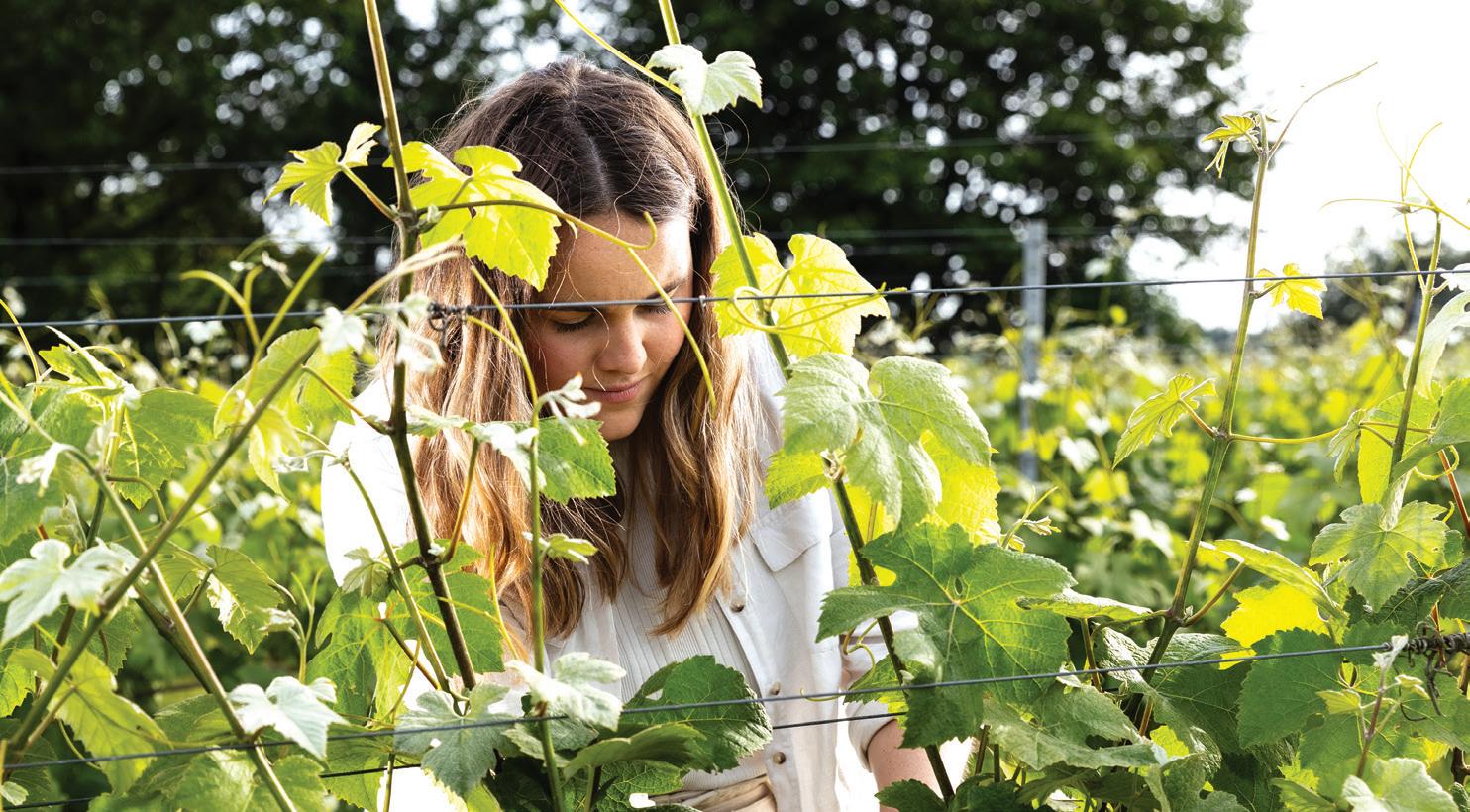



Call us today or visit our website: 01227 763939 furleypage.co.uk
Family farm businesses urged to consider pre-nuptial agreements for succession

Lawyers at Birketts have warned that family business owners, including those in the farming sector, who are rushing through succession plans to avoid the Chancellor’s Capital Gains Tax (CGT) raid could be exposing their business to future risk should there be a divorce in the family.
Birketts has noted that since the Chancellor of the Exchequer’s autumn budget there has been a noticeable increase in shareholders within family-owned businesses looking to bring forward their succession planning to avoid increased CGT rates. Typically, shares are being passed to younger family members (usually sons or daughters) sooner.
The firm, though, is warning that this can give rise to other issues, such as what will happen to those shares if the person receiving them later goes through a divorce or separation.
Stefan Donnelly, family lawyer at Birketts, said: “One very effective method of ensuring that the shares in the family business are protected as far as possible is for the recipient to implement a pre-nuptial or post-nuptial agreement prior to the shares being transferred to them.
“For family business owners, a nuptial agreement can specifically outline what happens to the ownership of shares in the event of a divorce or separation. This ensures, as far as possible, that a spouse who may not have been involved in the day-to-day running of the business cannot lay claim to those shares.
“A nuptial agreement can protect the intended inheritance structure of the business by ensuring that shares are passed down to specific family members, such as children or grandchildren. This prevents potential conflicts if a business owner’s spouse decides to sell their shares or pass them on to non-family members, disrupting the family business’s continuity.
“Family businesses thrive on long-term stability and continuity. In the unfortunate event of a divorce, a nuptial agreement can prevent the family business from becoming a point of contention, which could lead to the business being broken up, sold, or lost. By establishing clear guidelines regarding the transfer of shares, family members can avoid the potential distraction and financial strain that may arise during a divorce.”
From 6 April 2025, the UK will implement changes to CGT rates, particularly affecting business asset disposal relief (BADR) and investors’ relief. The CGT rate for qualifying disposals under those reliefs will increase from the current 10% to 14%. This is set to rise further to 18% as of 6 April 2026. In addition to the above, the lifetime limit for qualifying gains under BADR has been reduced to £1 million for disposals made on or after 30 October 2024.
As we look ahead to 2025, several significant changes and developments are on the horizon that will impact commercial property interests. Below is an overview of the key changes and developments expected in the coming year.
The Government has accepted the Competition and Markets Authority’s (CMA) recommendations to introduce a new single mandatory consumer code for housebuilders and a New Homes Ombudsman scheme. This initiative aims to enhance consumer protection and address issues related to the quality of new homes. The New Homes Ombudsman will provide a platform for homebuyers to lodge complaints against developers, ensuring accountability and improving standards in the housebuilding industry. Secondary legislation to implement these changes is expected in due course.
The Government plans to consult on proposals requiring private and social rented homes, and non-domestic private rented properties, to achieve an Energy Performance Certificate (EPC) rating C or equivalent by 2030. The Government also plans to consult
on whether properties could only continue to be let after 31 March 2030 if they have achieved an EPC rating of C or equivalent by that date. This move is part of the broader strategy to improve energy efficiency and reduce carbon emissions in both the residential and commercial property sector.
EPCs play a crucial role in assessing and improving the energy efficiency of buildings. In December 2024, the Government launched a consultation on reforms to the energy performance of buildings regime for property generally. The proposed changes aim to update EPC metrics, refine requirements for when EPCs are needed and improve data management and quality control. These reforms are intended to make EPCs more accurate and useful for property owners and tenants, ultimately supporting the UK's energy efficiency goals.
A significant change to the Electronic
ANGELA RUMINSKI
Senior Associate,
Commercial Property
T: 01622 776407
E: angelaruminski@brachers.co.uk www.brachers.co.uk


Communications Code 2017 (the Code) anticipated to come into force in 2025 is the alignment of the renewal of old code agreements that must be renewed under the Landlord and Tenant Act 1954 with renewal under the Code, effectively harmonising the rents payable under the two systems and simplifying the renewal process for telecoms operators and landowners. This change is expected to streamline negotiations and reduce disputes over rent levels for telecoms apparatus.
These initiatives demonstrate the Government's proactive approach to addressing key issues in housebuilding, energy efficiency and telecommunications. As these developments unfold, they will play a crucial role in shaping a more efficient and sustainable future.
Please contact us today to discuss how these developments may impact your commercial property interests and to explore strategies for navigating these changes effectively.


SOPHIE SPELLMAN
Associate, Commercial Property
T: 01622 680759
E: sophiespellman@brachers.co.uk www.brachers.co.uk





Major residential developments typically involve the construction of large-scale housing projects on the edge of towns and villages, including on brownfield and greenfield sites, with the aim of creating high-quality new communities. Bloomfields plays a crucial role in ensuring these projects are successful by navigating the regulatory planning requirements. We collaborate with architects, engineers, and local authorities to ensure that the development aligns with the community’s needs and environmental standards amongst an array of other requirements, working towards producing the right outcome for all. See below some of our successful projects.

Successfully obtained planning permission for 68 dwellings and a new village hall.
Worked as Planning Consultants as part of a multi-disciplinary scheme.
Provided crucial planning policy input into the scheme prior to submission.
Produced a Planning Statement and submitted the application.
Acted as agent, negotiated with the LPA to get to the decision (including conditions and Section 106 Agreement) and attended Committee.
Effective collaboration with Lambert & Foster who set up a Promotion Agreement with a national land promoter, and Bloomfields obtaining permission for the promoters.
CREDIT: MARRONS


Obtained planning permission for large scale mixed-use commercial and residential development.
Best and most effective and efficient use of an existing dilapidated brownfield site.
New market and affordable homes in a highly sustainable area.
Extensive collaboration across the project team. Attended and presented at consultation events.
Wrote the Planning Statement and advised the project team on matters of planning relevance.
Attended Committee, negotiated conditions and Section 106 Agreement to point of decision.
CREDIT: FOURTH SPACE ARCHITECTS
Land at Densole,
Successfully secured a resolution to grant planning permission for 44 dwellings.
Appointed at an early stage to advise on site capacity and feasibility.
Demonstrated at pre-application stage to Council the benefits of an increased density and securing an uplift over the 25 dwellings which the site was previously partially allocated for.
Secured highway improvements for community benefit.
Submitted the application and acted as agent throughout, negotiating with the Council to get to Committee - which we attended.
Awaiting formal decision - watch this space!
CREDIT: TAYLOR ROBERTS ARCHITECTS

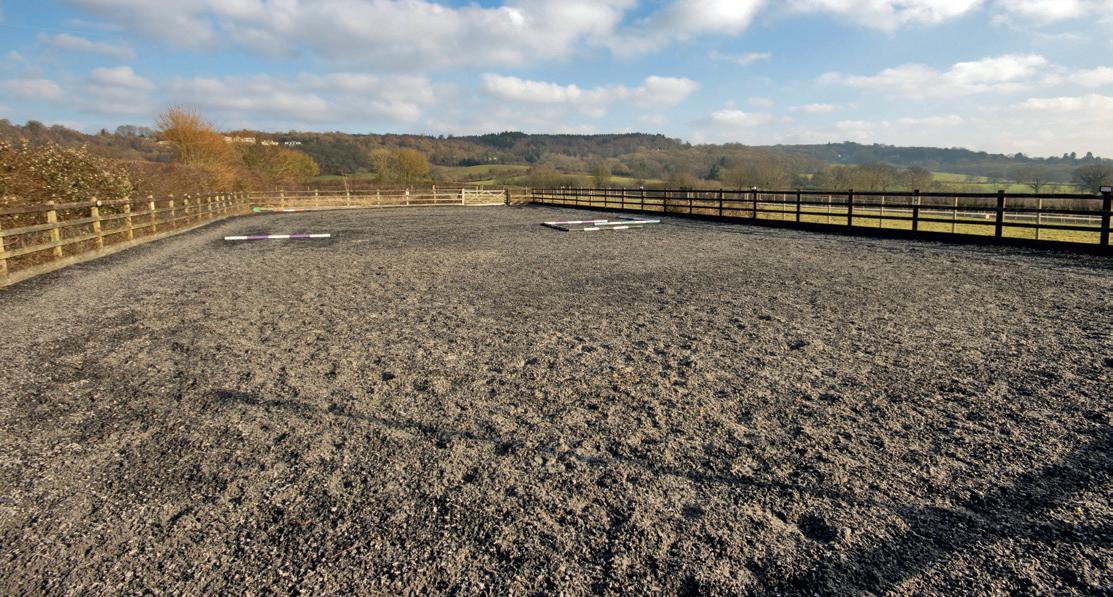
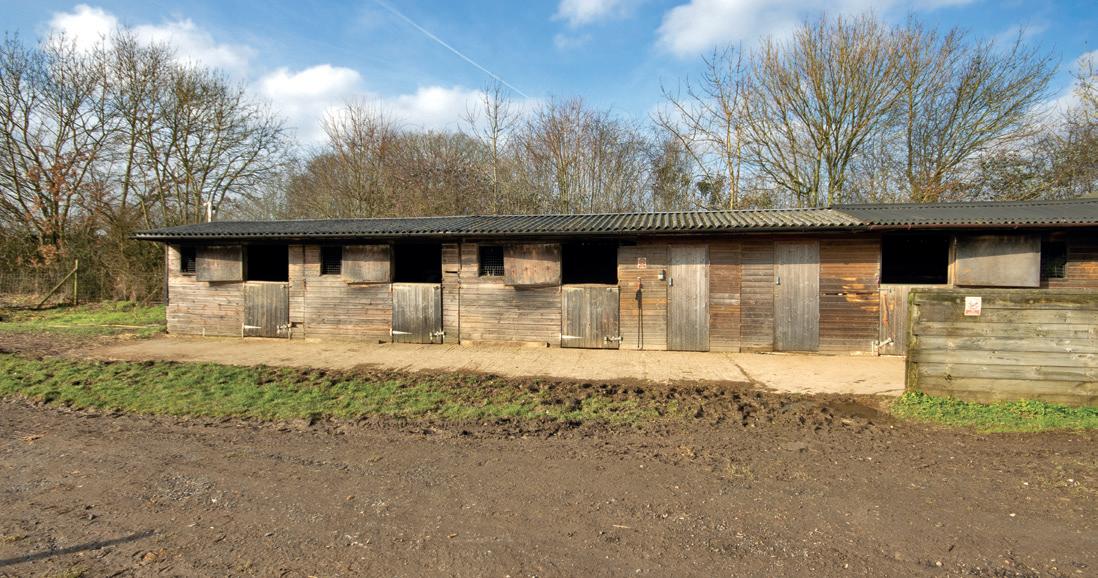
A small commercial livery yard between Oxted and Edenbridge has come to the market through Savills.
Flytesfield Stud spans about 8.5 acres of land and includes a compact, nine-box yard with a 20m x 40m sand school, a secure alarmed tack room, two feed rooms, hay store, hardstanding for parking, and post and rail and electric fenced paddocks with automatic water drinkers. A further two mobile stables may be available by separate negotiation.
The farm is accessed off Swaynesland Road, set back from the lane behind secure gates. Its location affords excellent off-road hacking,
with access to a series of bridleways across the surrounding beautiful countryside. There are also good road connections, with the M25 junction 6 about 6.3 miles away.
Hannah Riches, of Savills rural agency team in the South East, said: “This compact yard offers excellent facilities in a great position on the Kent/Surrey border, with access to a series of bridleways which connect directly with Limpsfield Chart and the Titsey Estate.”
Flytesfield Stud is being marketed by Savills with offers in excess of £375,000.
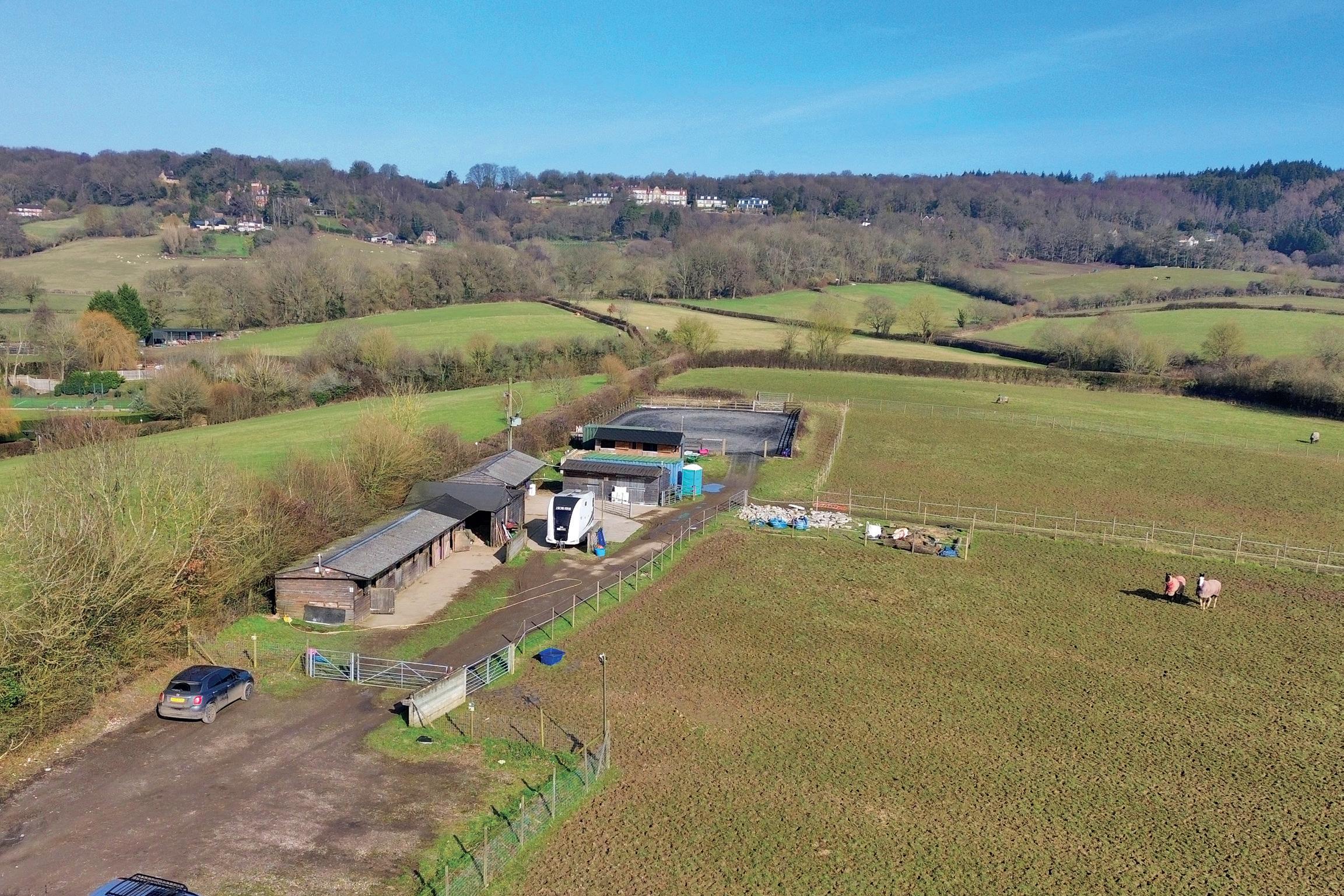
For more information, contact Hannah Riches or Chris Spofforth at Savills Sevenoaks on 01732 879 050, or visit https://search.savills.com/property-detail/gbmqrumru250001
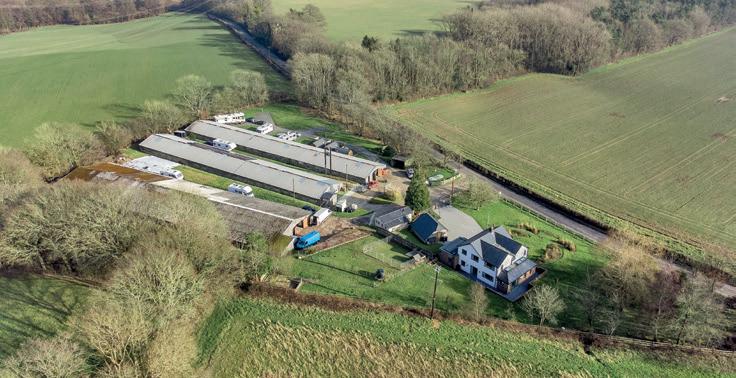

For more information, contact Hannah Riches at Savills Sevenoaks on 01732 879 050
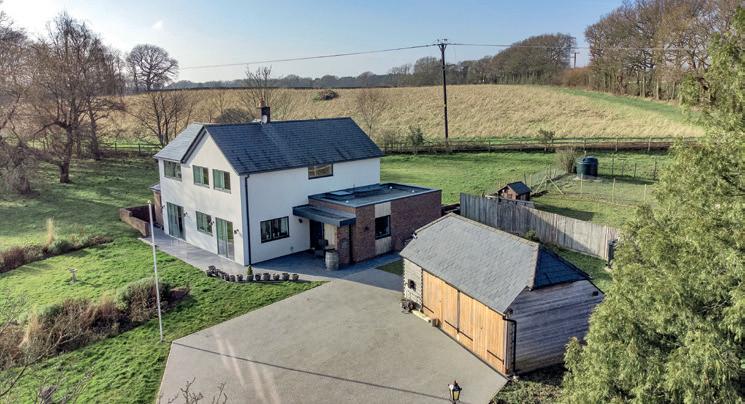
An attractive farmhouse with campsite and glamping pods business and commercial units in East Sussex has come to the market through Savills.
Fairview Farm is situated in rural East Sussex, near the villages of East Hoathly and Waldron, with far-reaching views of the countryside.
Dating back to the 1960s, the farmhouse was remodelled and extended in 2017, offering 2,315 sq ft of bright and spacious accommodation.
Positioned away from the farmhouse is the award-winning Scallow Campsite and glamping business, which comprises six pitches and three Arch Leisure glamping pods. There is the potential to significantly grow
the business, with planning granted for a further nine pitches, four glamping pods, two shepherd huts and a new facilities building to include a shop, café and bar along with toilets, showers and laundry.
The commercial portion of the property includes three industrial units, former poultry sheds now used for business storage. The sheds cover approximately 30,666 sq ft in total and provide an impressive income with potential for further commercial development. In total,
Fairview Farm extends to about 3.38 acres. Hannah Riches, from Savills rural agency team in the South East, commented: “Fairview Farm presents an excellent opportunity to buy a mixed-use property in a delightful rural setting. With an established business on the property, an incoming buyer will benefit from the additional income it generates, with plenty of potential to further develop the business streams.” Fairview Farm is being marketed by Savills for a guide price of £1,850,000.
An opportunity has arisen to take on the grazing and contract farming of Home Farm at Gravetye Estate, available through RH & RW Clutton.
For more information, contact Ben Lee on 01342 305831 or email benl@rhrwclutton.co.uk

Owned by the William Robinson Gravetye Charity (www.william-robinson.org.uk), the farm extends to 140 acres of grassland and arable.
The charity is seeking an appropriate partner to work with it to deliver its objectives of improving biodiversity through conservation grazing and undertaking contracting actions across the arable land.



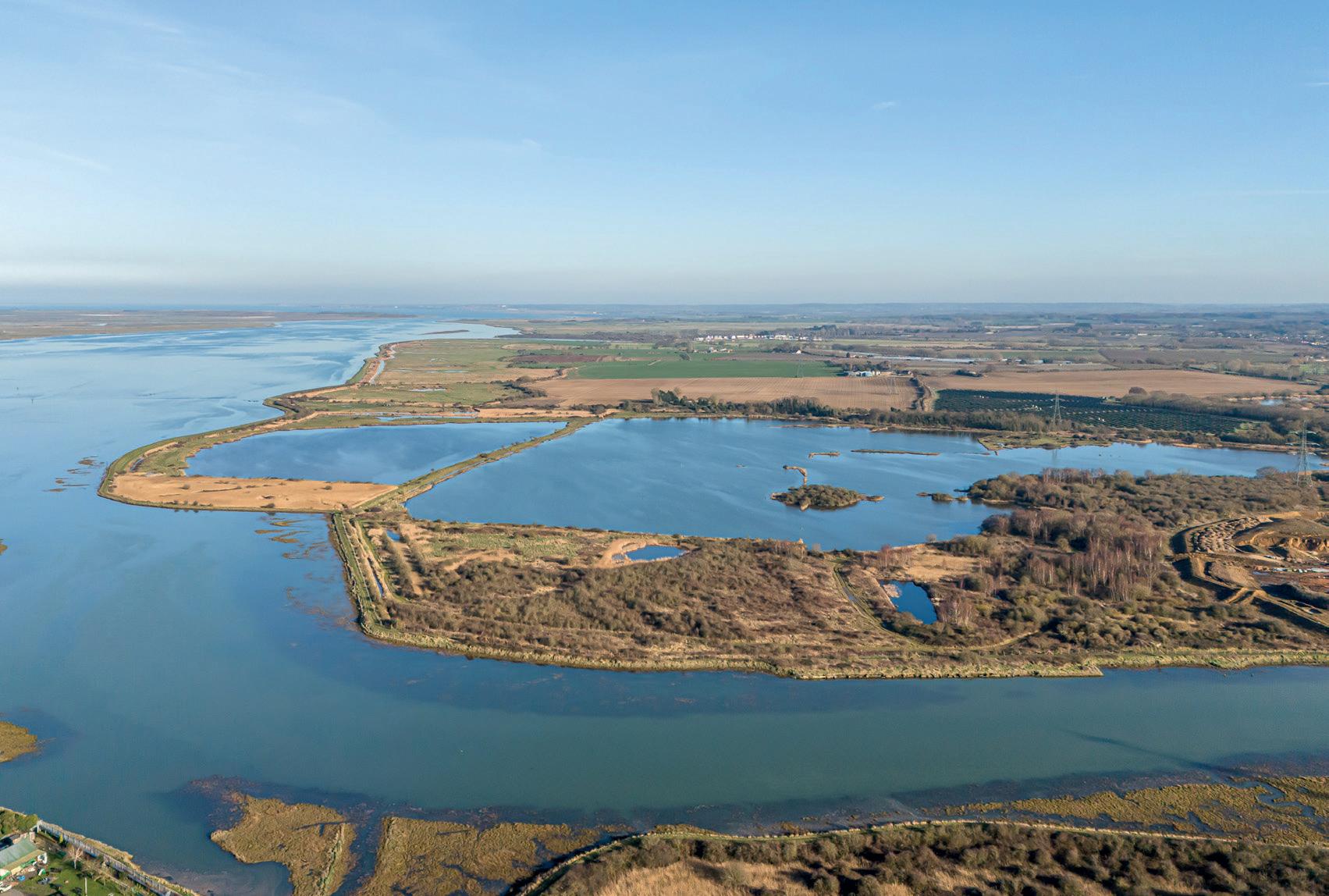
Rural Property Portfolio in Sittingbourne & Burham, Kent
Prices from £75,000 to £655,000 + VAT
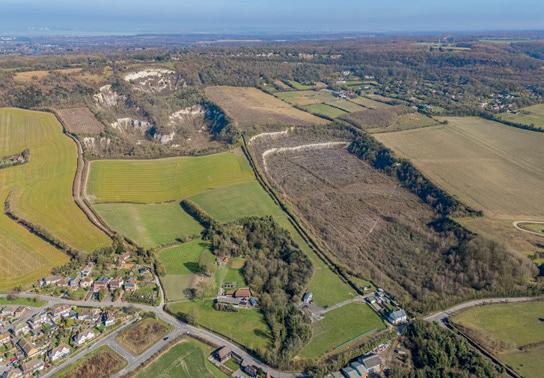
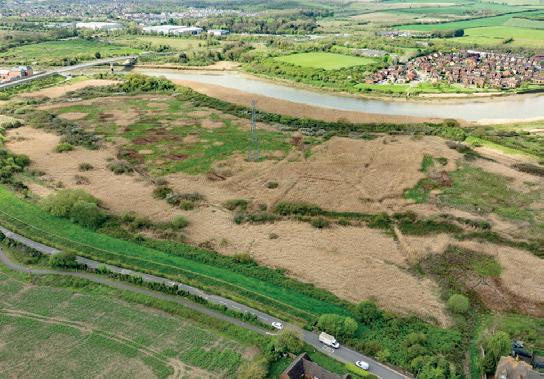
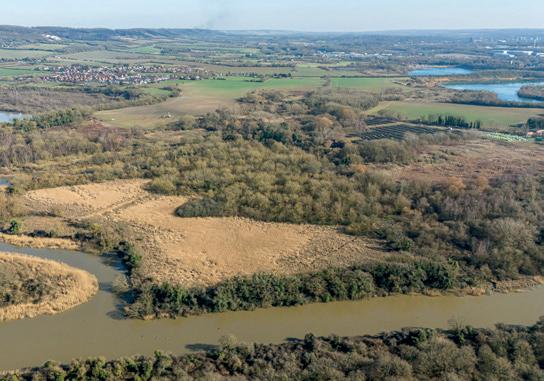
A portfolio of rural properties in Sittingbourne and Burham to include wetlands, an island, former chalk quarries, grassland and woodland. Available in separate lots. All details available at www.lambertandfoster.co.uk
Contact Will Jex or Alan Mummery on 01892 832 325

FOR SALE

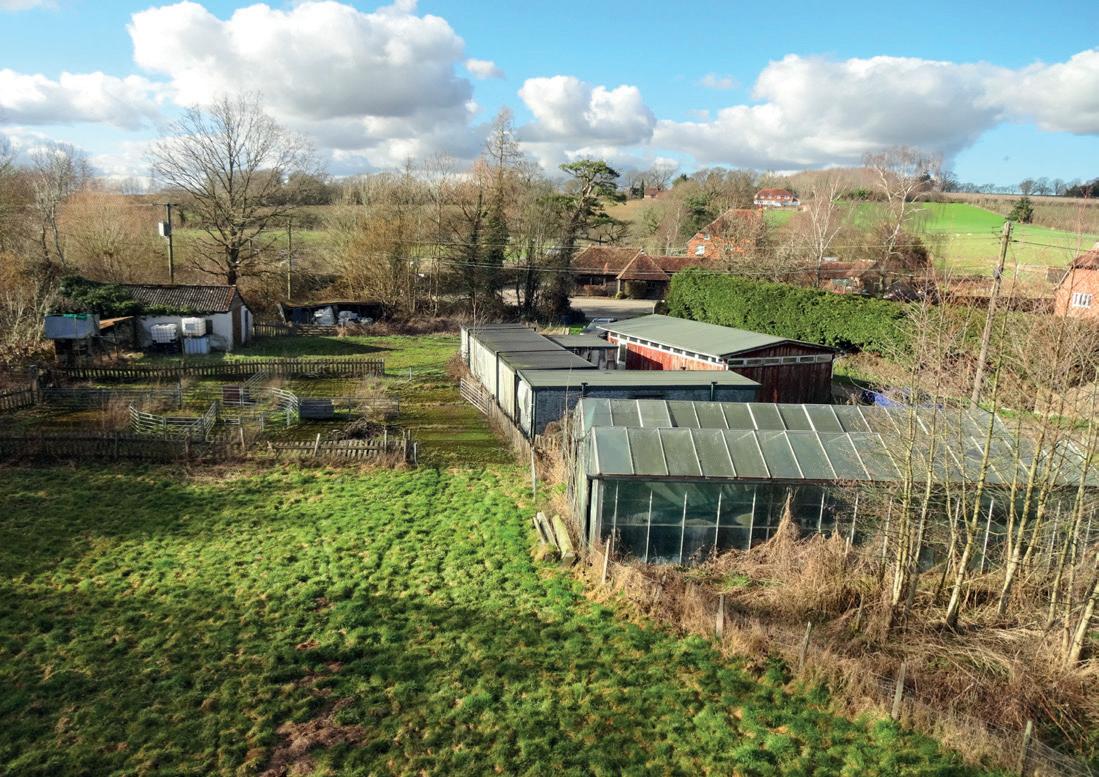
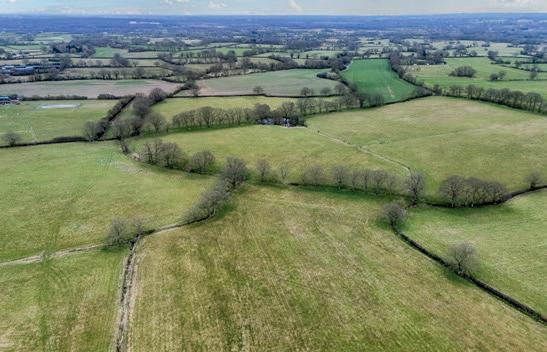
Guide Price £1,200,000

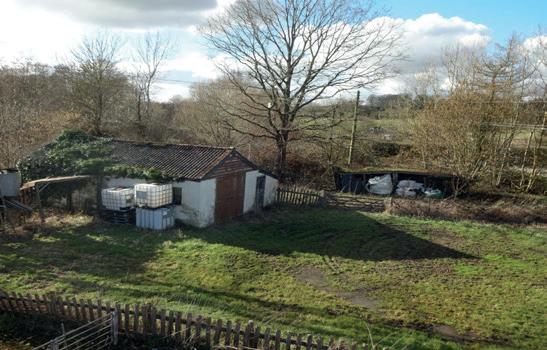
A traditional grassland farm with detached farmhouse and a range of farm buildings, together with a detached Smithy building, located along the Lenham Road in Headcorn, extending in all to some 66.41 acres (26.87 hectares)
Contact Will Jex or Alan Mummery on 01892 832 325

Lot 1 The Farm Office – Guide Price £190,000
Lot 2 The Pump House – Guide Price £180,000
Former farm office and pump house in an enviable location as part of a small hamlet in an attractive valley setting. Both buildings have Prior Approval for residential conversion to 1-bedroom dwellings. Offered for sale as a whole or in 2 Lots. FOR SALE
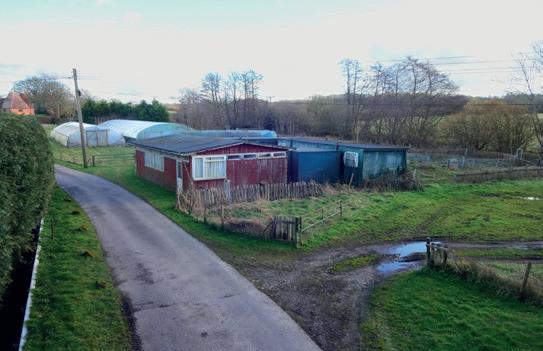

Contact Will Jex or Alan Mummery on 01892 832 325

Woodland plays a significant role in supporting our environment and wider climate, and according to Savills' latest research, featured in Spotlight: The Forestry Market, interest in tree planting has led to the highest area of new planting since the mid-1990s.
While much of the commentary around achieving a target of 16.5% of woodland cover across the UK by 2050 focuses on new planting, preserving existing stock is equally important. Managed woodlands also provide a range of income potential far beyond simply timber production, which could diversify and support many farm businesses.
Historically, undermanagement may have been a result of the typically small scale of farm woodlands and previously low timber prices, making harvesting operations uneconomical. Times have changed. There has been a significant uplift in timber value and, despite some fluctuations, the lesser grade wood fuel and biomass markets remain in good shape. This means even small operations could provide positive income.
Woodland cover also plays an important role in current and likely future rural policy. Understanding woodland assets and how best to manage them to maximise their output is important.
There are lots of attractive grants available for woodland creation, management and for public benefit. They can make a difference and are often the crucial factor between achieving all the woodland objectives or only taking the low hanging fruit.
Provides a one-off payment to create a UK Forestry Standard (UKFS)compliant, 10-year woodland management plan. Payment rates are
For more information about woodland creation and/or management, contact:

CHRIS WILLIAMS
Arboricultural consultant T: 07813 525627
New tree planting in the UK reached 20,700 hectares in the planting year to March 31, 2024, marking significant tree planting progress and a year-on-year increase of 59%. During the previous four years, planting of new trees was comparatively steady, with an average of 13,500 hectares planted per year.
based on the area of eligible woodland, ranging from £1,500 for three to 50 hectares to £3,000 plus £15 per additional hectare for areas over 100 acres. Applications are open year-round.
Offers up to £30,500 per project to prepare a UKFS-compliant woodland creation design plan. Funding can be used for site surveys, stakeholder consultations and detailed planting schemes. Applications are open year-round.
Provides up to £10,200 per hectare for tree planting, including site preparation, planting and the protection of young trees. Annual maintenance payments of £400 per hectare for 15 years are available. Additional contributions are offered for enhancing biodiversity, improving water quality and increasing public access. The grant is open year-round.
Expected to reopen in 2025 after a review, this grant supports activities to improve biodiversity and the resilience of existing woodlands. Funding is annual for five years, including £1,000 per year for areas of between three and 10 hectares and £127 per hectare per year for areas over 10 hectares. It covers activities like thinning, coppicing and habitat enhancement. Additional funding is available for deer and squirrel control, fencing, rhododendron control and access improvements.
HANNAH RICHES
Rural agency T: 07967 555724
DANNY NICHOLSON
Architecture and building surveying
T: 07976 776763
STUART NICHOLLS
Food and farming T: 07786 944666
ALASTAIR DEIGHTON
Estate management T: 07825 980081
Since growing up on his family farm, land manager Rory Hodgson knew he always wanted to work in partnership with farmers.
With BNG Habitat Banks providing a great diversification option, Rory explores how many are getting involved in BNG with Environment Bank.
Why is BNG becoming such a popular option? With BNG, farmers can bank a parcel of their land for the next thirty years and receive a guaranteed annual income that’s unaffected by fluctuating input costs.
It can be a bit of a lifeline for those that are struggling financially and a great opportunity for those that are simply looking for an additional revenue stream.
Almost all the farmers we work with really want to see wildlife and nature thrive on their land, and a BNG Habitat Bank gives them a great way to do that.
Habitat Banks can be managed using livestock grazing and hay cuts which means that the focus remains agricultural, so BNG can really fit into a wider land business.
How can a BNG Habitat Bank support agriculture? If you look at the current trends in farming, you’ll see a real push towards regenerative agriculture. This involves considering things like soil health, air quality, and water quality – and managing the impact farming has on all these things to find the most sustainable approach.
A Habitat Bank takes a parcel of land where the soil is initially poor in terms of nutrients and introduces new habitats which can improve

the health of the soil and promote biodiversity, wildlife, and pollinators –all great for regenerative agriculture.
Very small changes can make quite a big difference in biodiversity, especially where the land was managed intensively before.
How does Environment Bank partner with farmers? We take out a long-term lease on a land parcel to create a Habitat Bank. We pay the landowner an annual rent and, in most circumstances, also pay them an annual fee to help manage the habitats.
The design for each Habitat Bank is led primarily by ecology, but it also incorporates the landowner’s perspective. We always listen to them to understand which habitats they think could be beneficial because they know the land better than anyone.
We like to incorporate grazing livestock or hay cuts directly into the management plan so the farmer can continue to generate income through traditional means and receive management payments from us.
What are the benefits of working with Environment Bank? Our model removes almost all the additional cost and risk that’s typically associated with BNG.
We cover the cost of habitat creation works. If we’re creating wildflower meadows, we’ll pay for the reseeding. If we’re creating ponds, we will take care of any planning permissions and pay for the excavation.
Our ecologists ensure all the habitats are established correctly and provide annual reports to the local planning authority, and
our sales team generate revenue by selling the Biodiversity Units to developers for BNG.
So, provided they complete their management activities every year as planned, our landowners receive their lease and management payments without having to worry about anything else involved in BNG.
What do you find most rewarding about your role? It seems like there’s a lot of things working against farmers right now so, honestly, the most rewarding thing for me is the help that we can provide to them through our partnerships.
The highlight is when a new Habitat Bank goes live because we’ll have supported the farmer from the beginning.
A lot of our Habitat Banks are still in their early days, but our farmers are already enjoying seeing an increase in biodiversity on their land and we’ll see even more over the coming years.
What would you say to anyone considering BNG for their land?
There might be a certain area of your land that isn’t the most productive where a Habitat Bank might be a great diversification option.
Even if you’re a little bit on the fence, it might be worth getting us to come out for a chat about how it works. We take on anywhere from 25 to 250 acres, depending on location and habitat creation opportunities.
We do a desk-based review and visit the land for an ecology assessment at no cost to the landowner, so we can talk in a bit more detail about the type of habitats we could create without you having to commit.


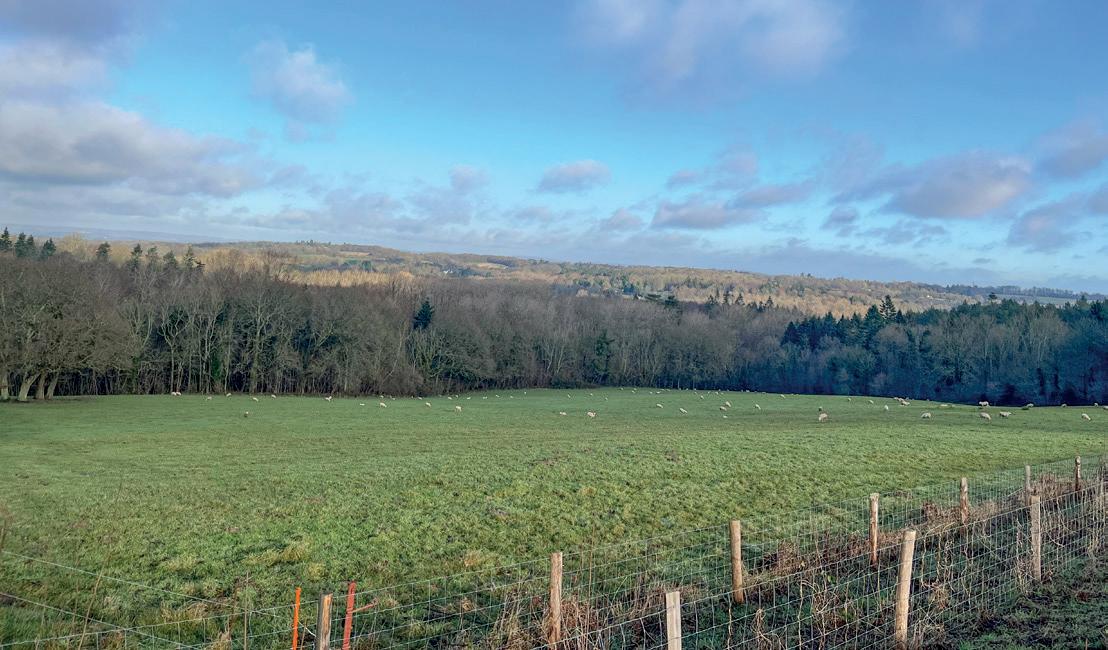


















































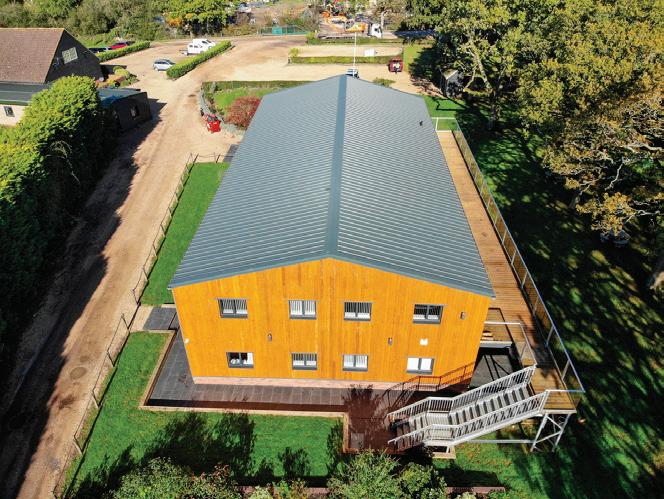


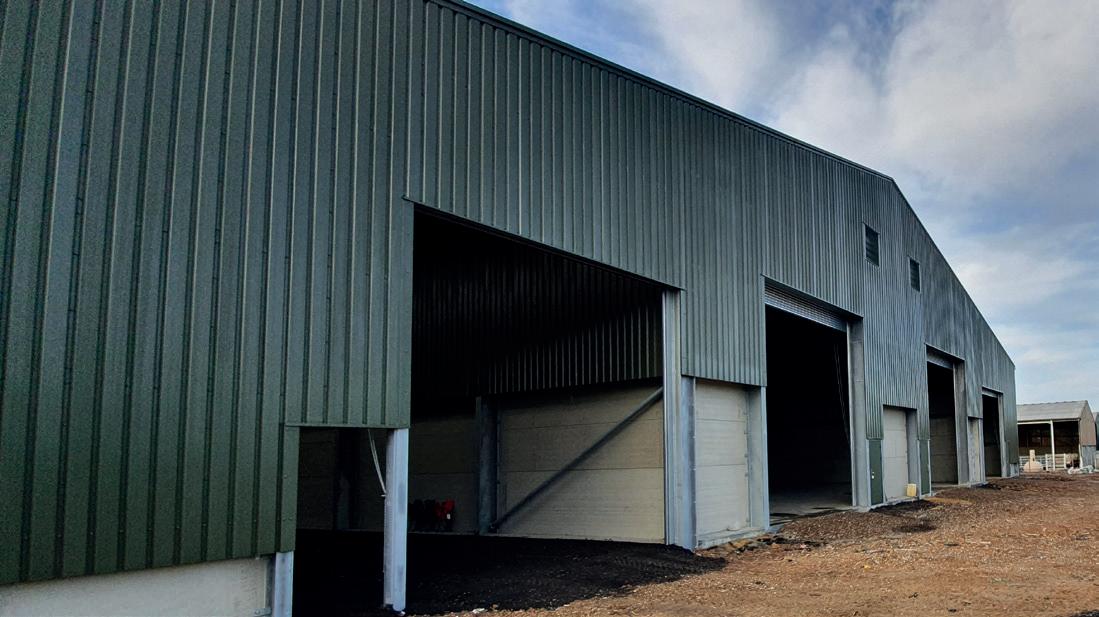



Specialists in the Agricultural, Industrial and Equestrian sectors
Steel frame buildings.

Sheeting, cladding and oversheeting.
Gutter replacement, repairs and lining.
Steel frame, concrete frame alterations and repairs.
Asbestos removal.
Roof light and sheet changes.
Refurbishments and usage changes.
Demolition, groundworks and site clearance.
24 hour call out in the event of fire or break in.
Roller shutters, sliding and personnel doors.
Condition reports and dilapidation work
before solar panel installation
Mezzanine floors
Insurance and repair work
On site welding and steel fabrication
Solar panel installation
ALL WORKS GUARANTEED



jez@JRJconstruction.co.uk
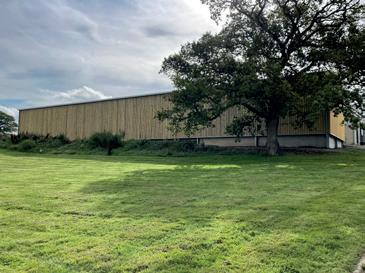









We are a Hampshire-based family run company specialising in the refurbishment, renovation, alteration and upgrade to the external envelope of buildings within the industrial, commercial and agricultural sectors.
Our services
Structural Steel
Gutter Maintenance
Asbestos
















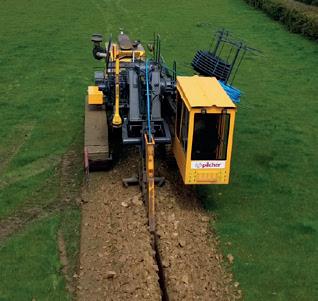






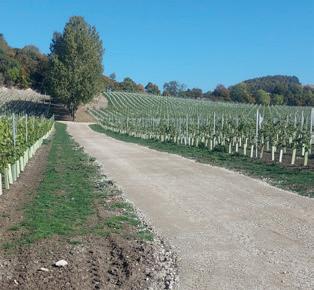
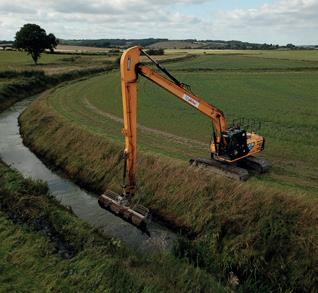
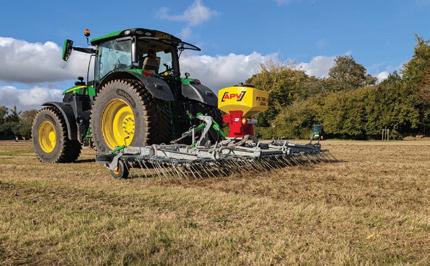


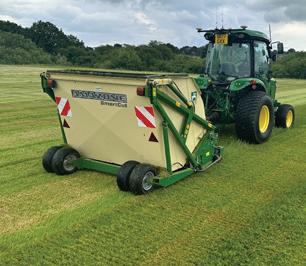





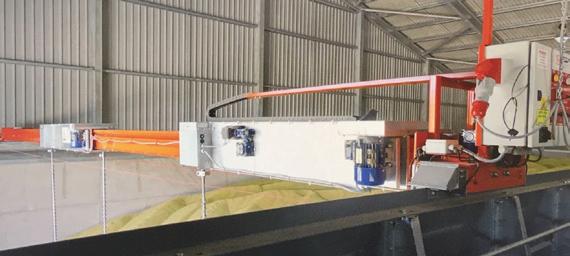







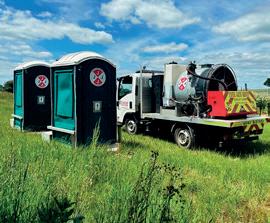

Chestnut
Tel:








Three bottles of Dry, three bottles of Medium and two bottles of Sweet Strong Kentish Cider
ACROSS
1 Hardy sheep breed (8)
5 Shine a light brightly but briefly (5)
8 John ---------, medieval composer (9)
9 Haul, transport, bear (5)
11 Compass point (4)
12 Ship type (7)
14 Character created by A A Milne (6,3,4)
16 Small round bread product eaten toasted (7)
18 Oar, scull (6)
21 Move a hand to indicate an idea (7)
24 Medium sized wildcat once native to UK (4)
26 Used to indicate direction of high winds (5,4)
27 Acidic compost (10)
28 Scottish loch, home of mythical monster (4) DOWN
1 Boundary consisting of shrubs (5)
2 When a person launches a verbal onslaught (5)
3 James ----, credited with the concept of horsepower (4)
4 Brassica (7)
6 Develop skills or knowledge (5)
7 Make something longer (7)
10 In this place (4)
13 Break (4)
14 --------- Pearmain, apple variety (9)
15 Fleshy underpart of dog's feet (4)
17 Drinking vessel (3)
18 Prize money (5)
19 General appearance of rural area (3)
20 Surplus (6)
22 Tree (3)
23 A store of sought after things (5)
24 Cover crop (5)

As spring has sprung we are offering readers the chance to win three bottles of Dry, three bottles of Medium and two bottles of Sweet Strong Kentish Cider. For more information about the vineyards, please visit www.biddendenvineyards.com or call 01580 291726.
*Subject to availability
LAST MONTH’S ANSWERS: LAST MONTH’S ANSWERS:

